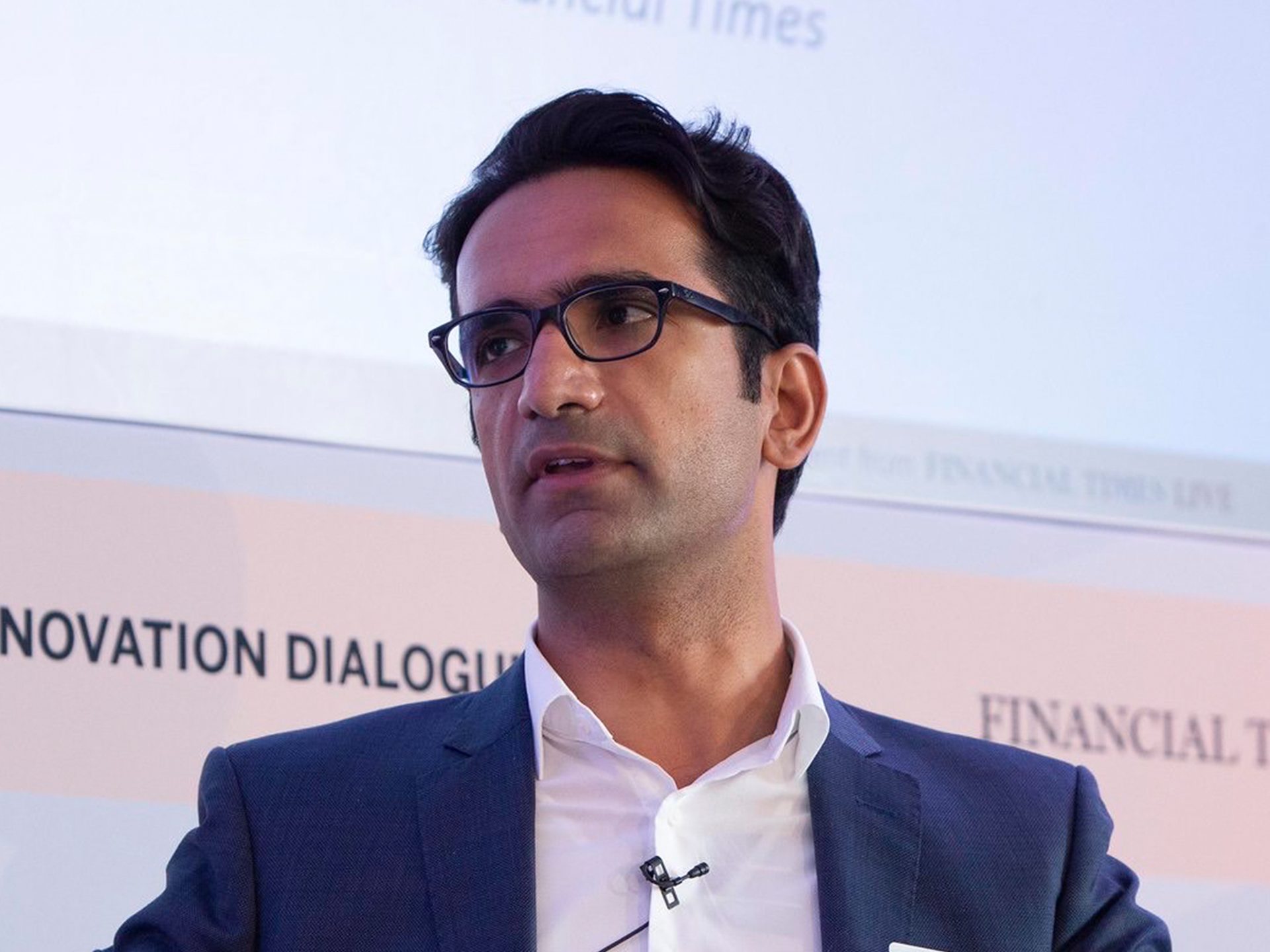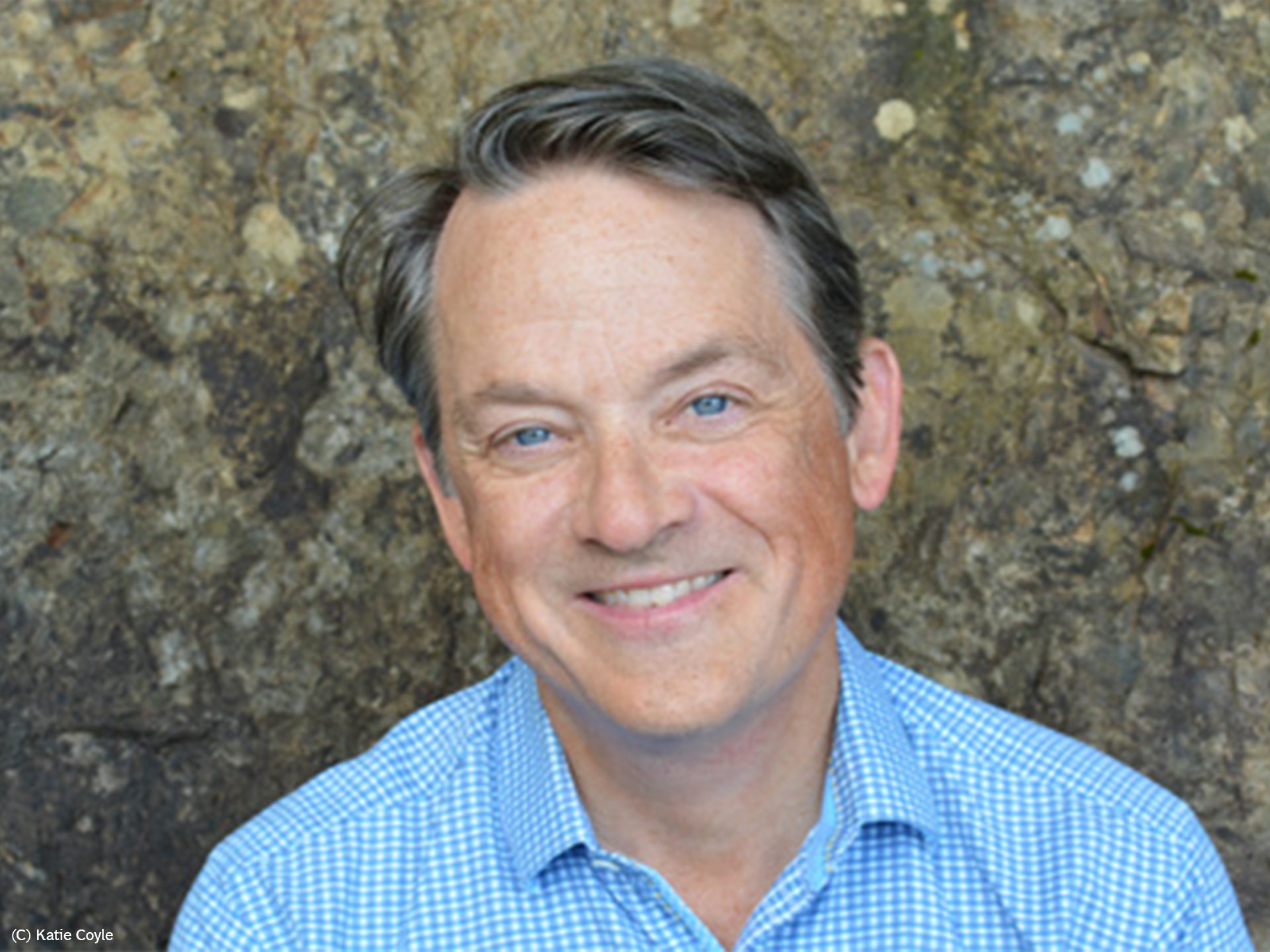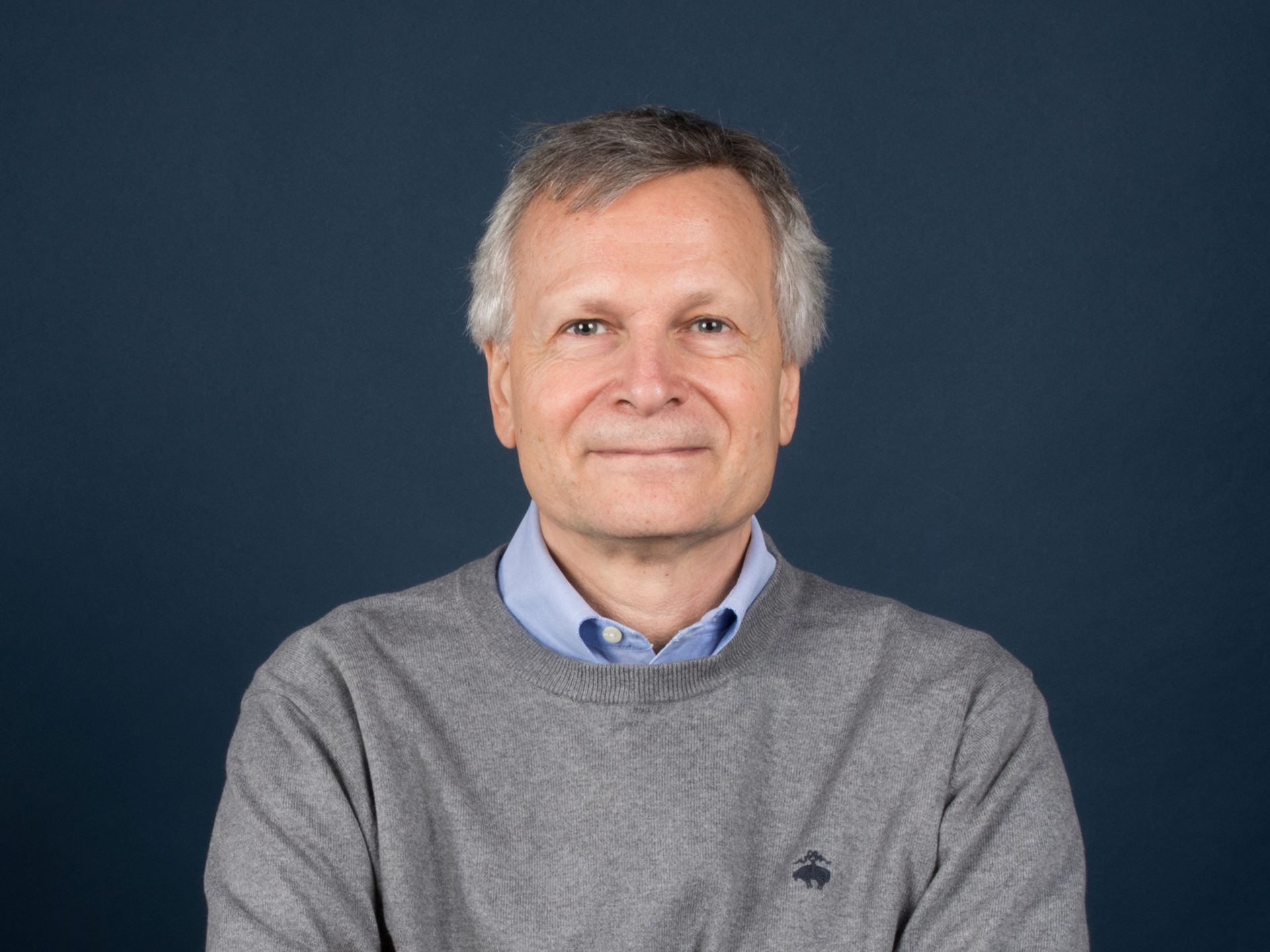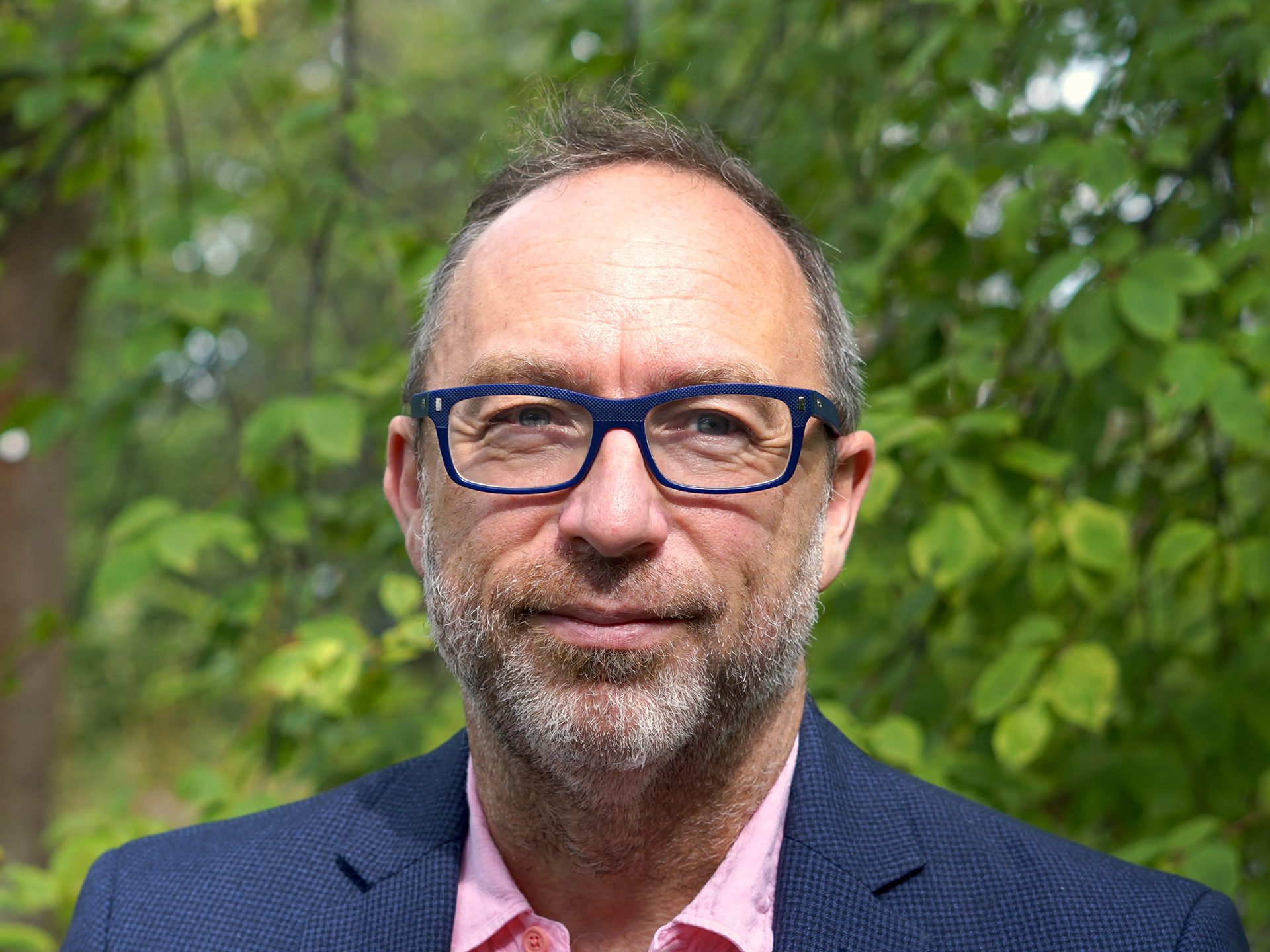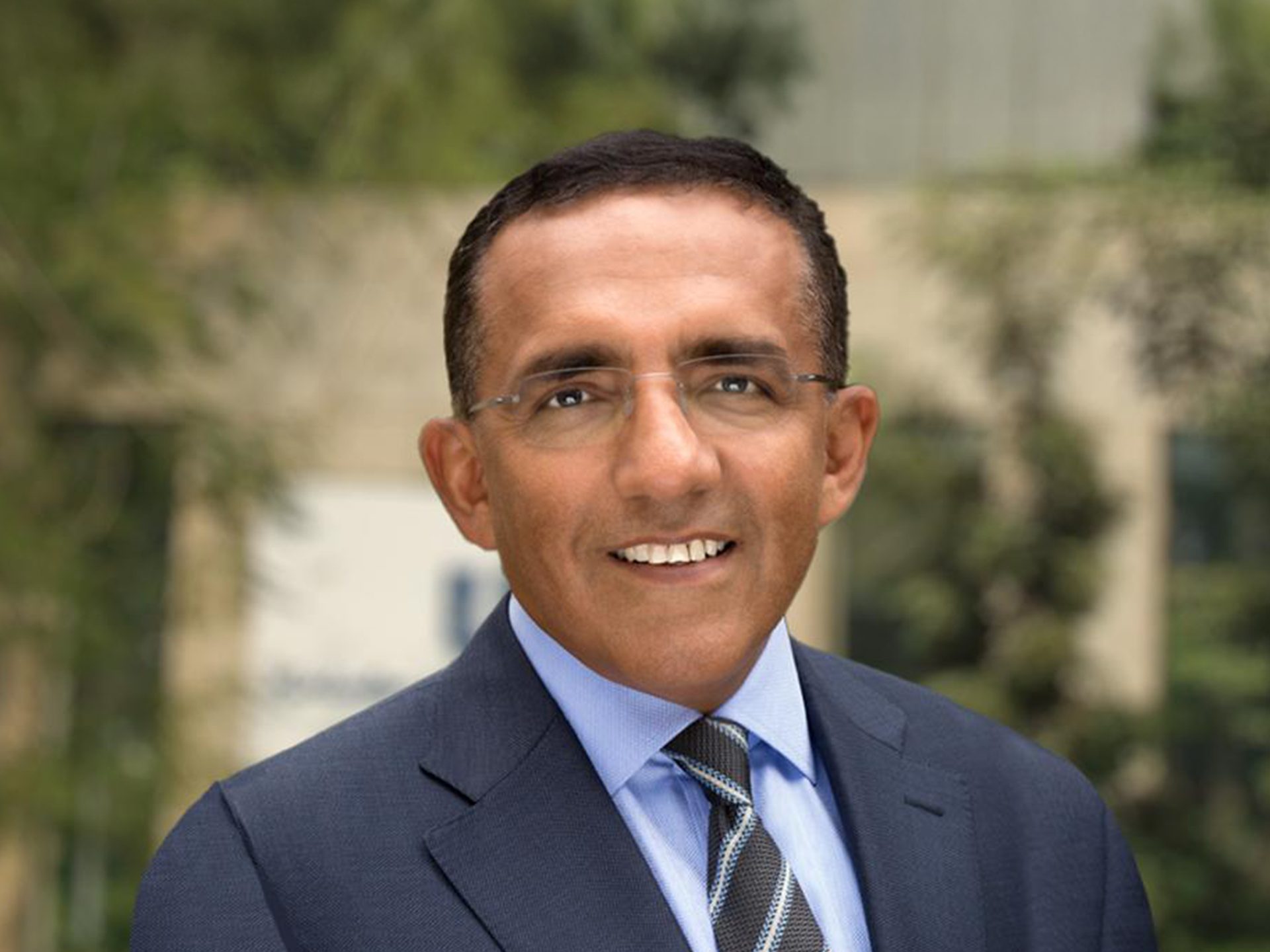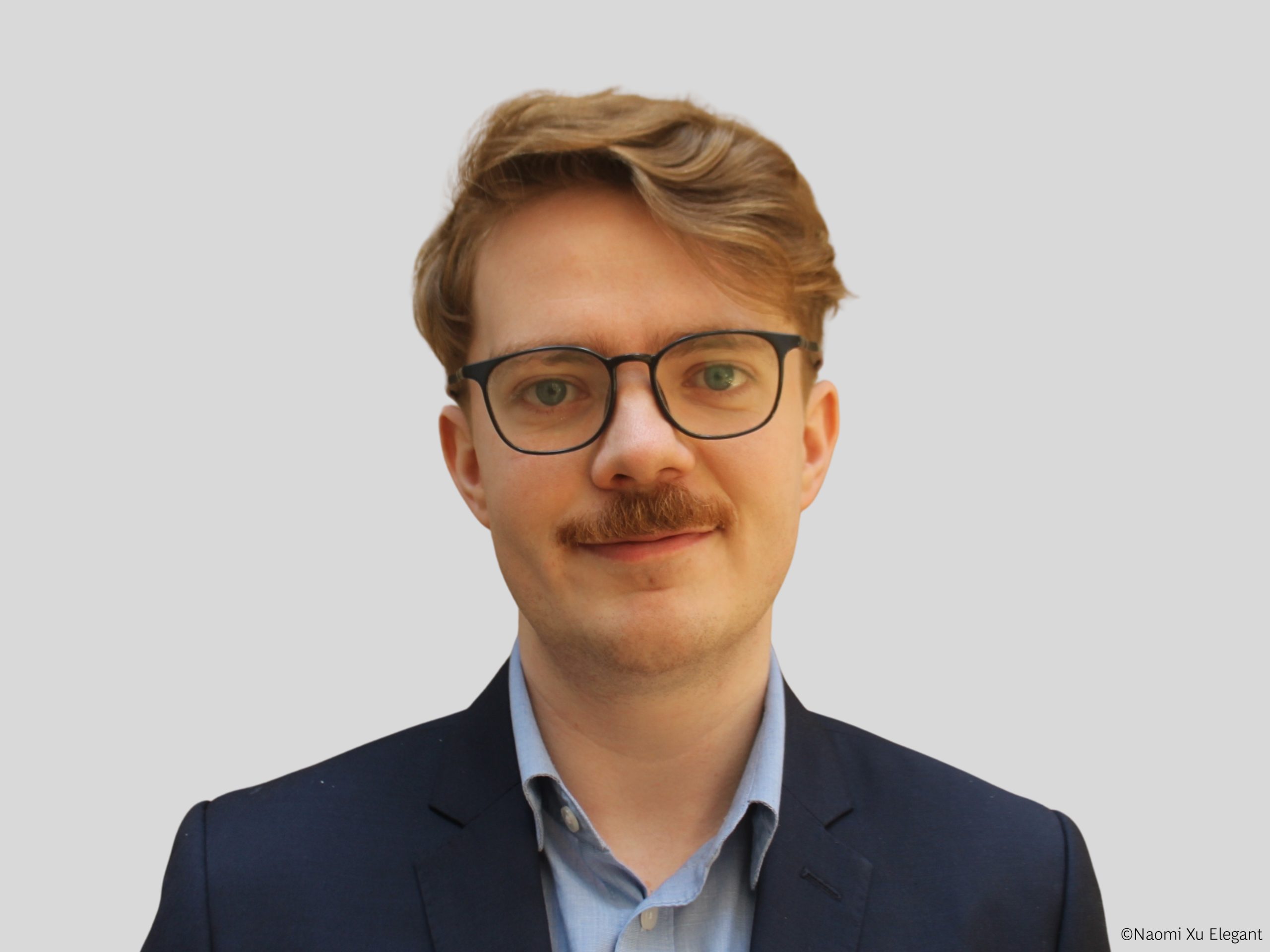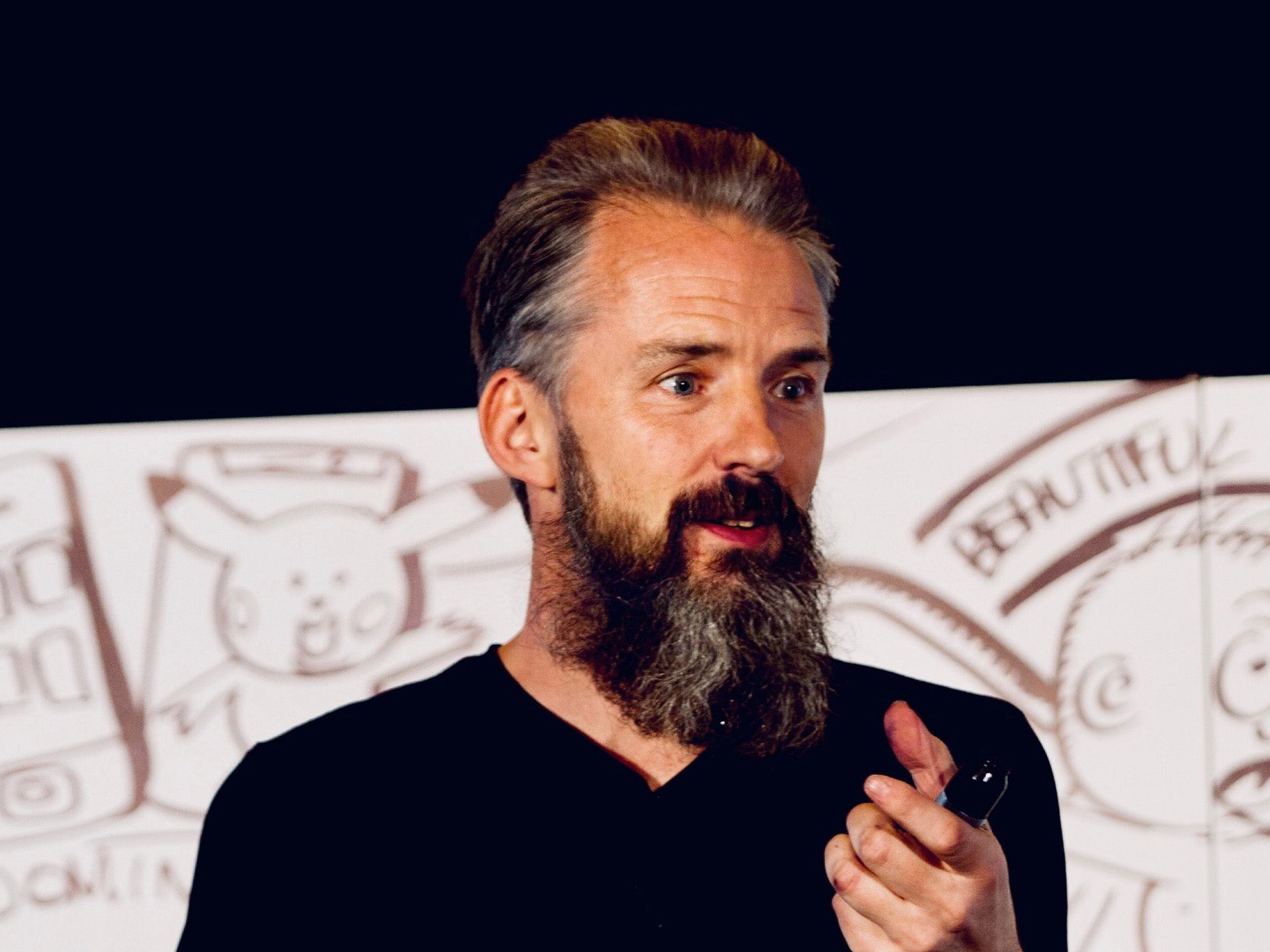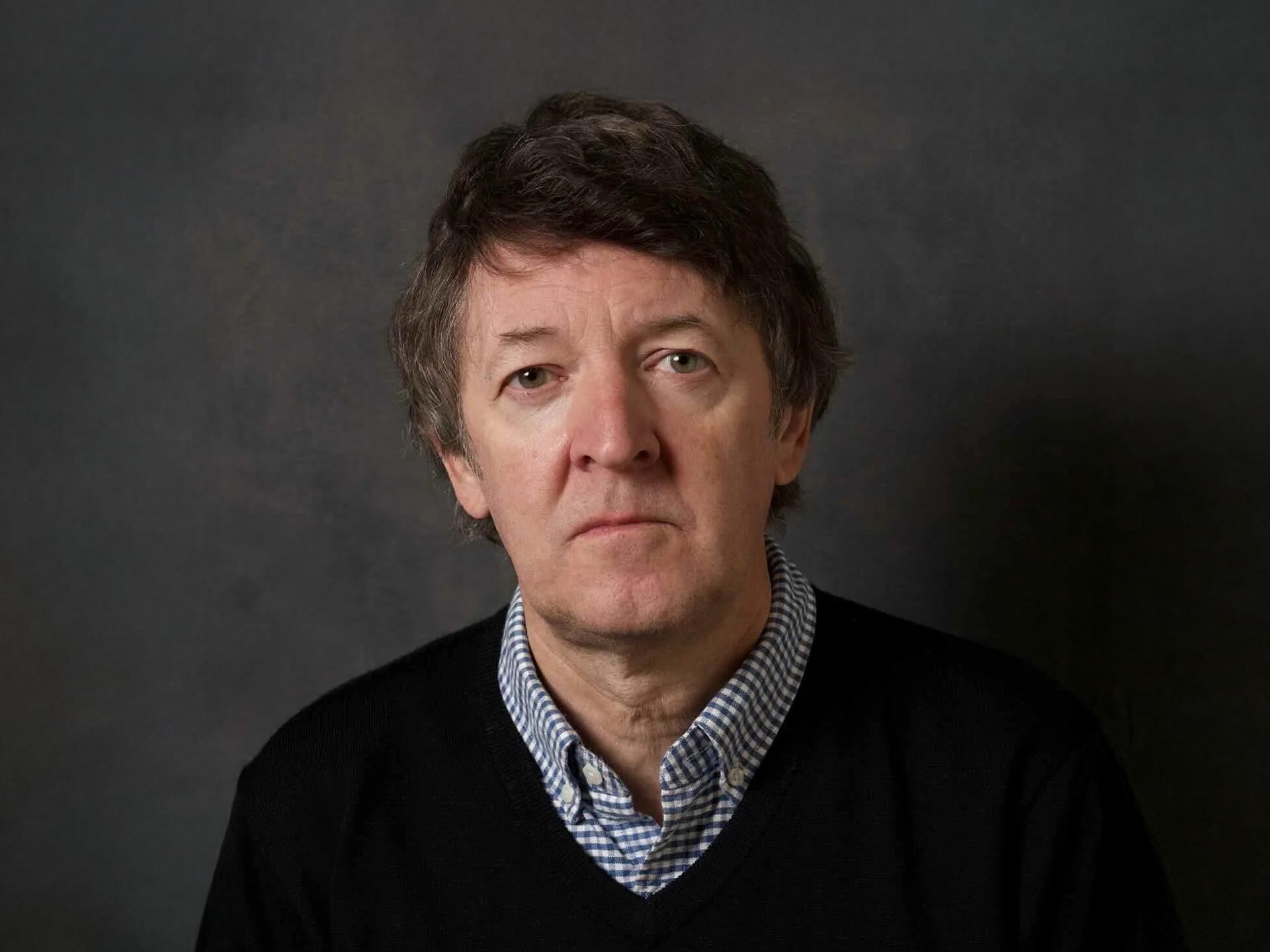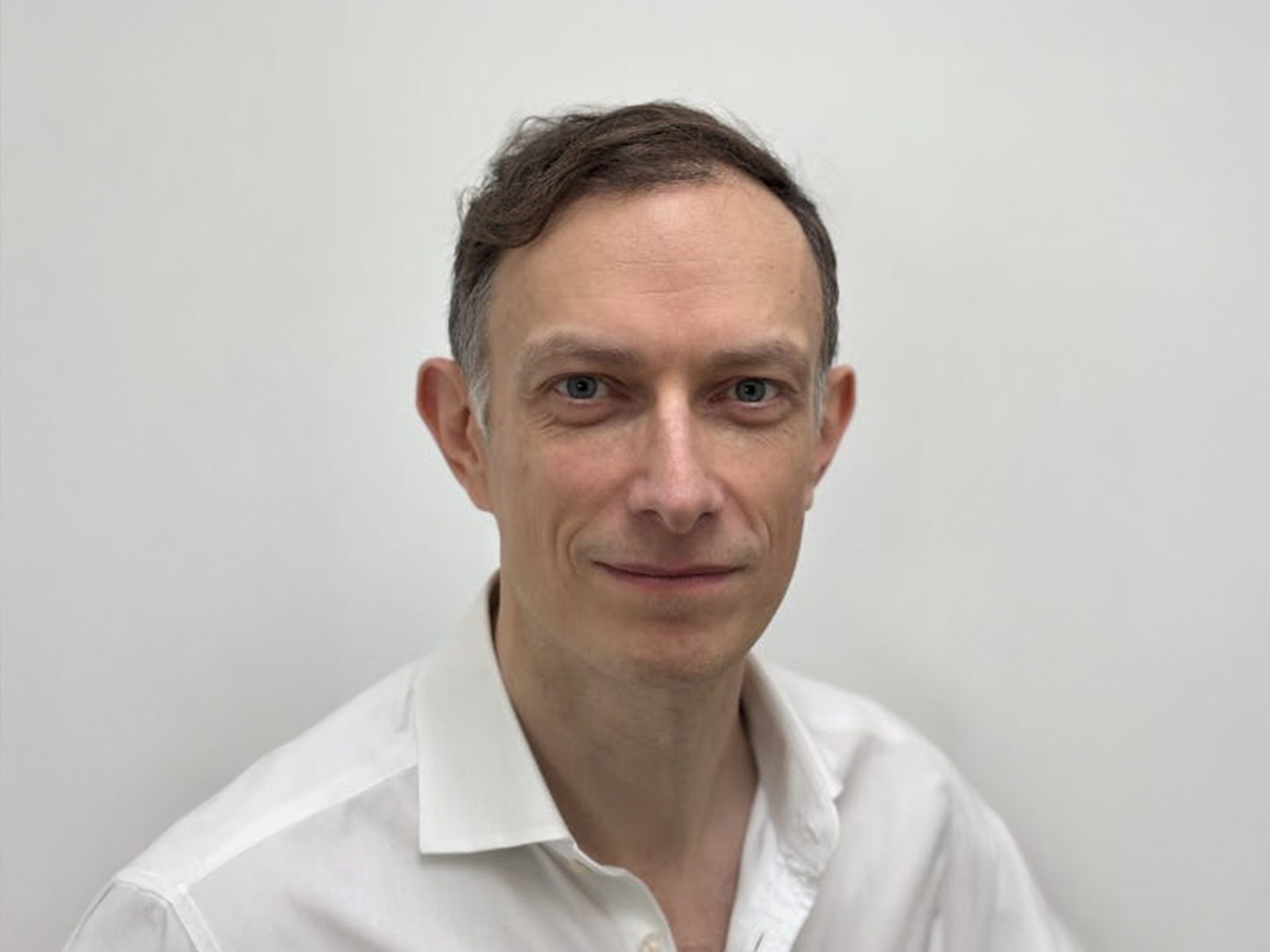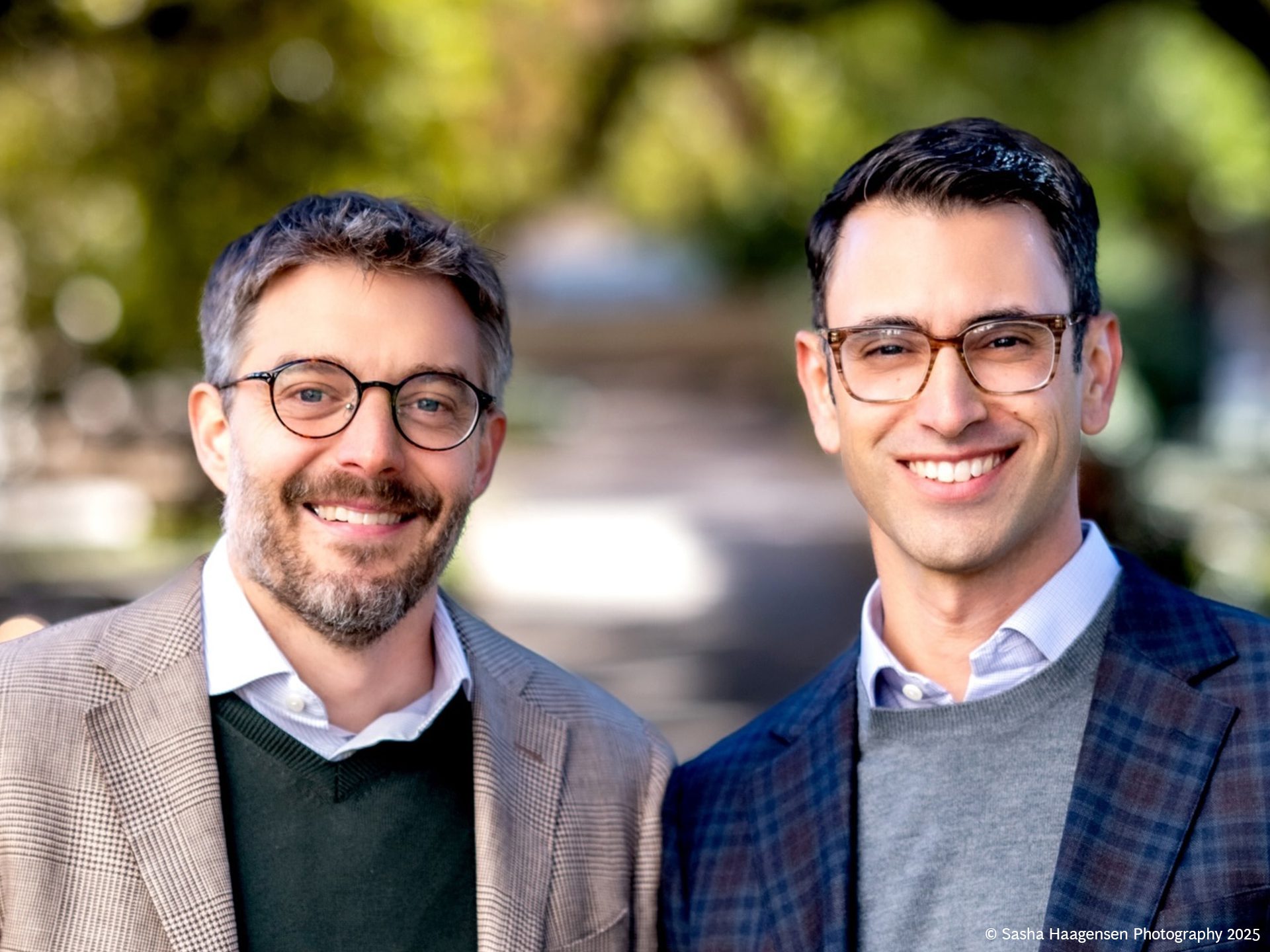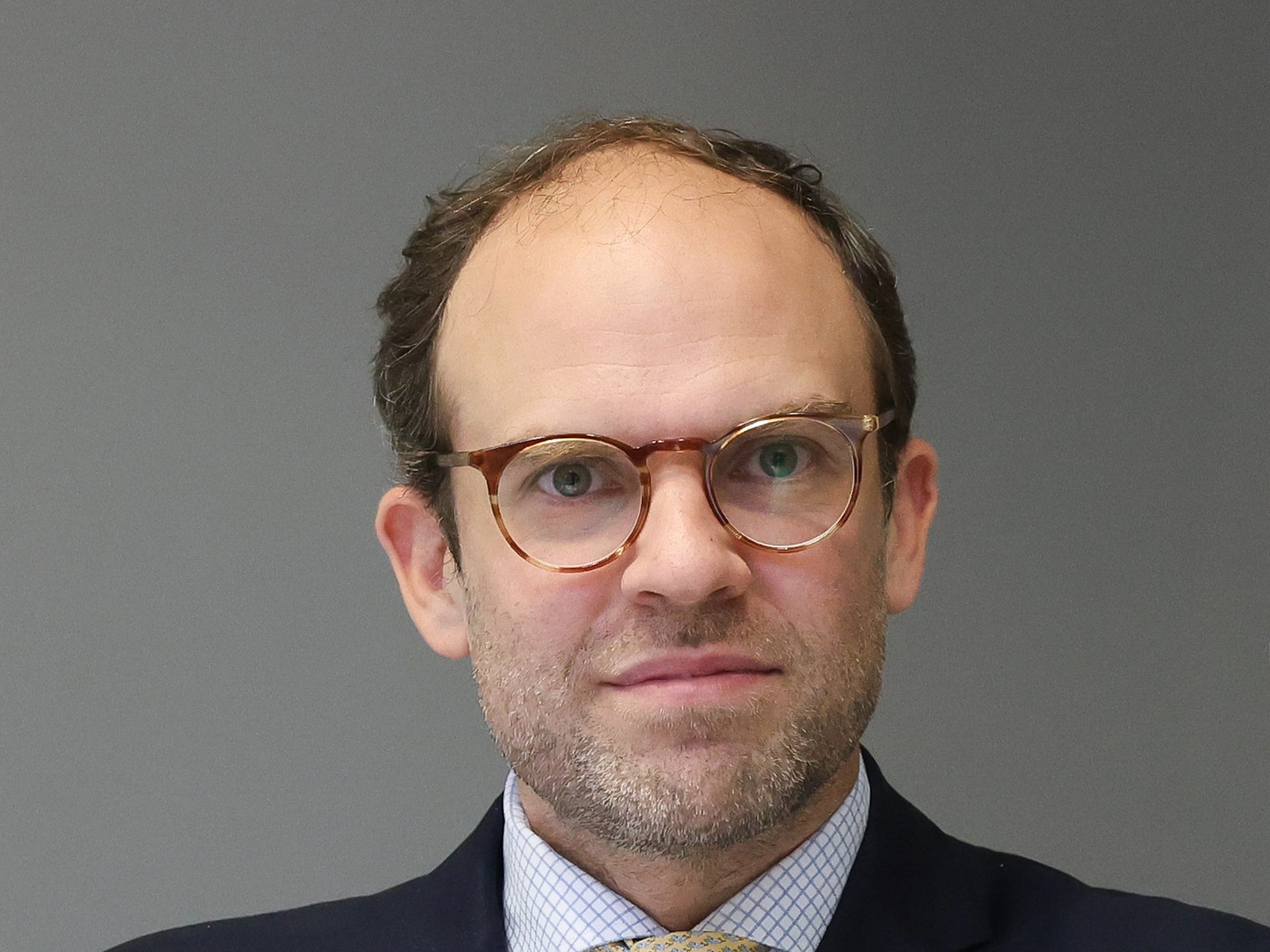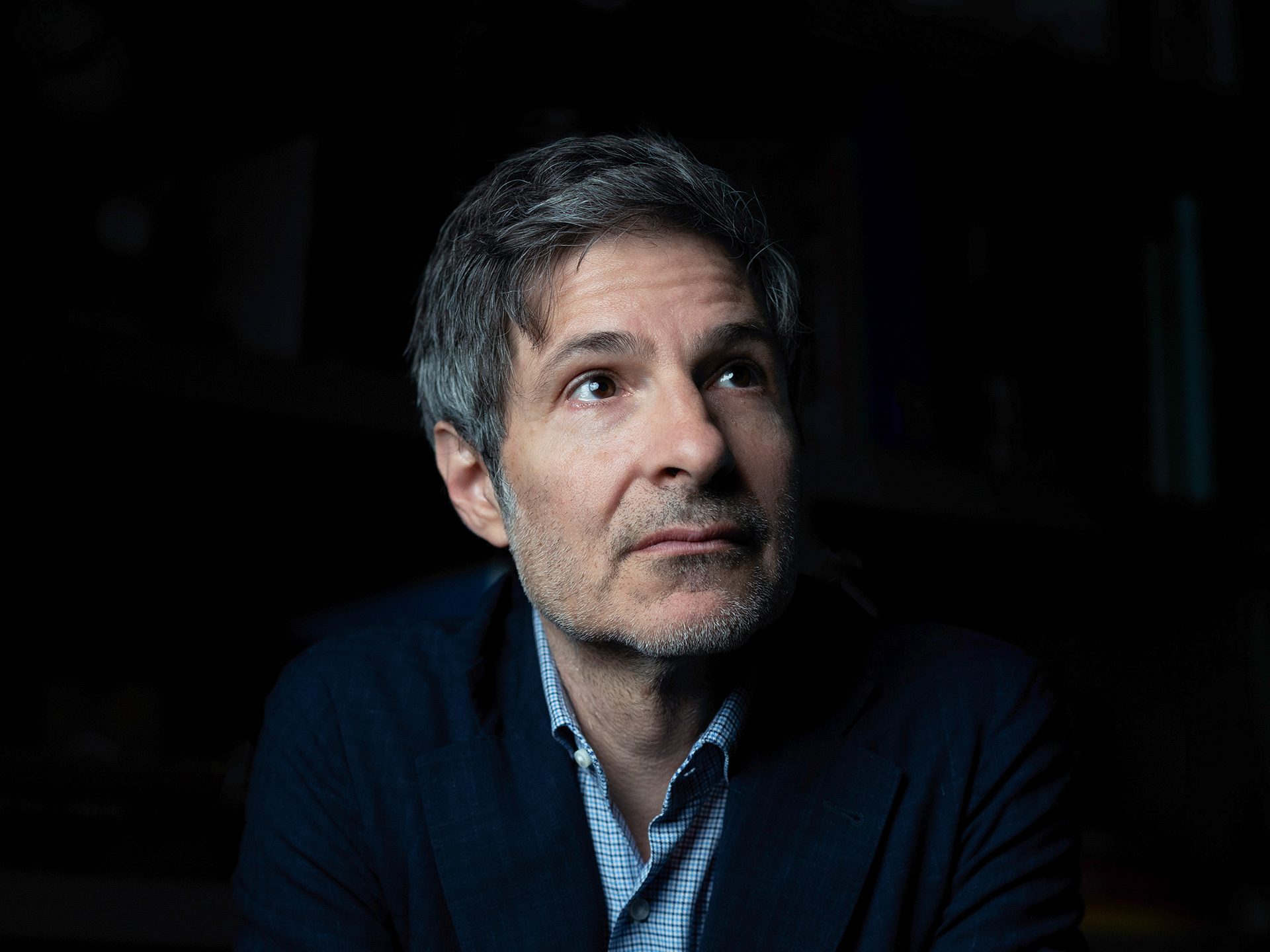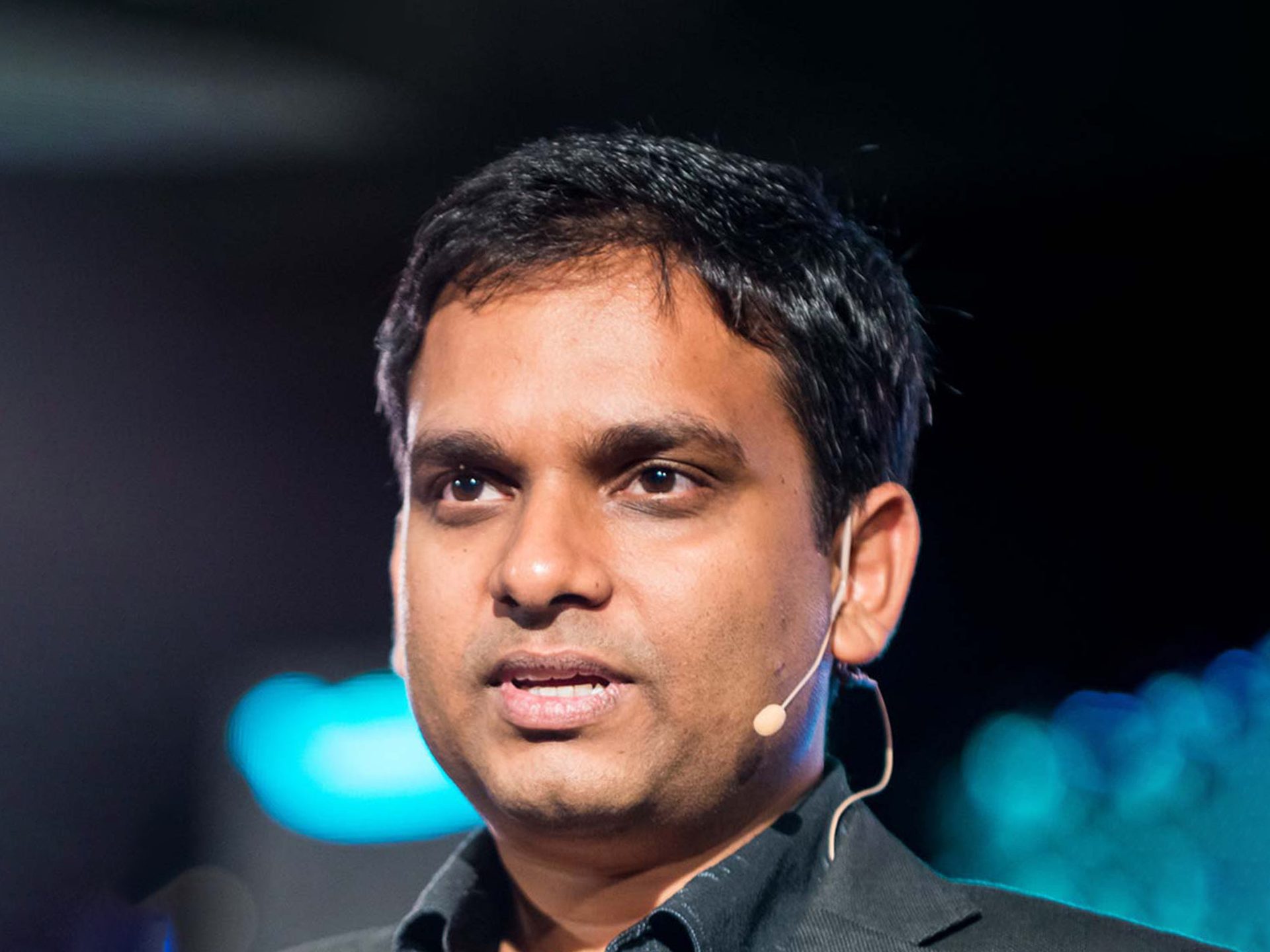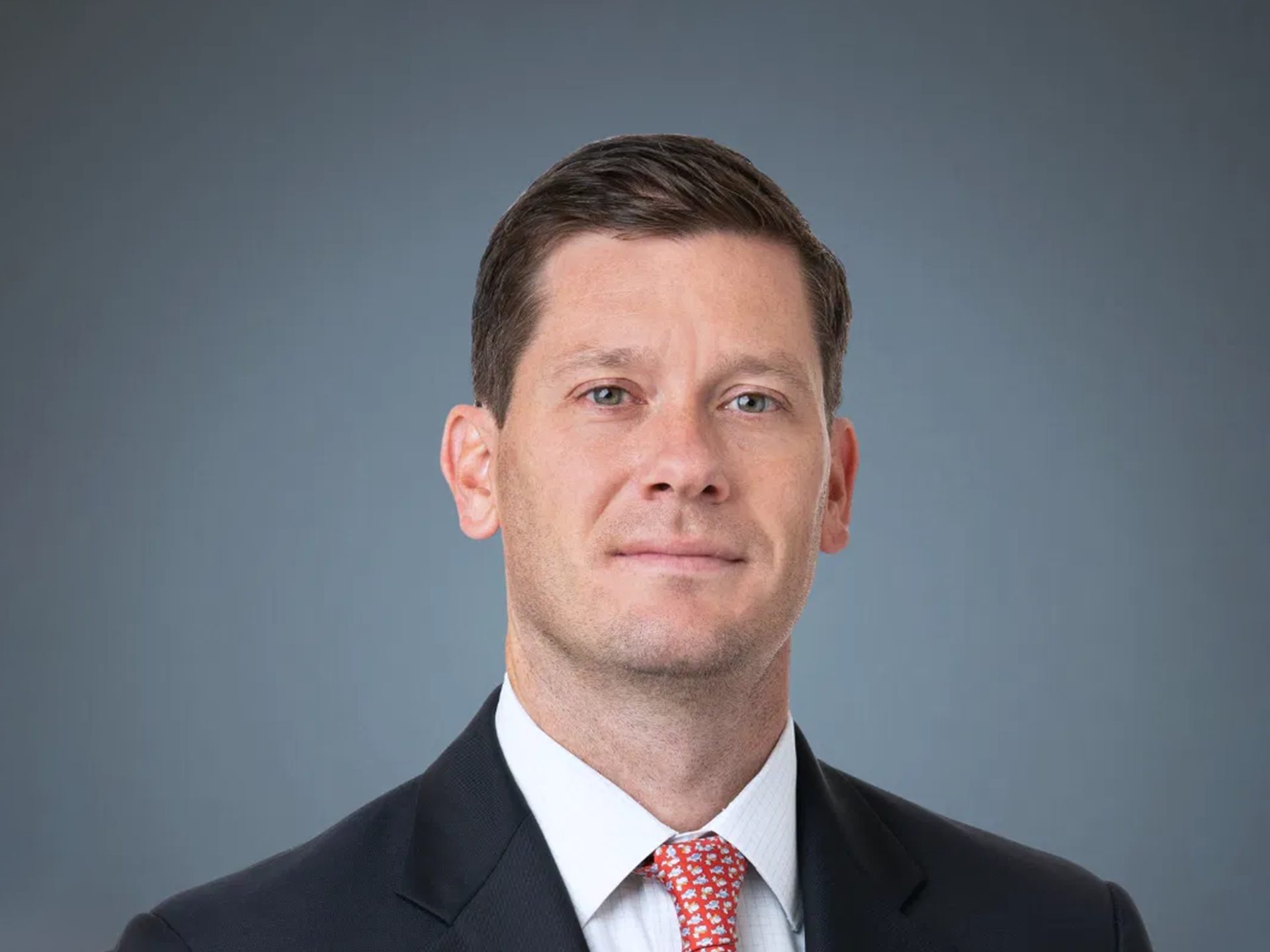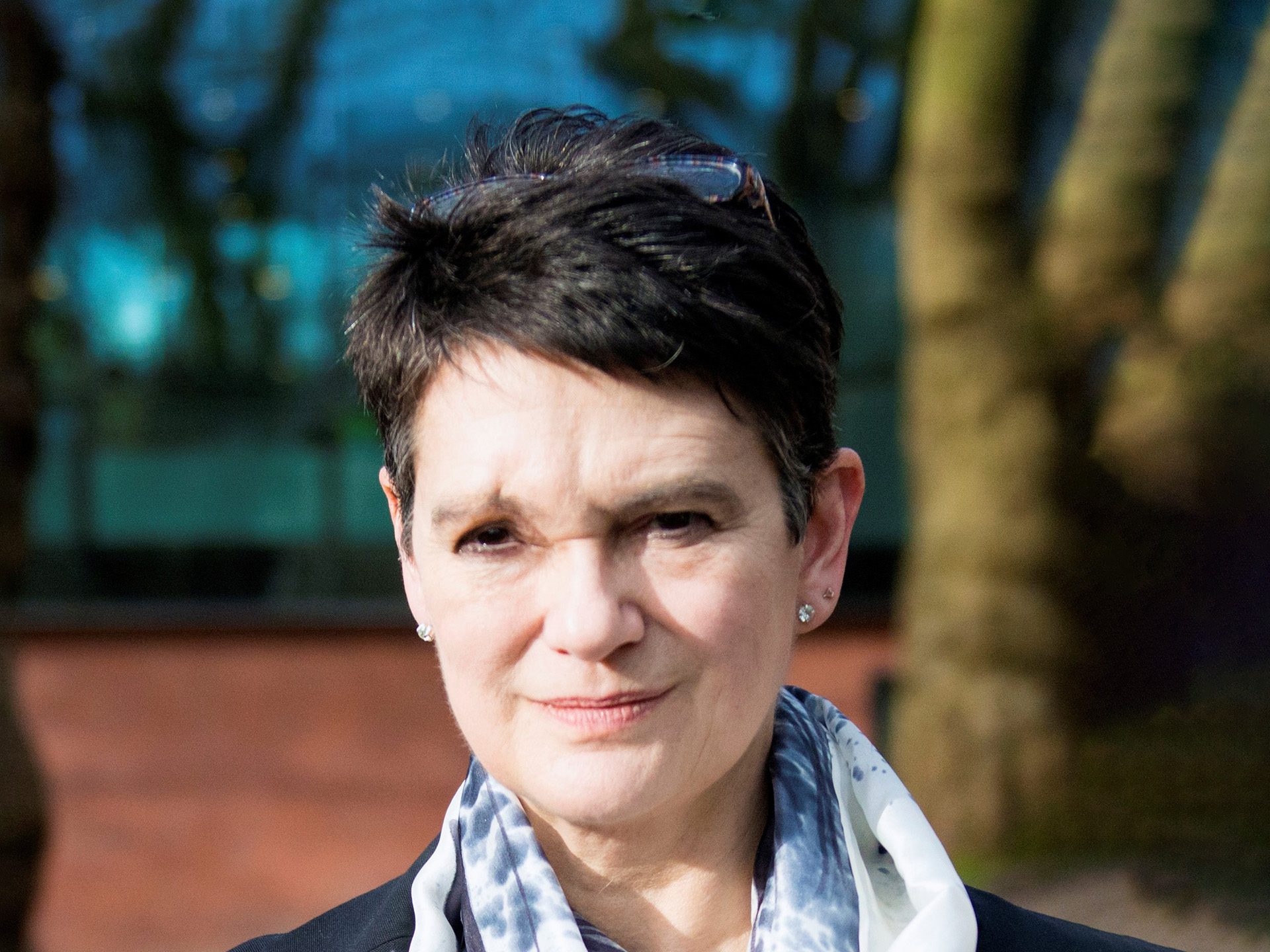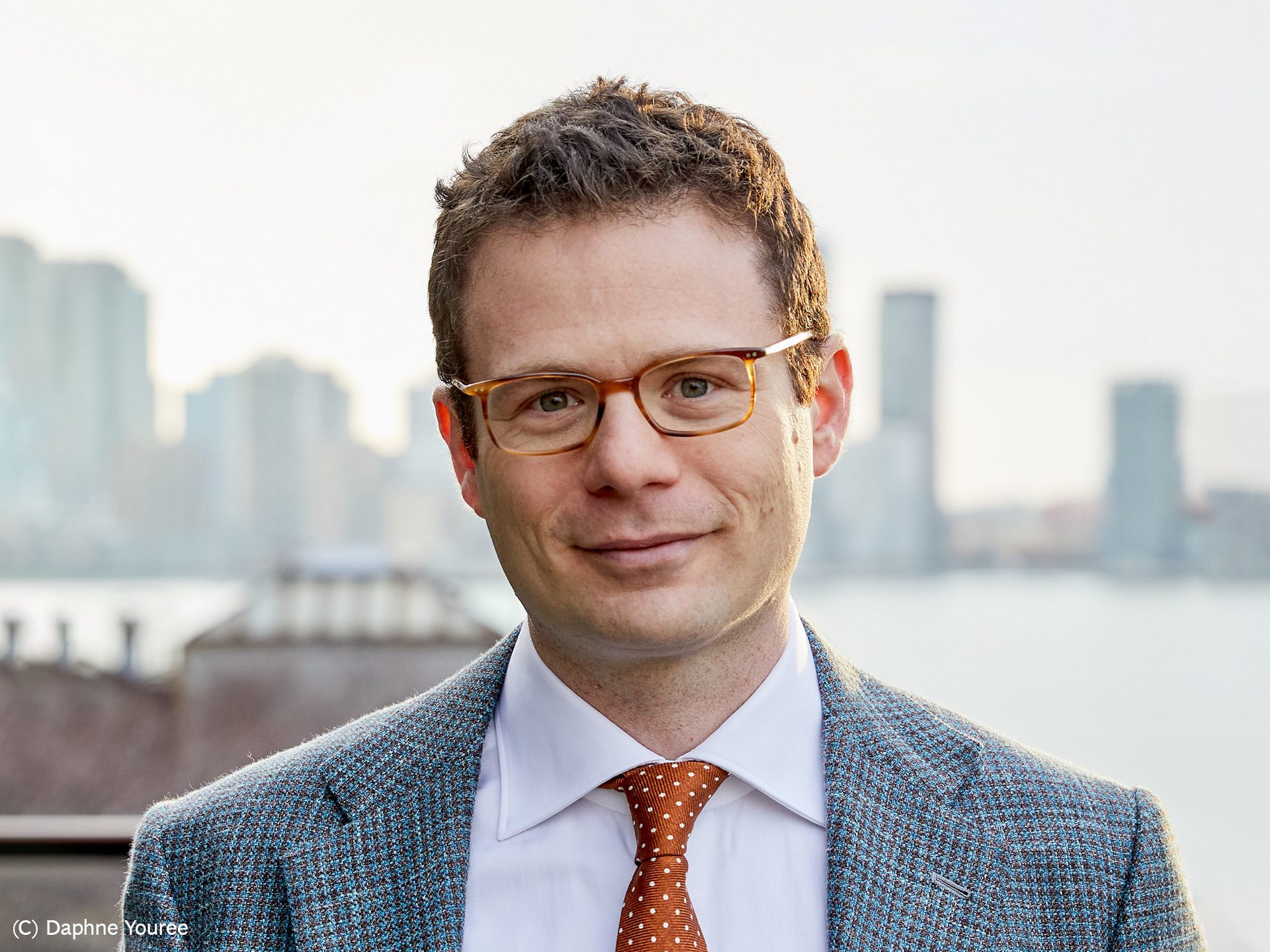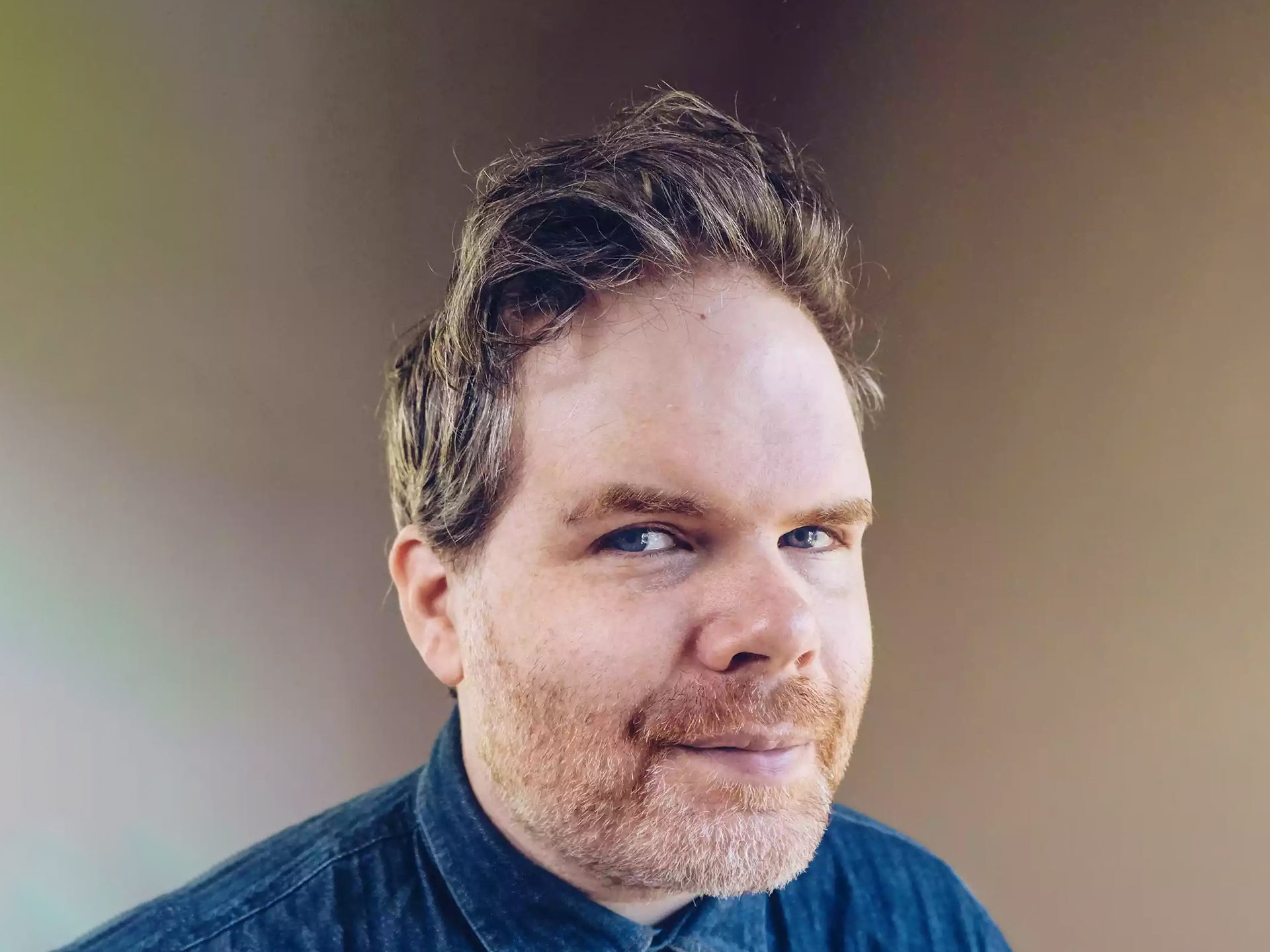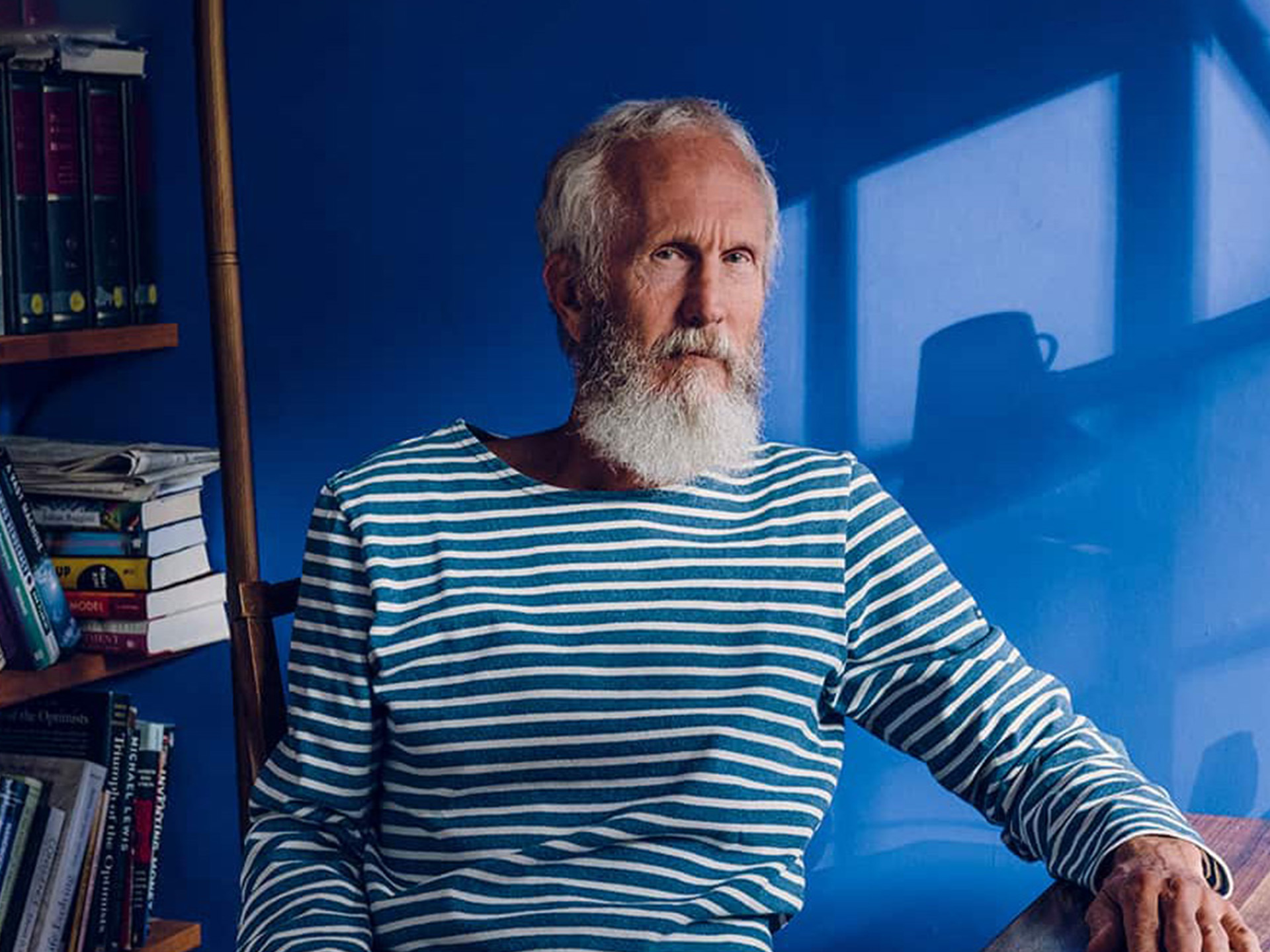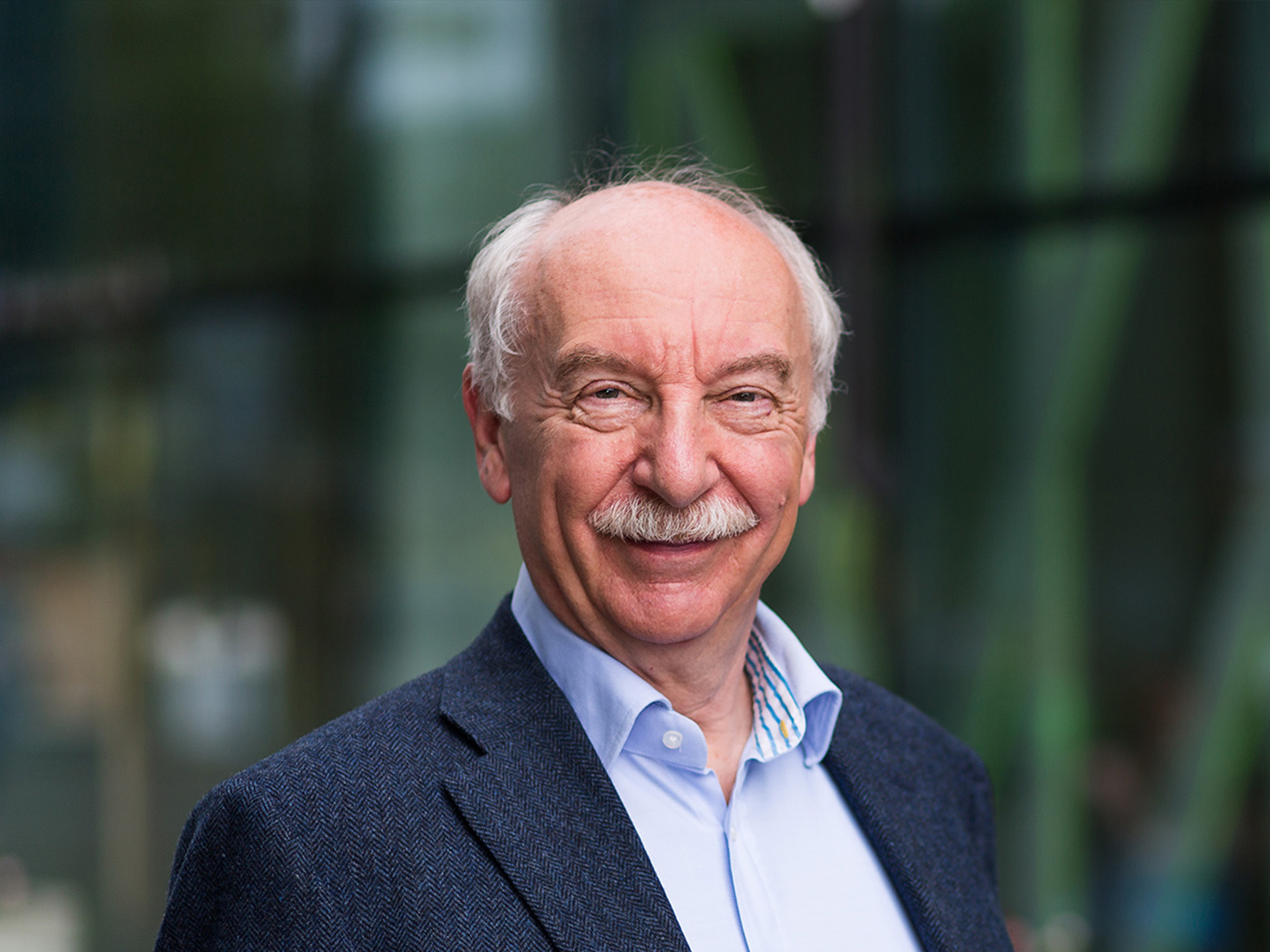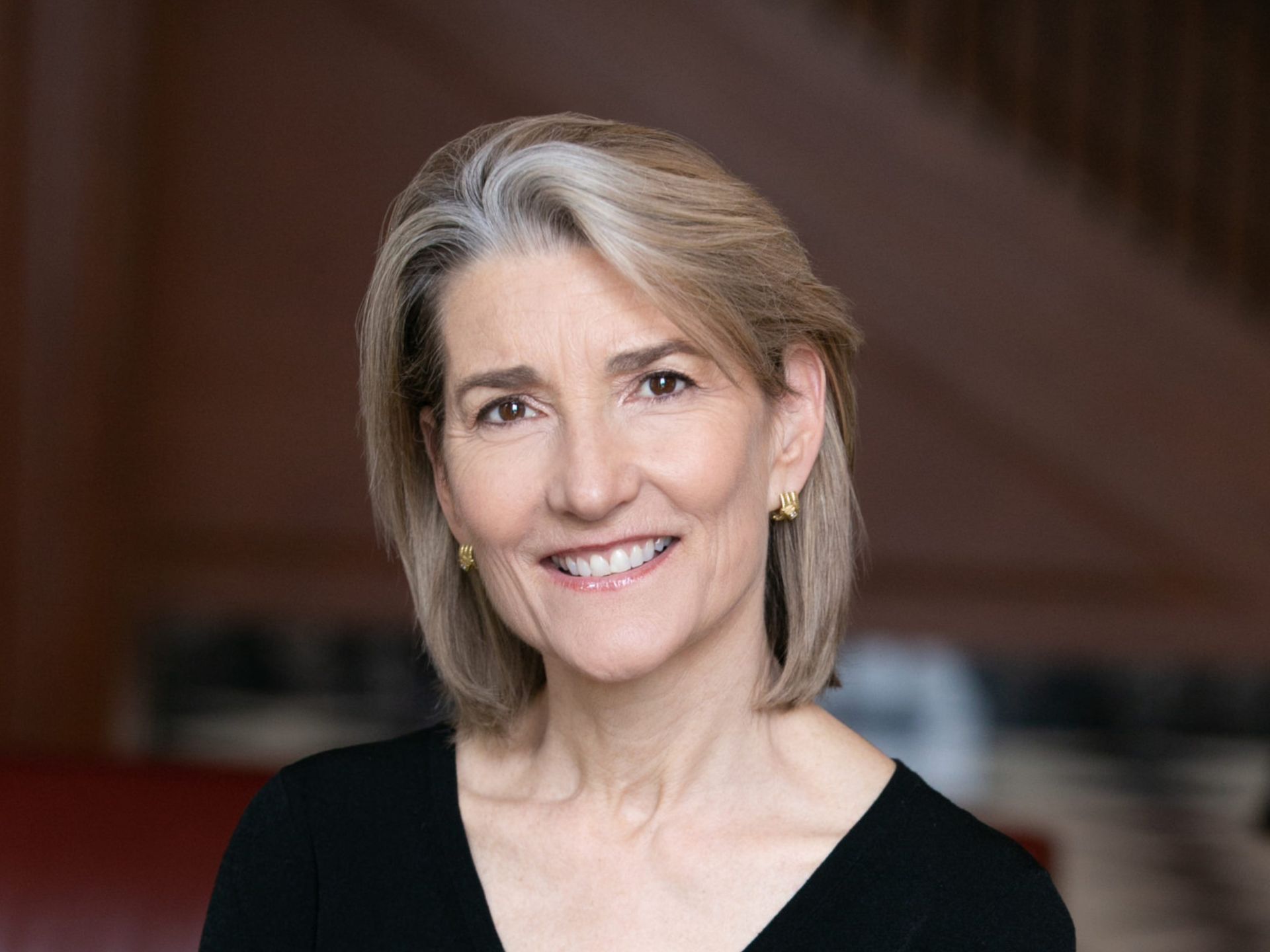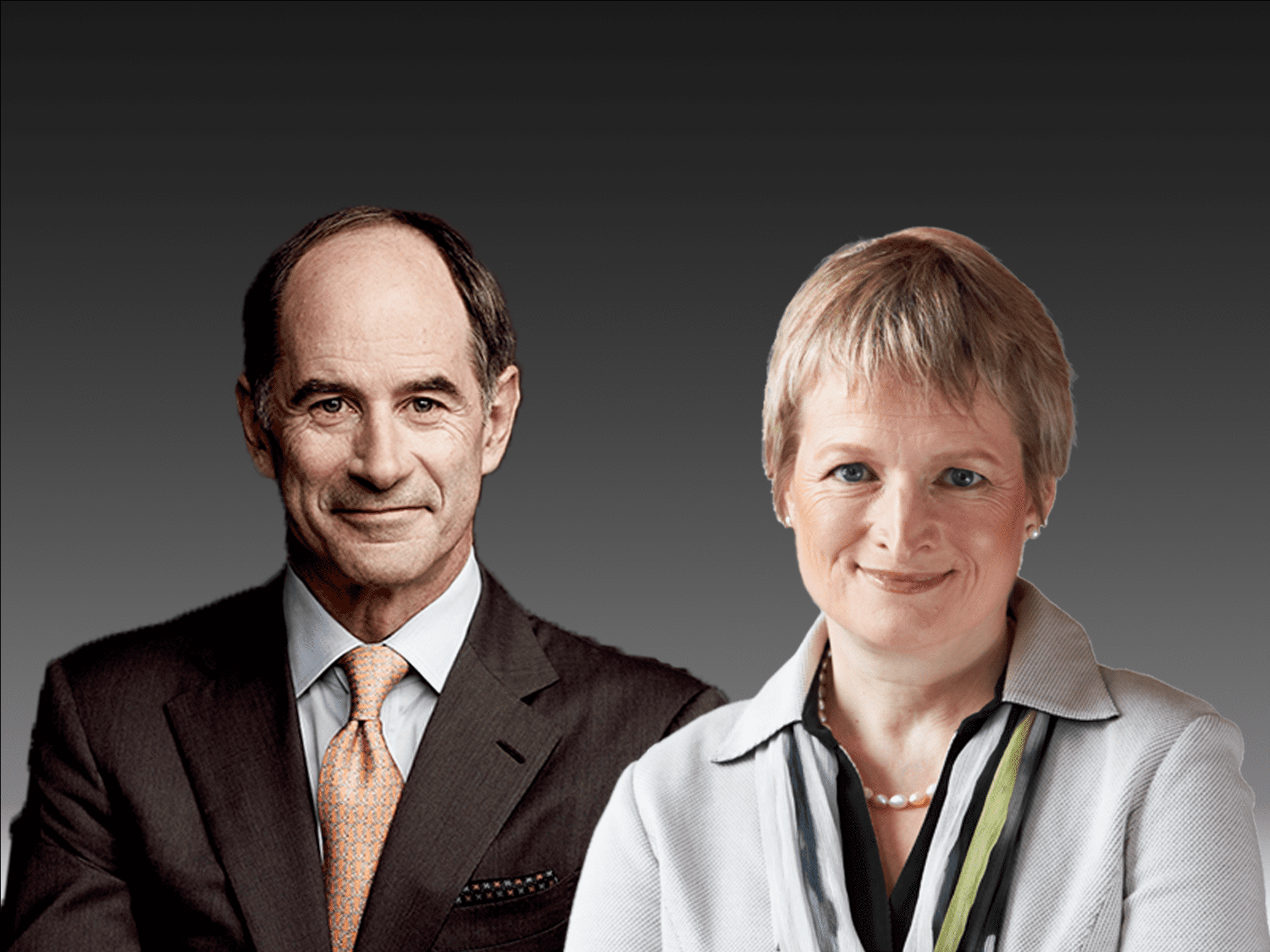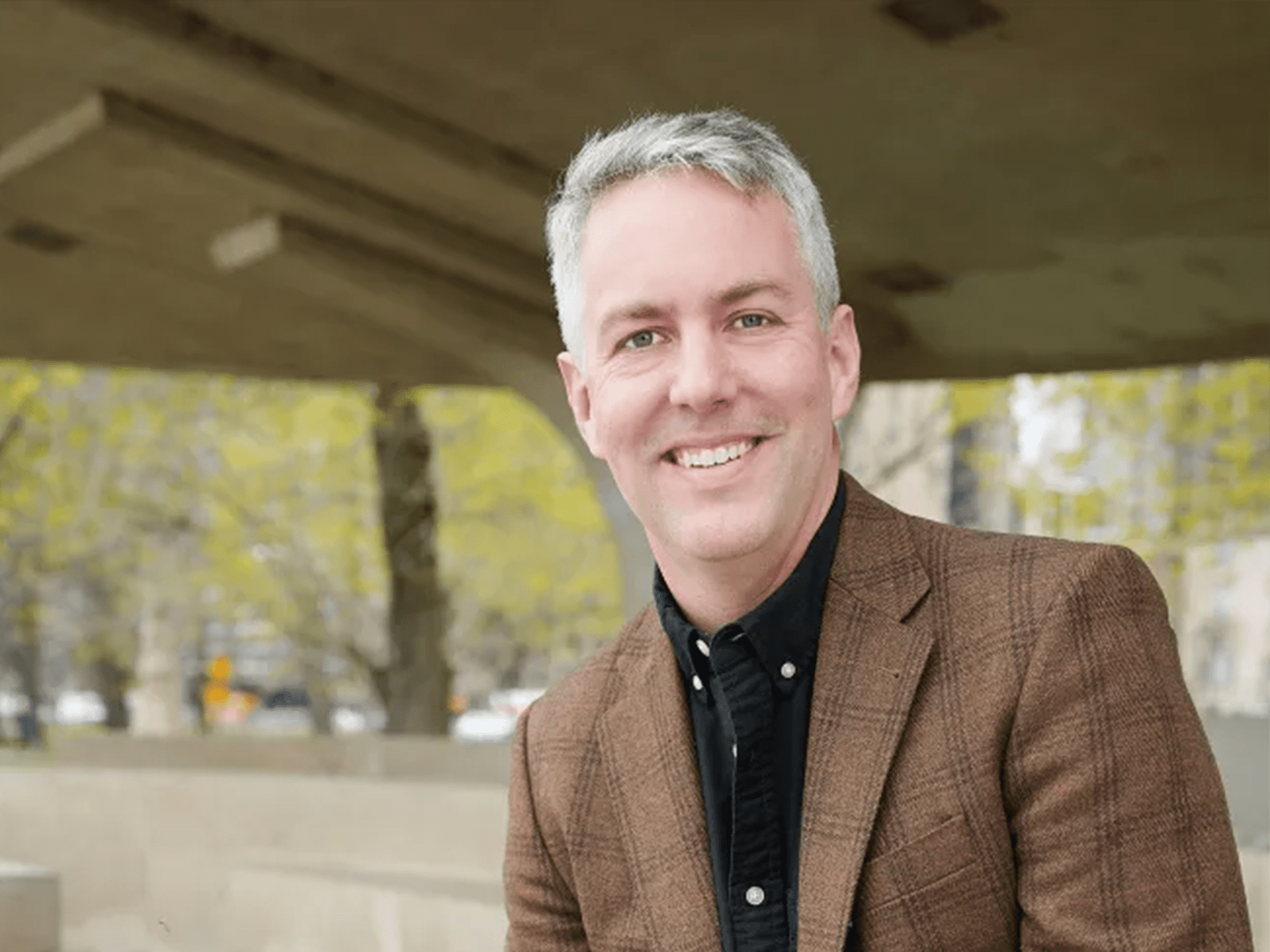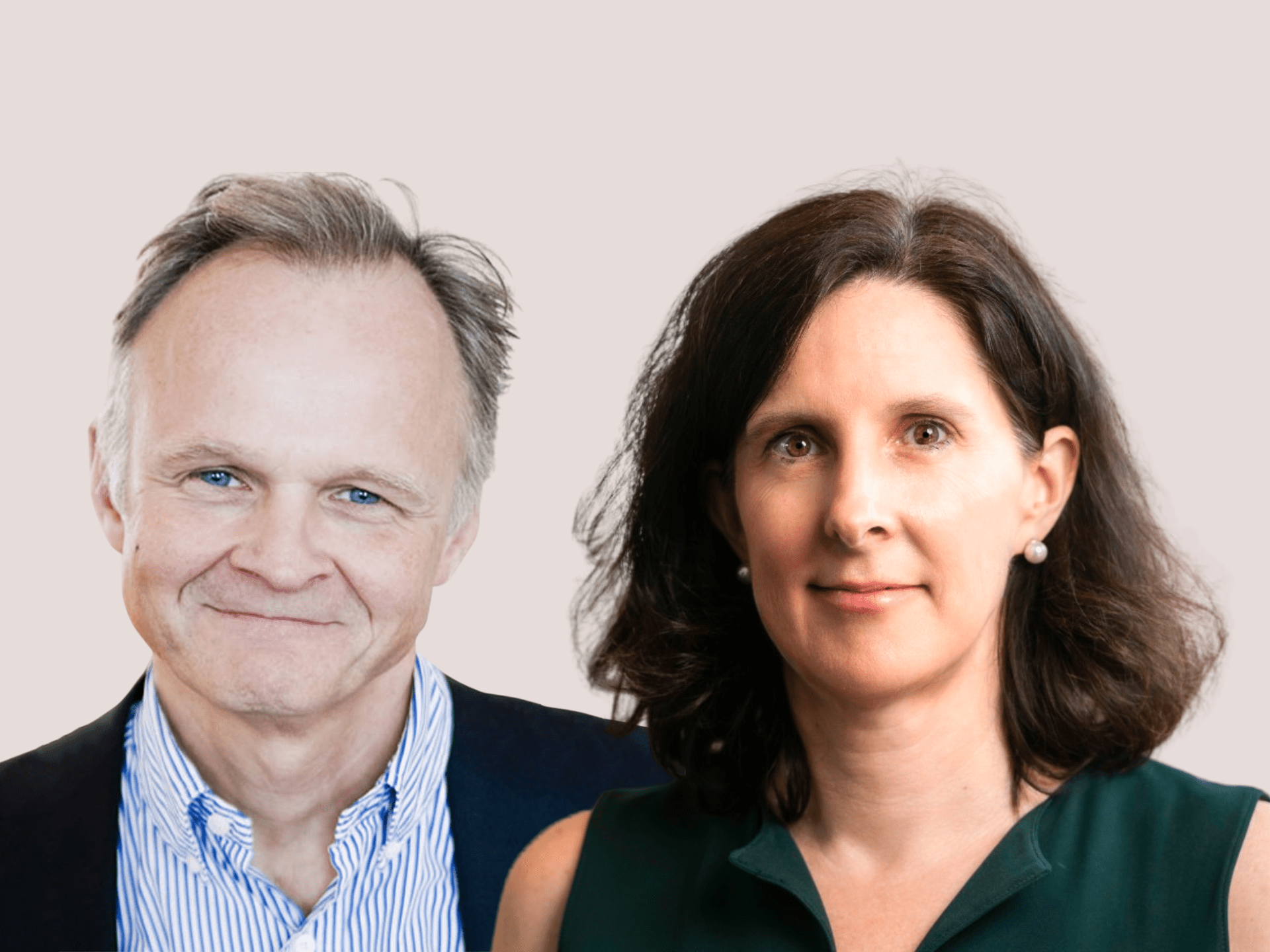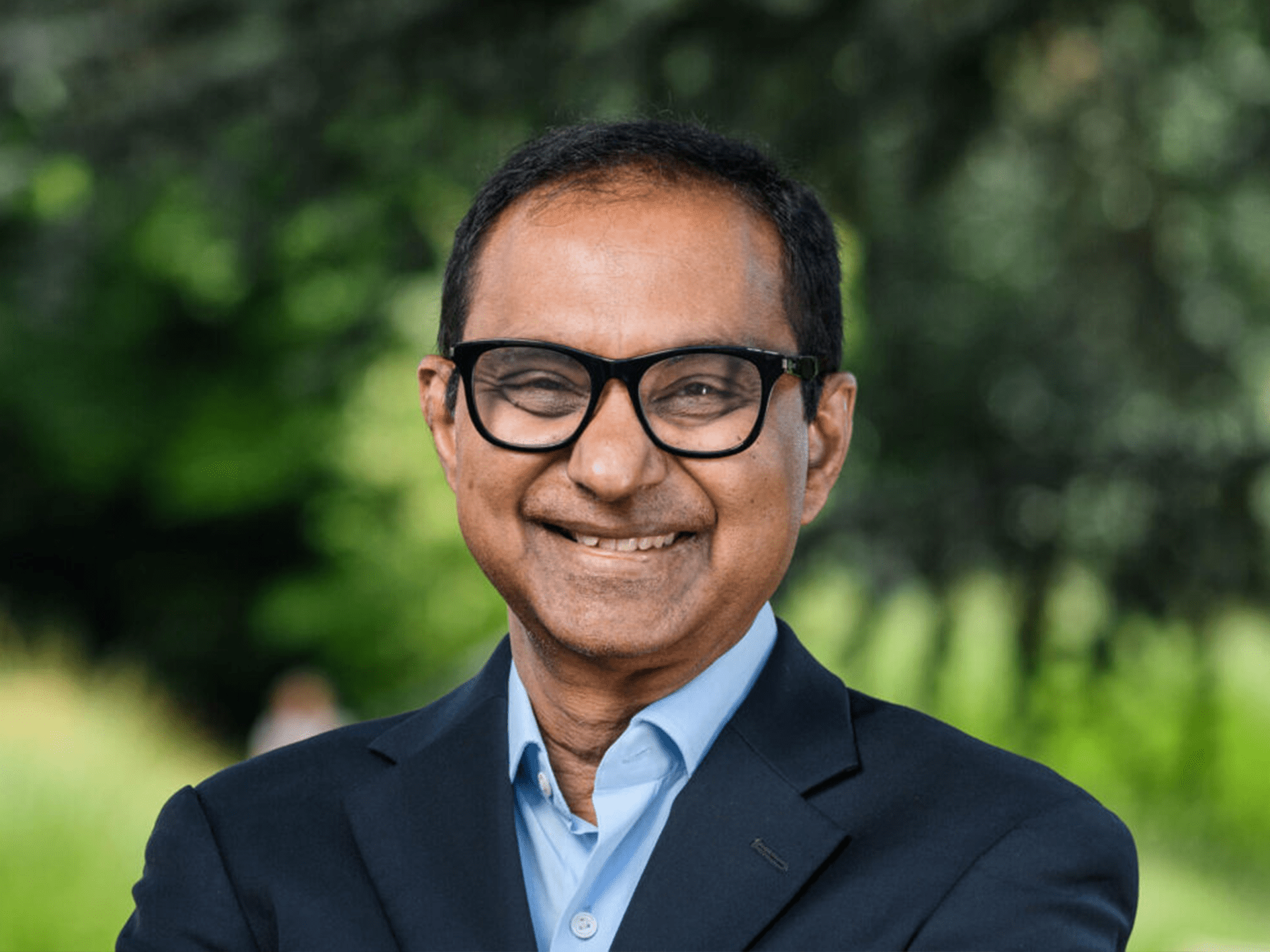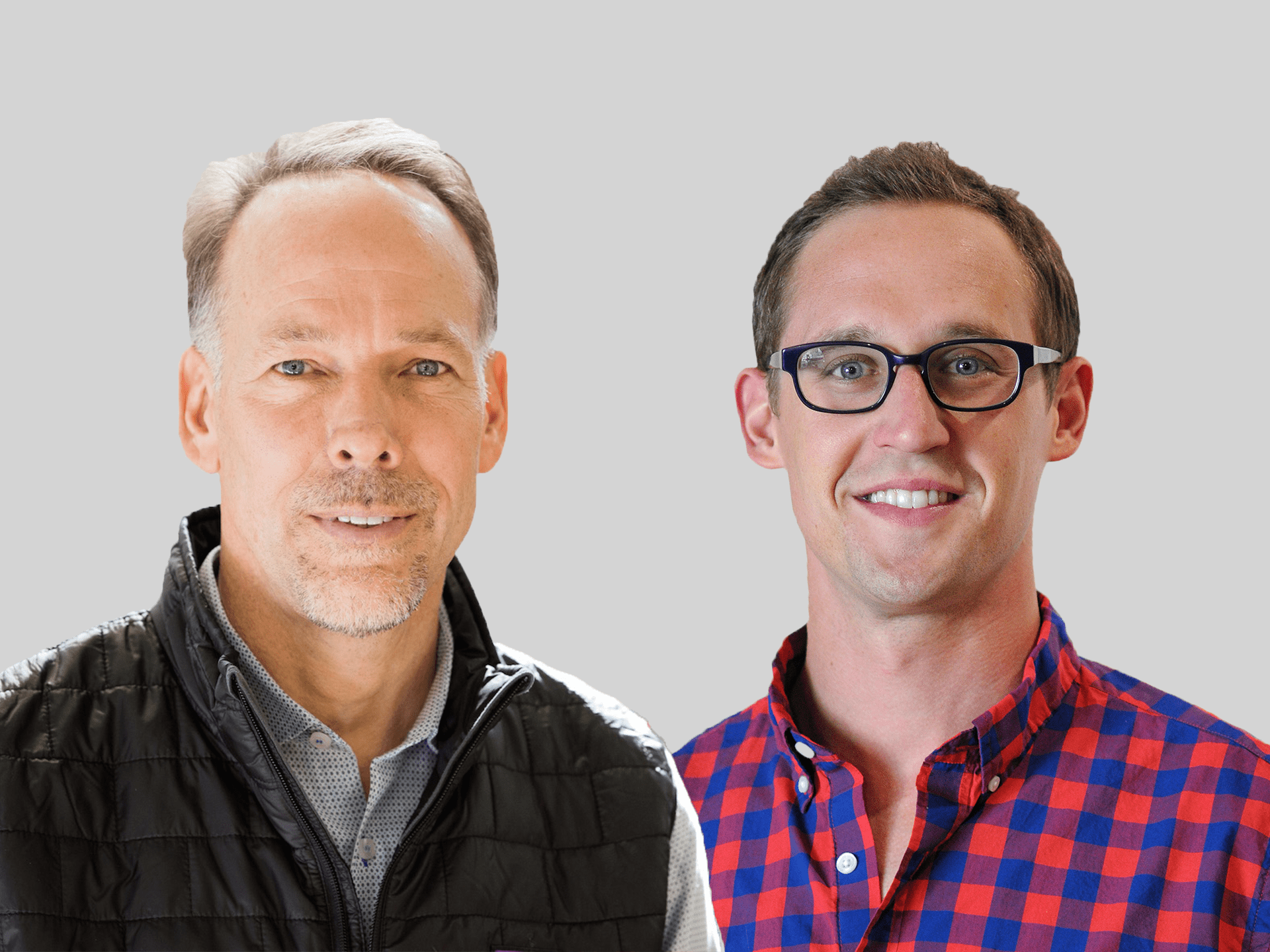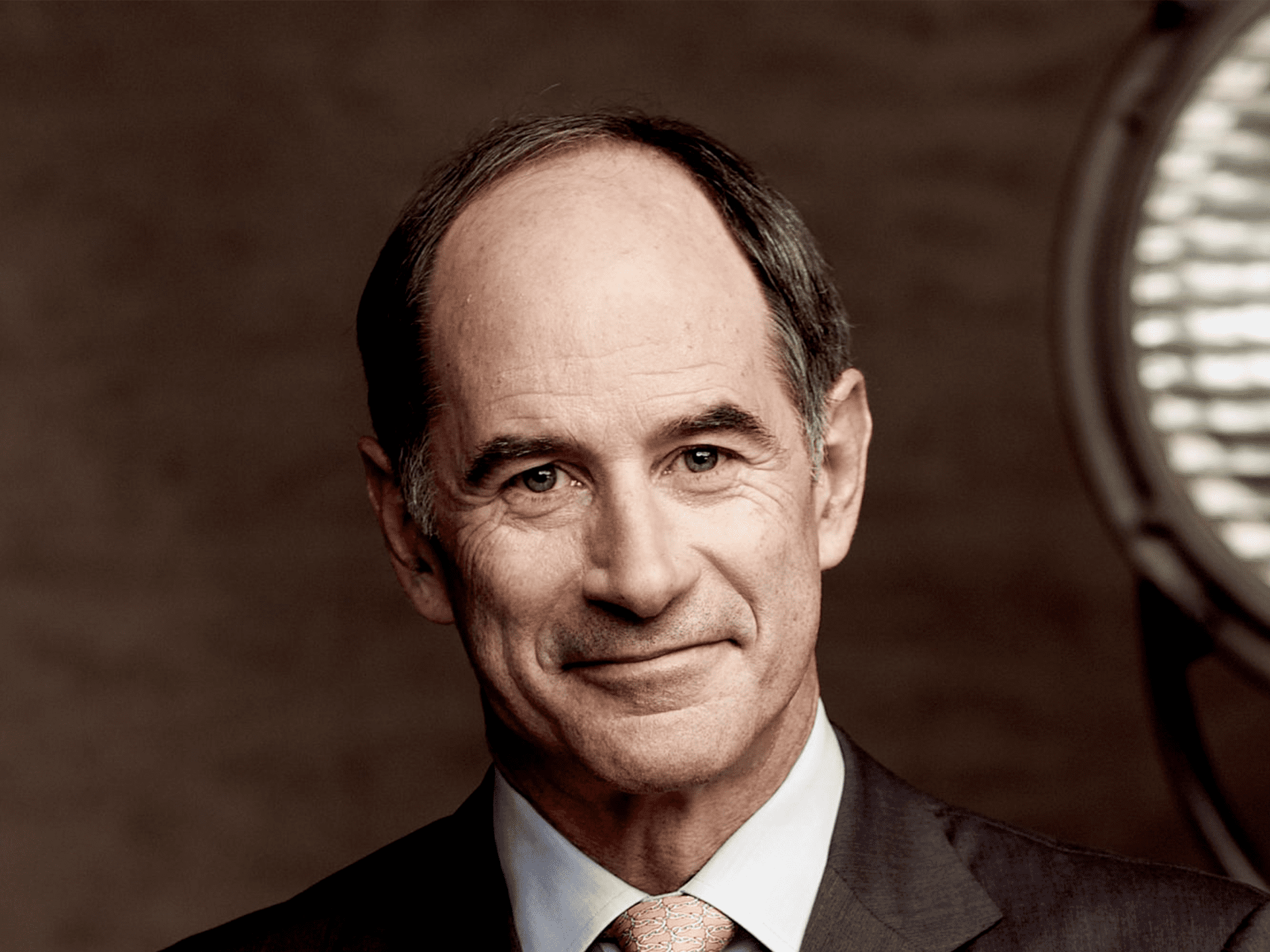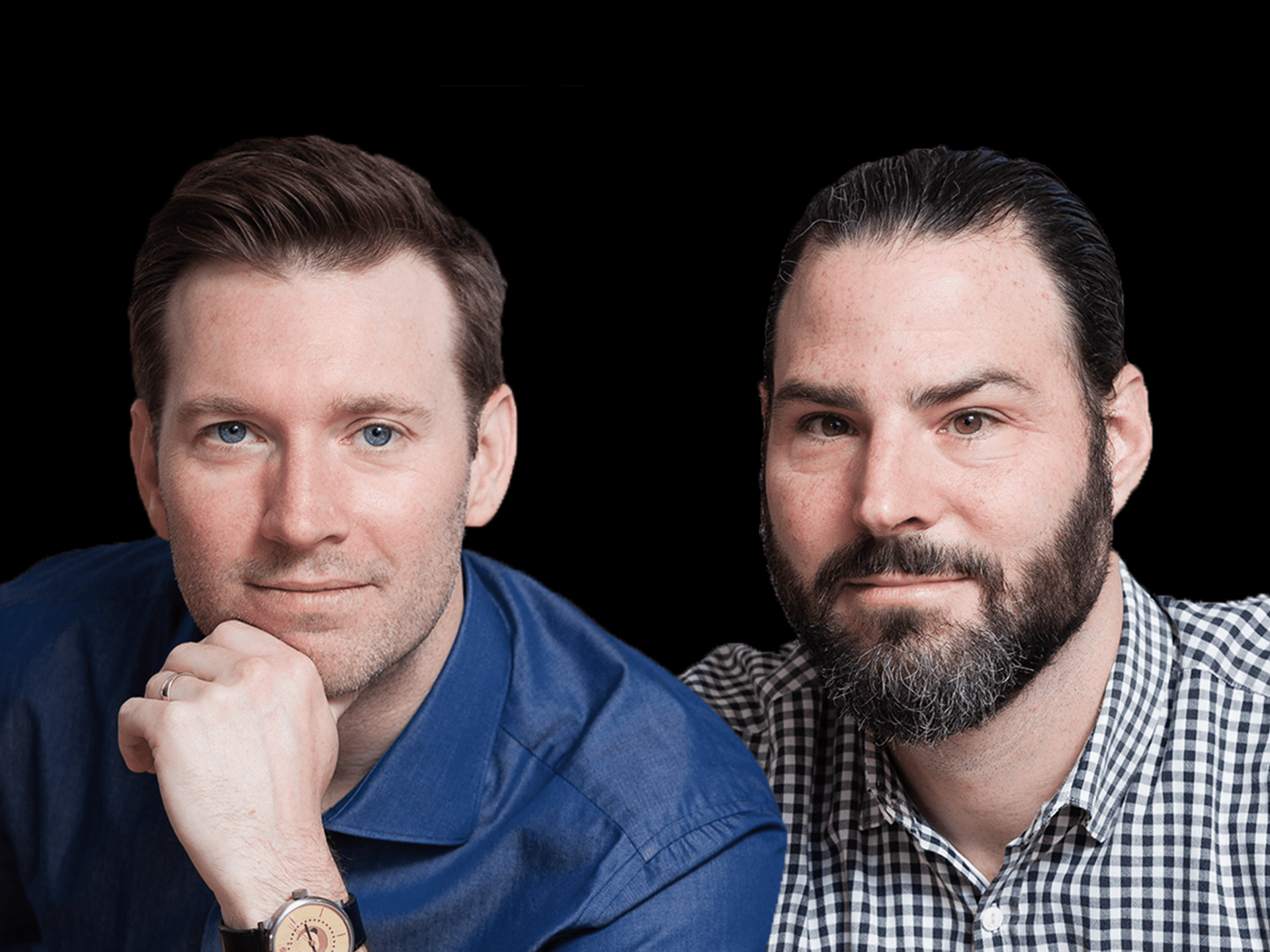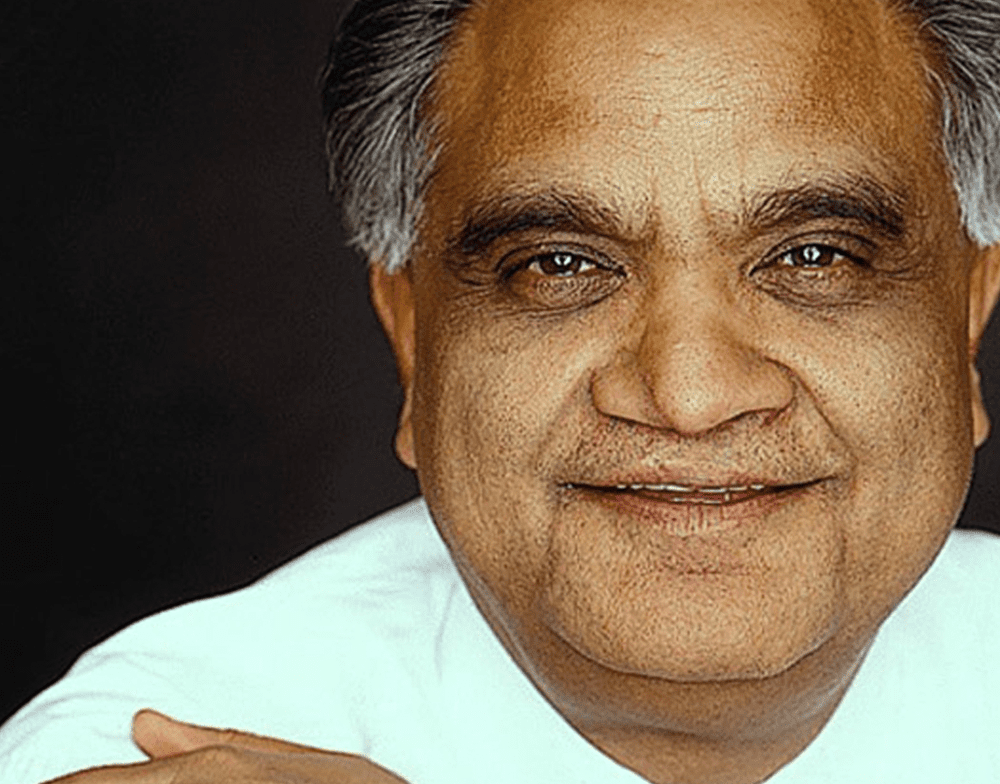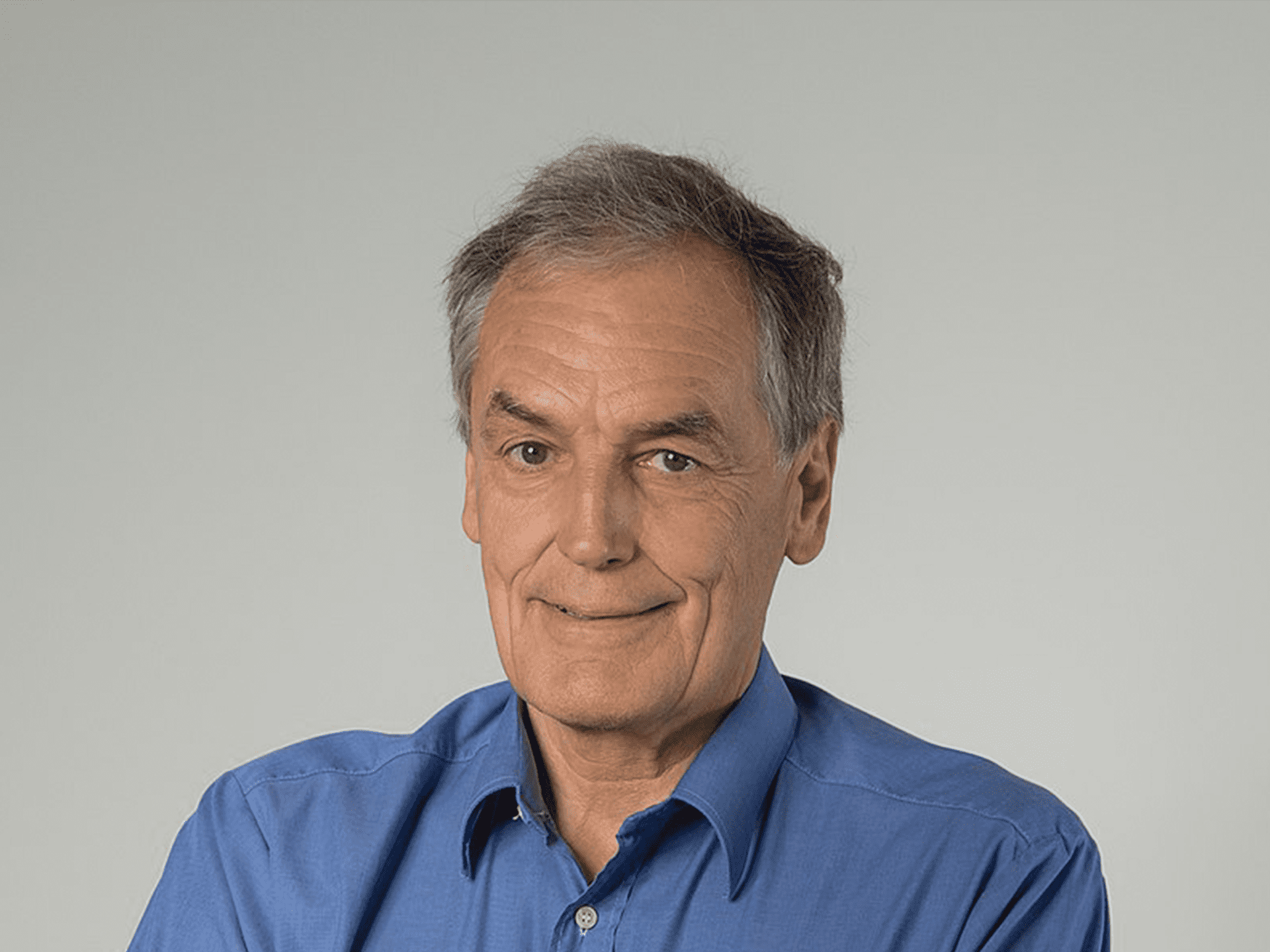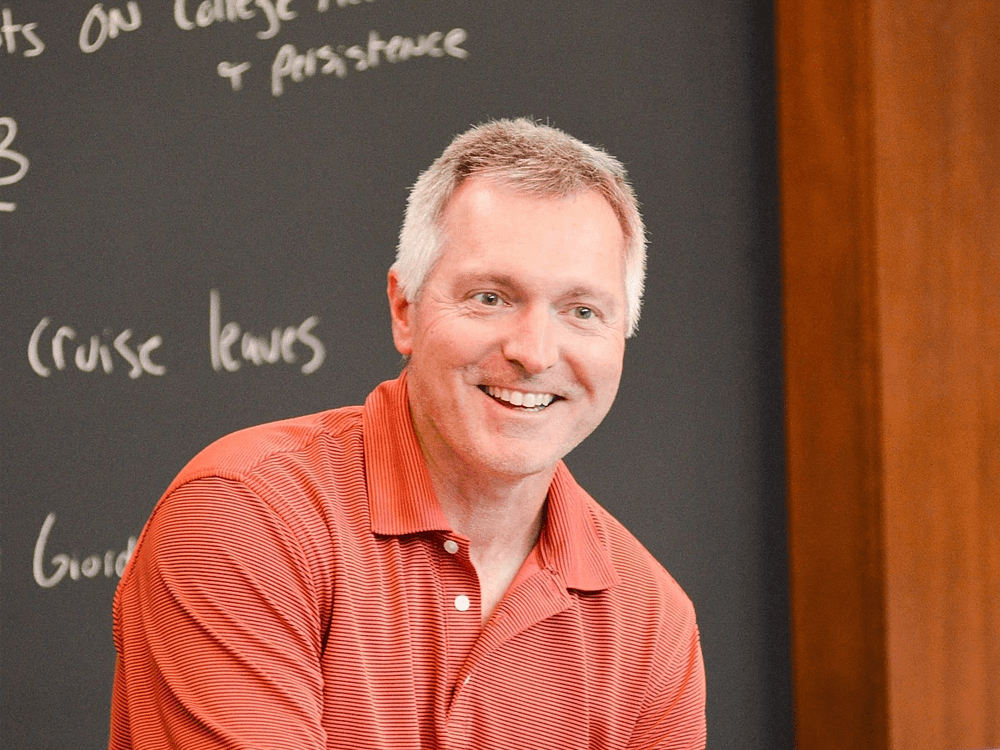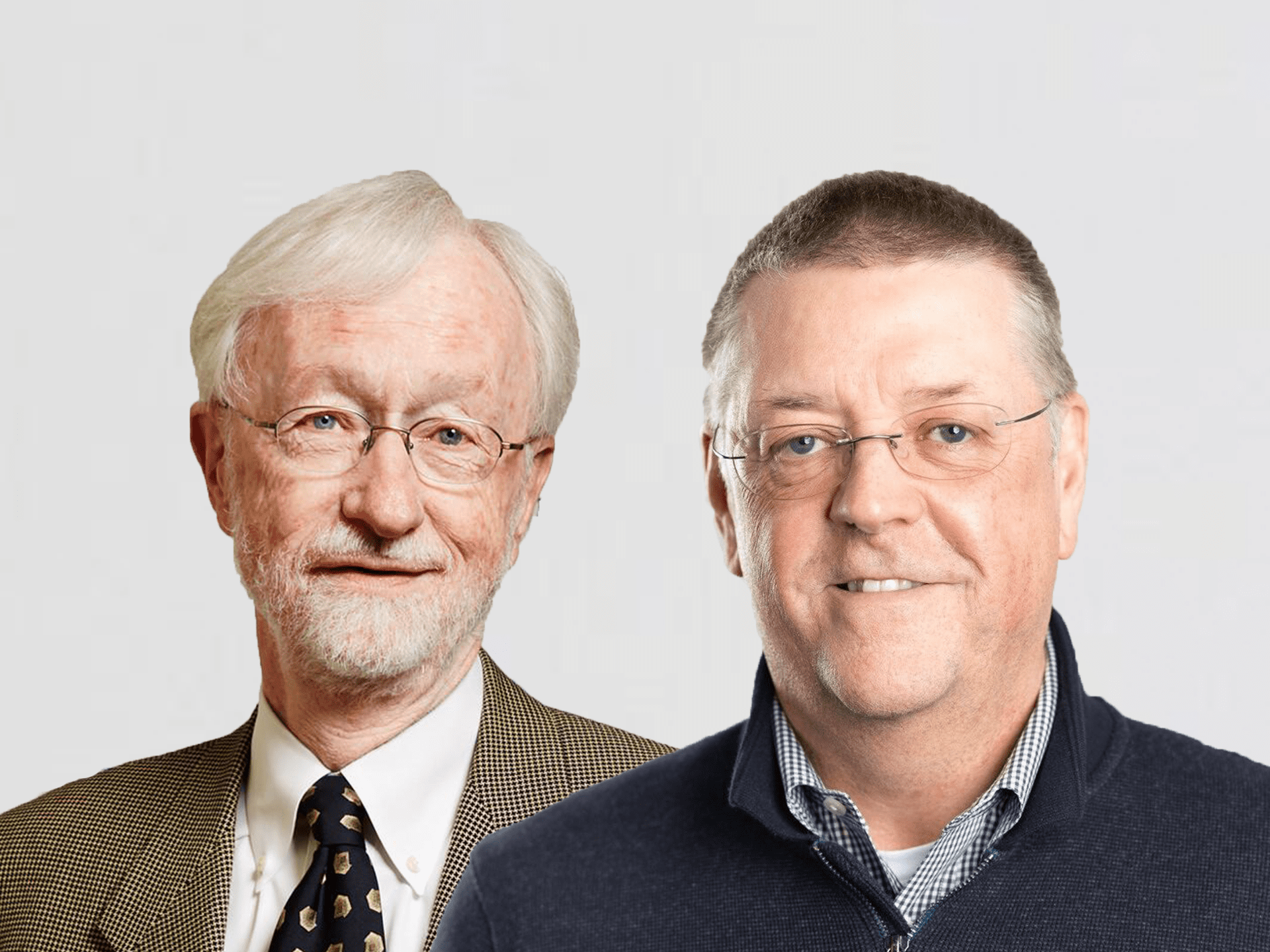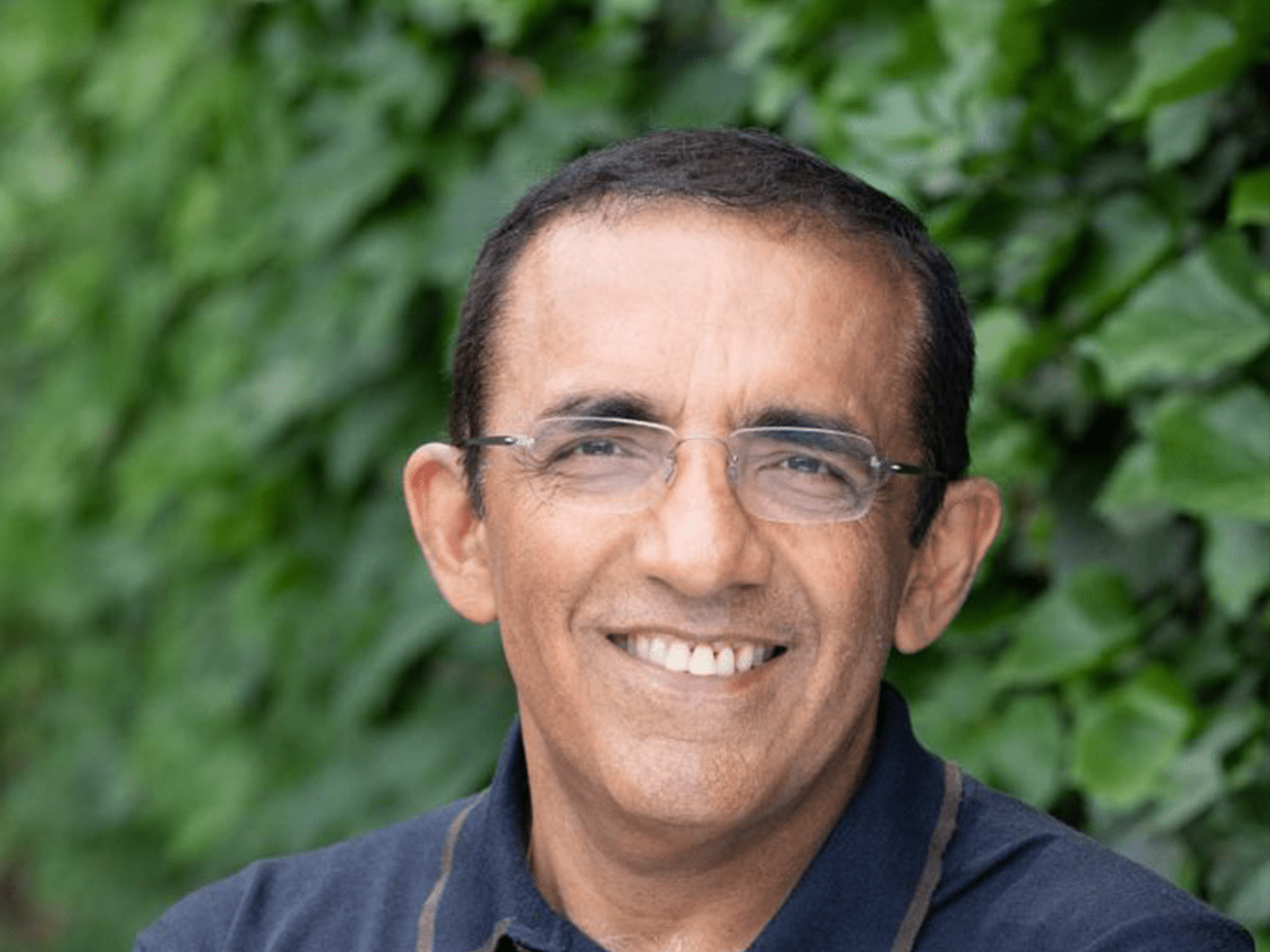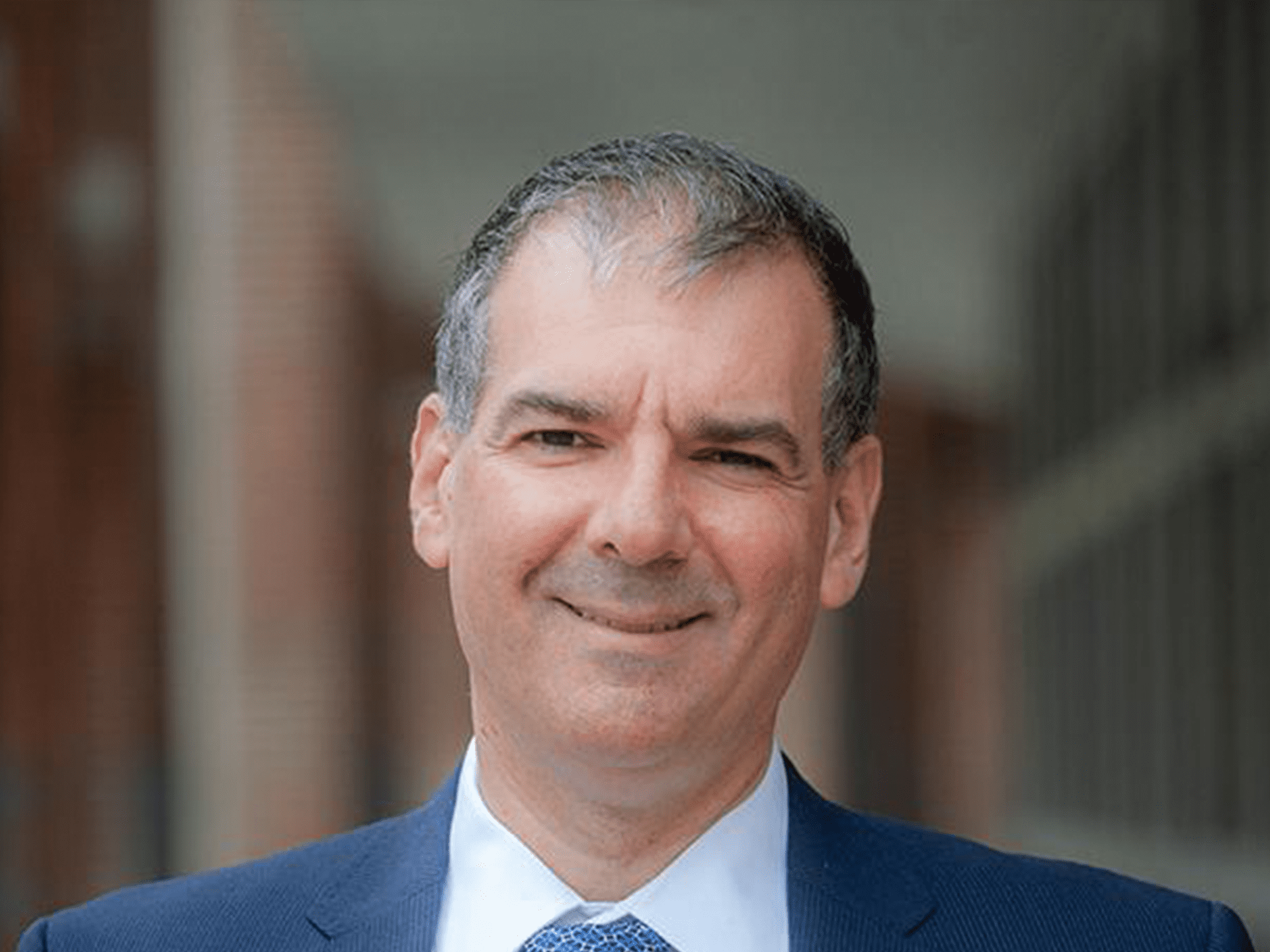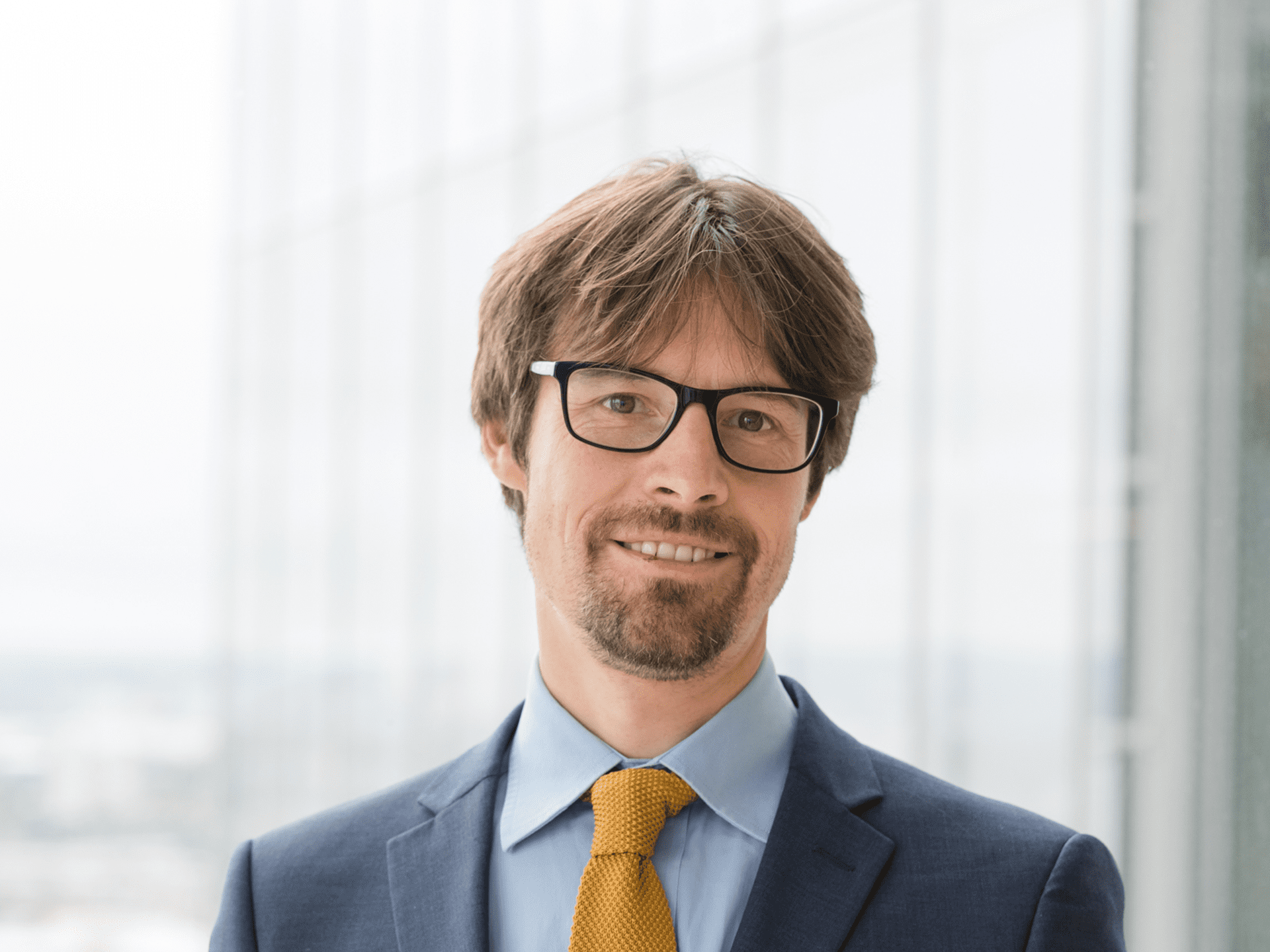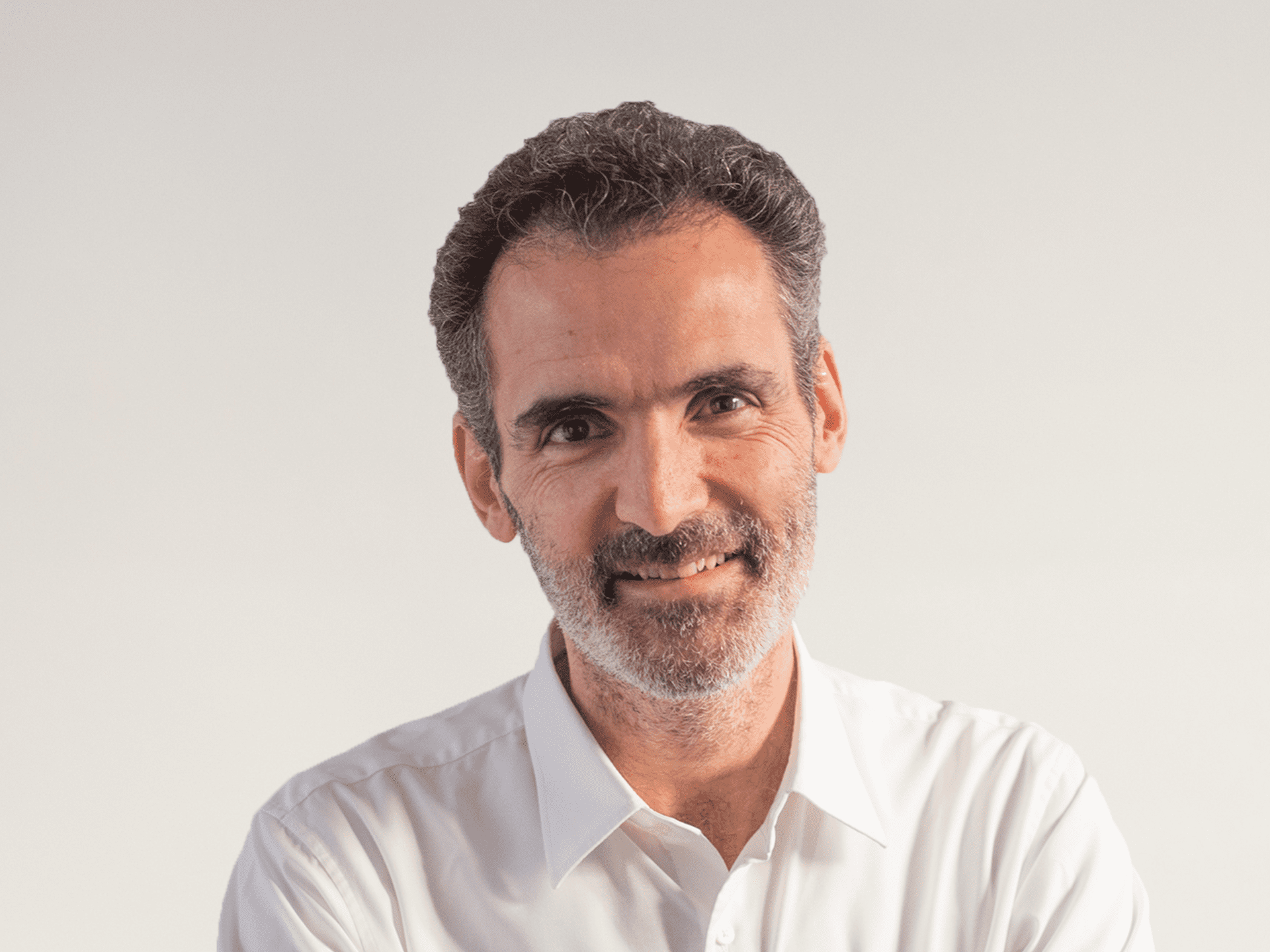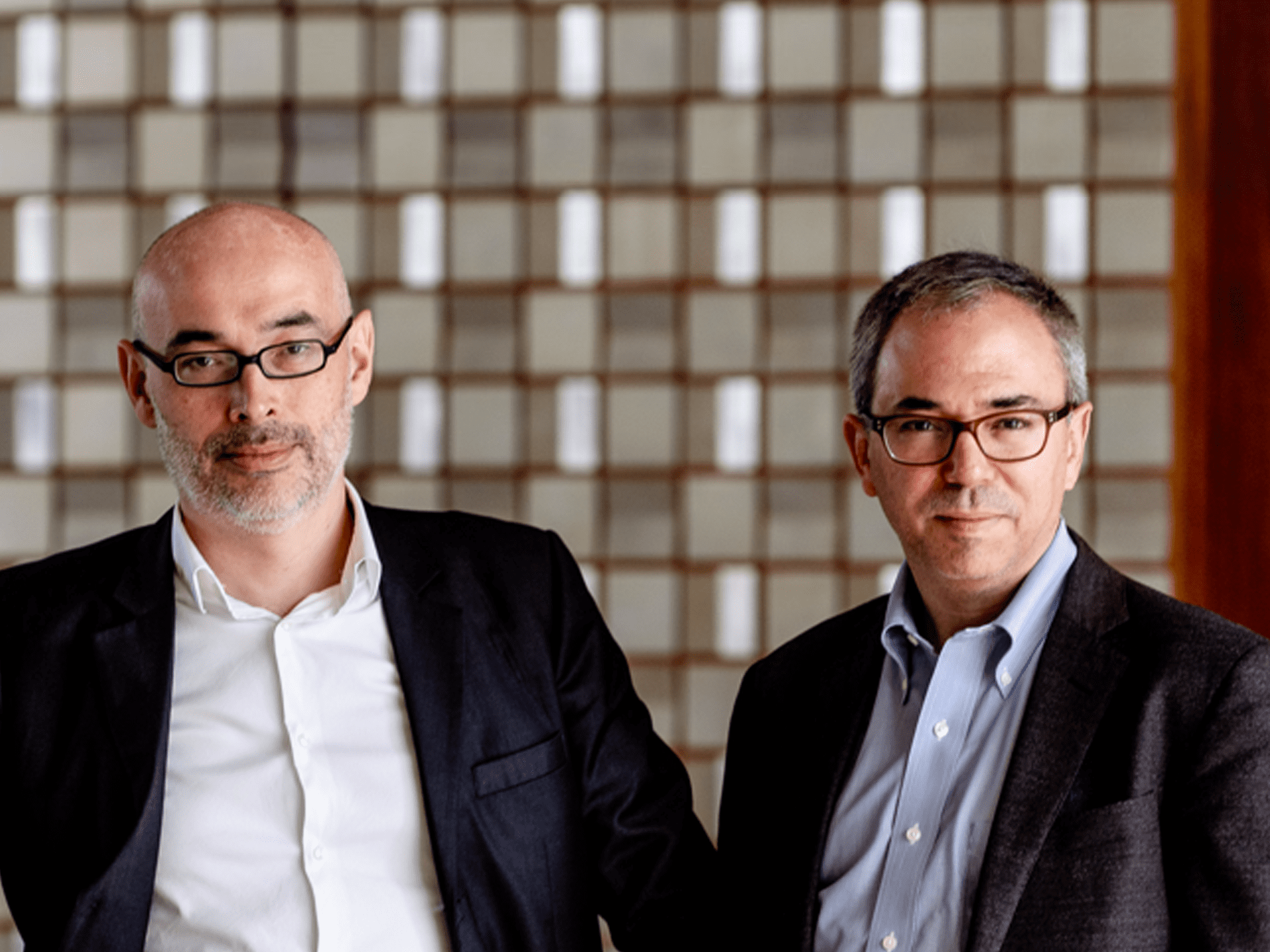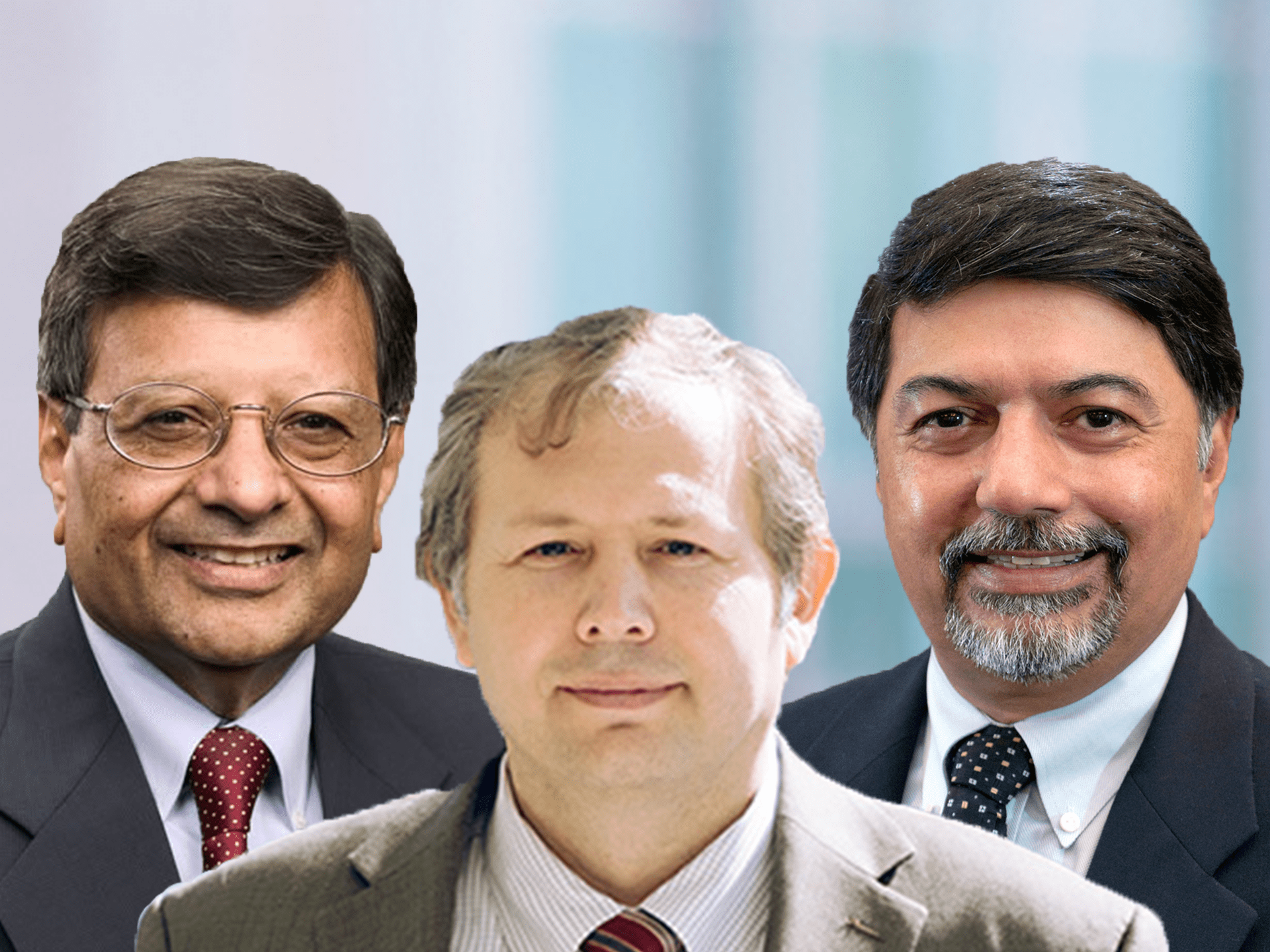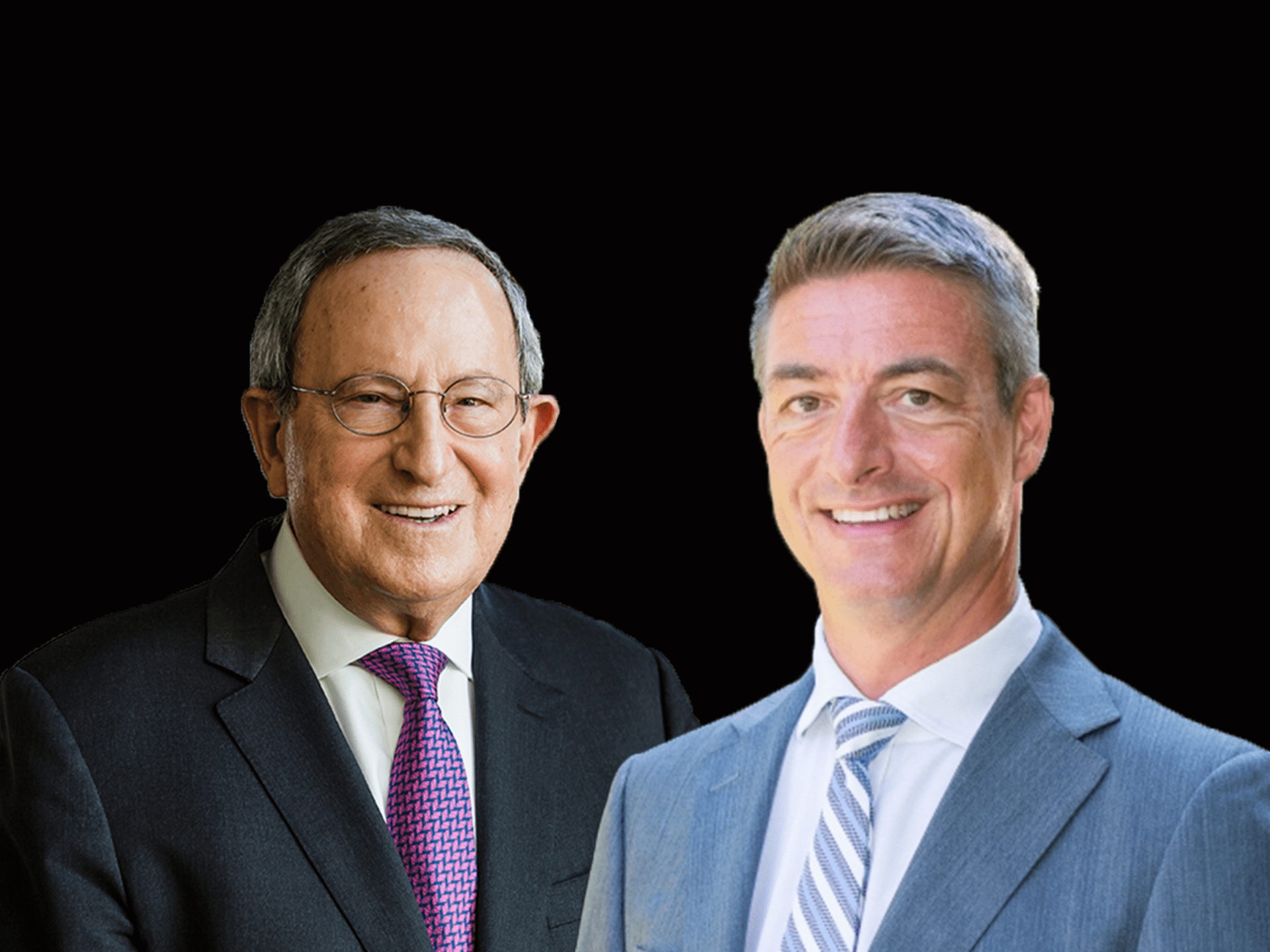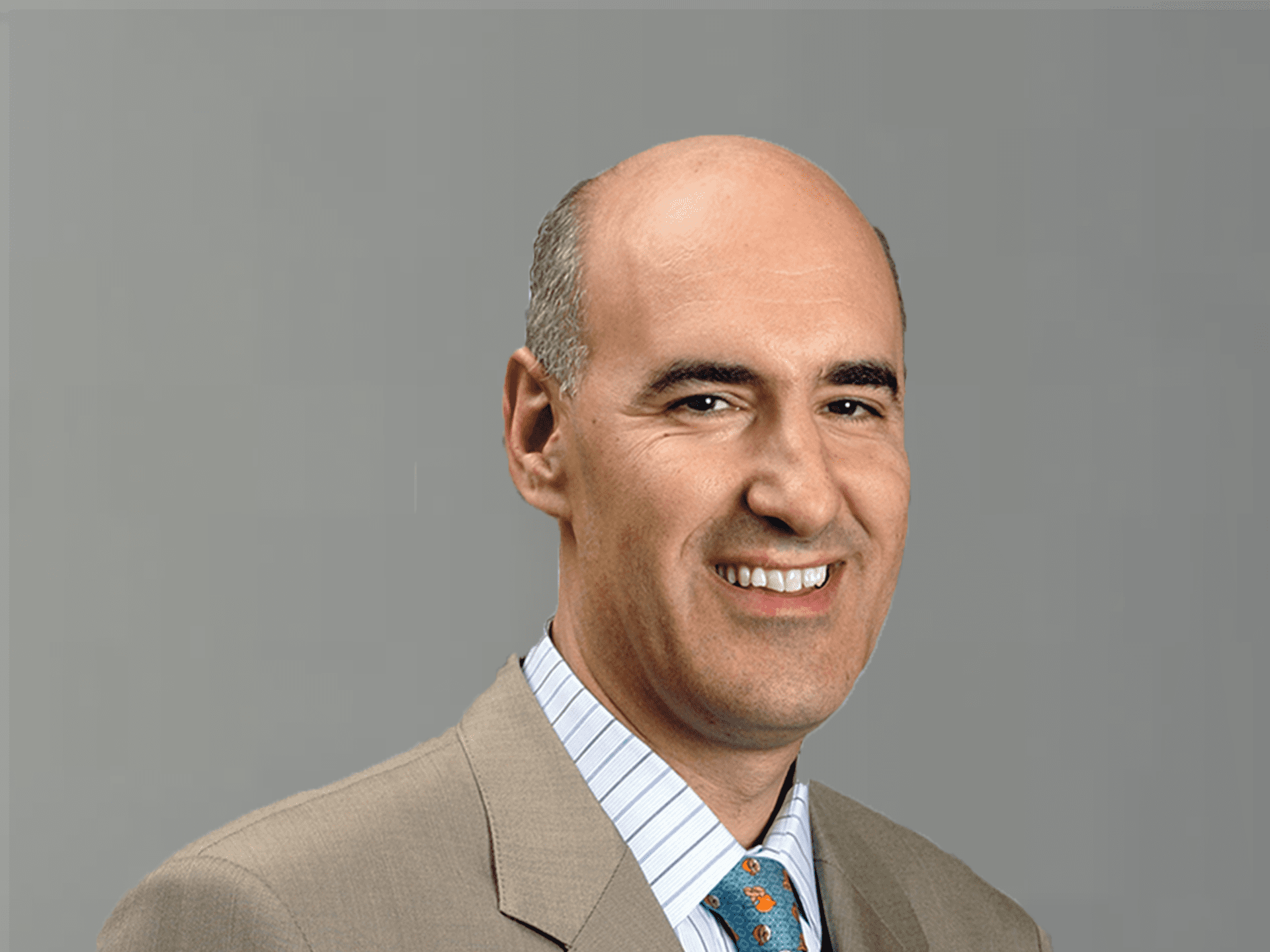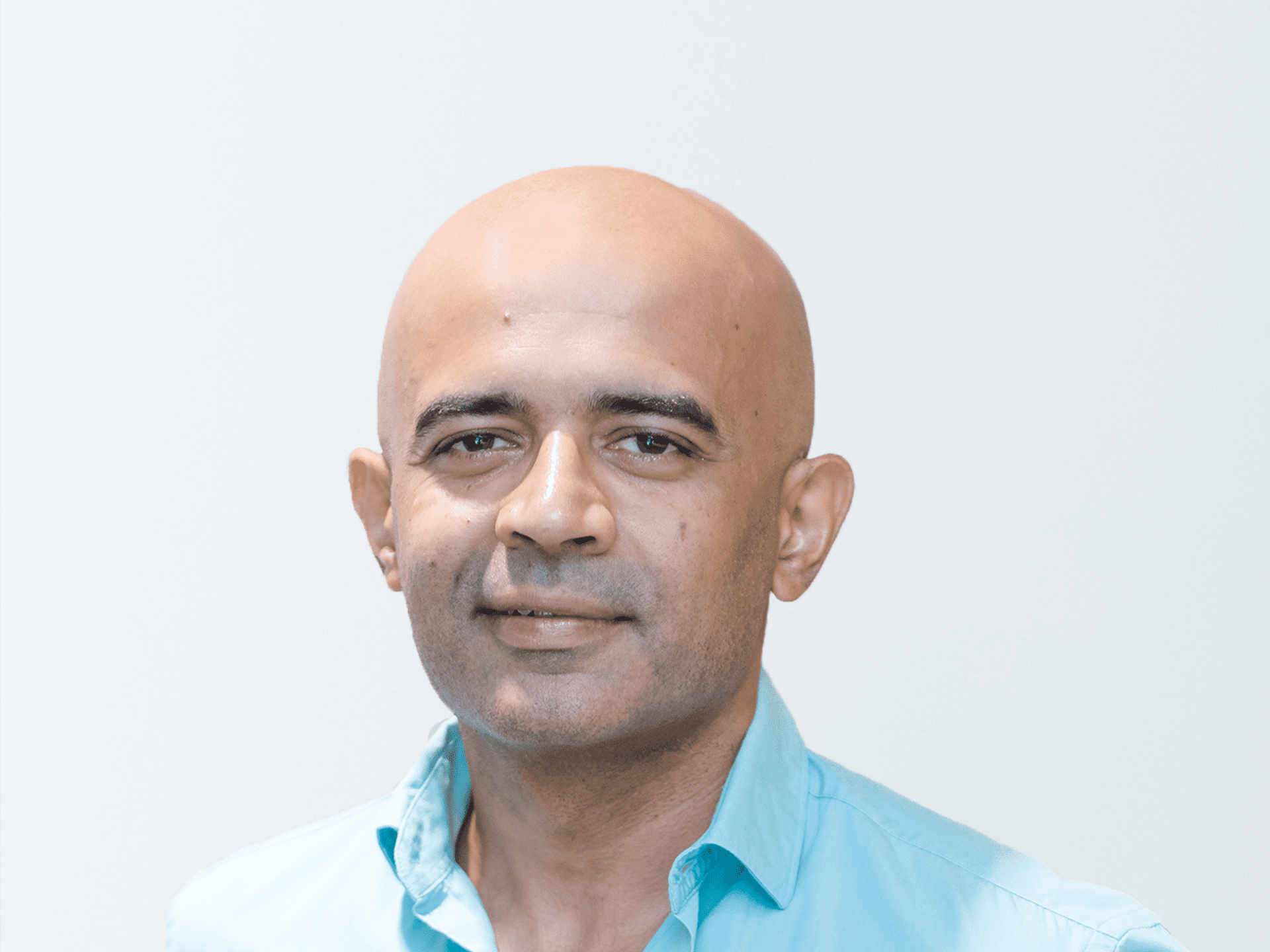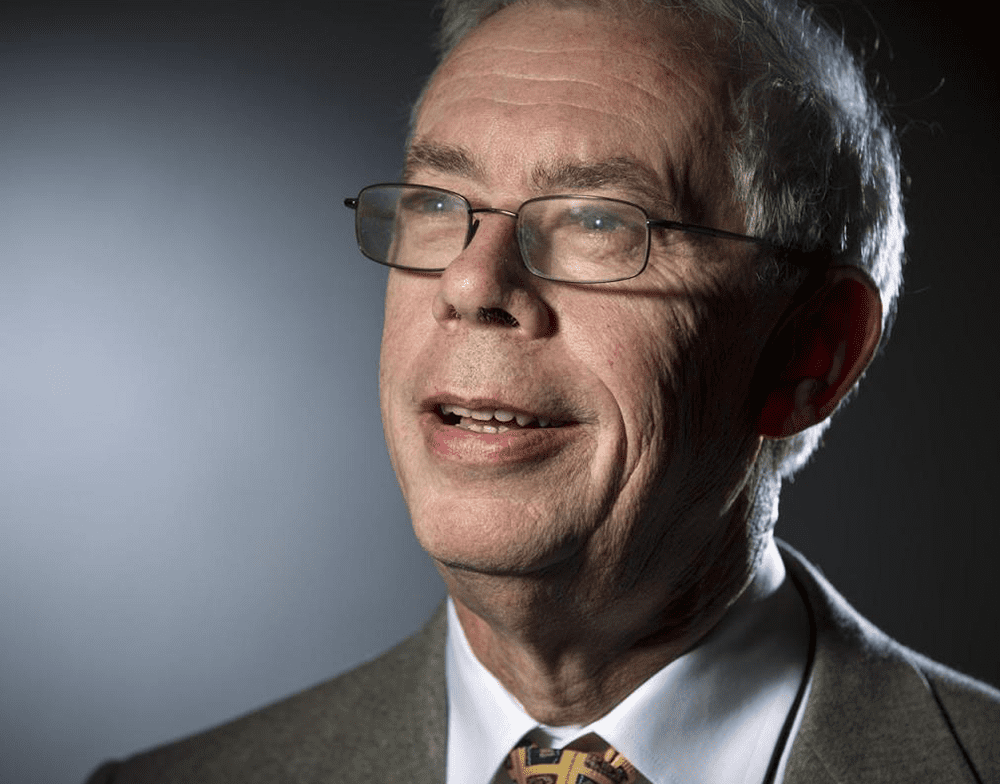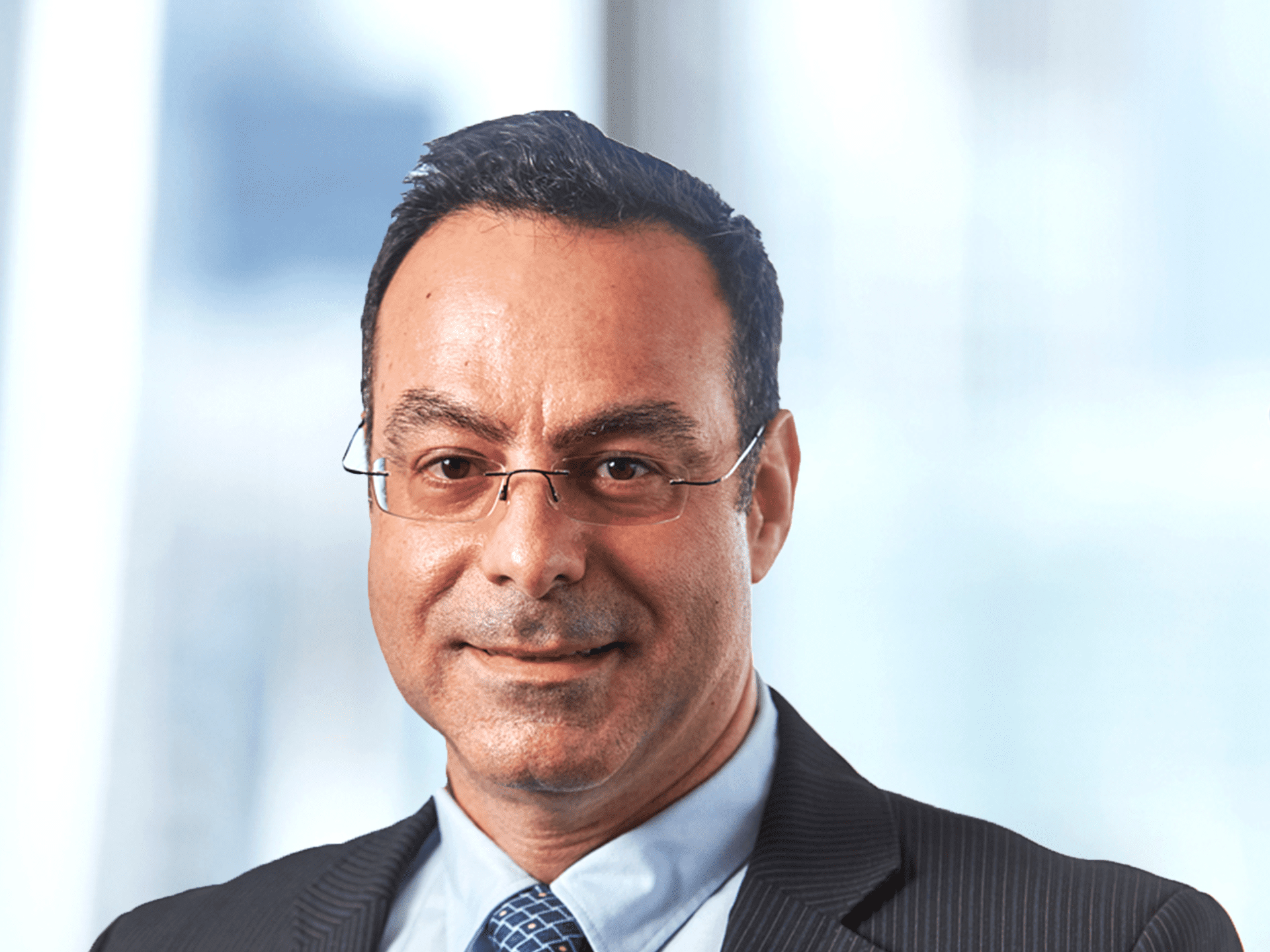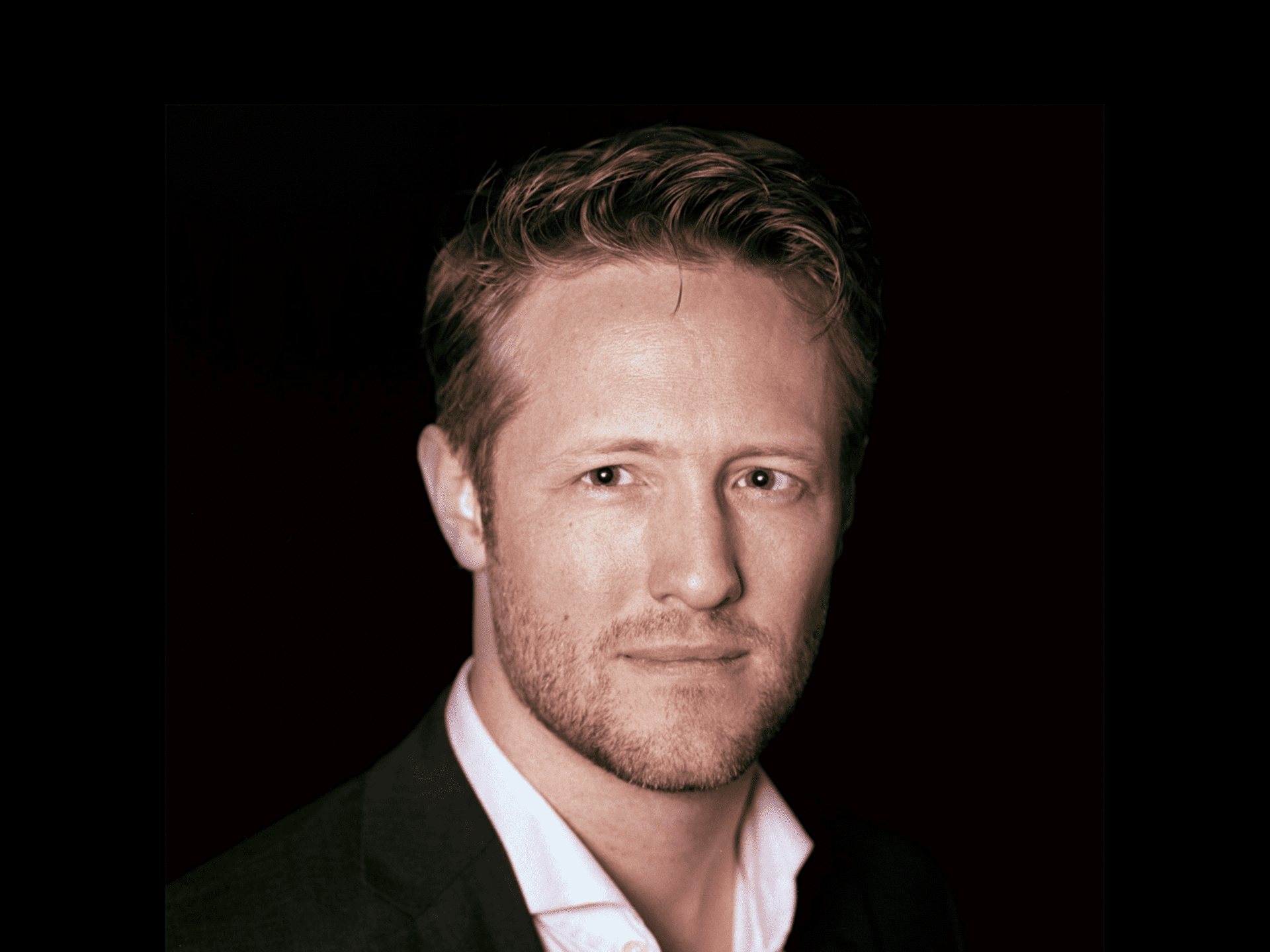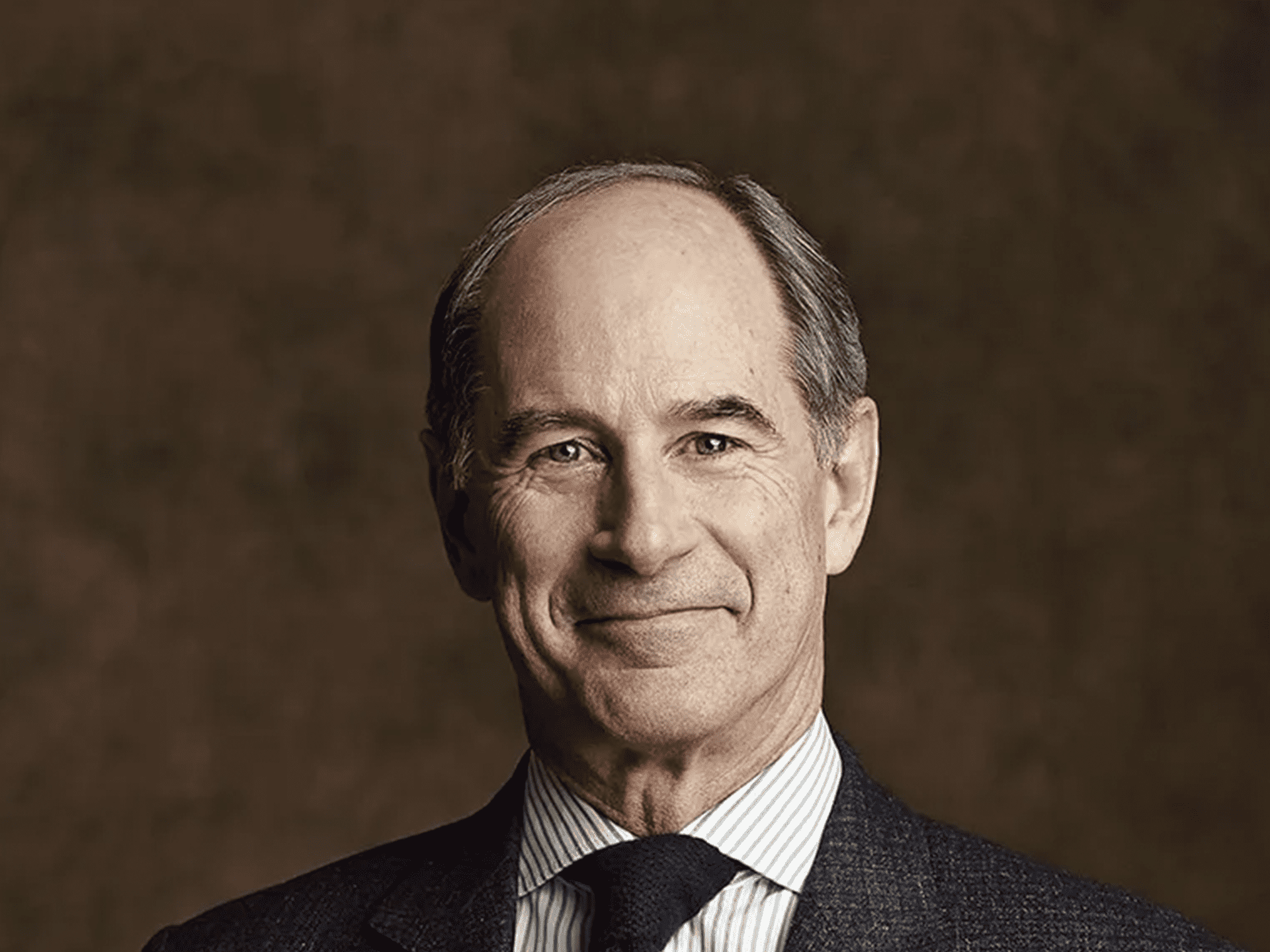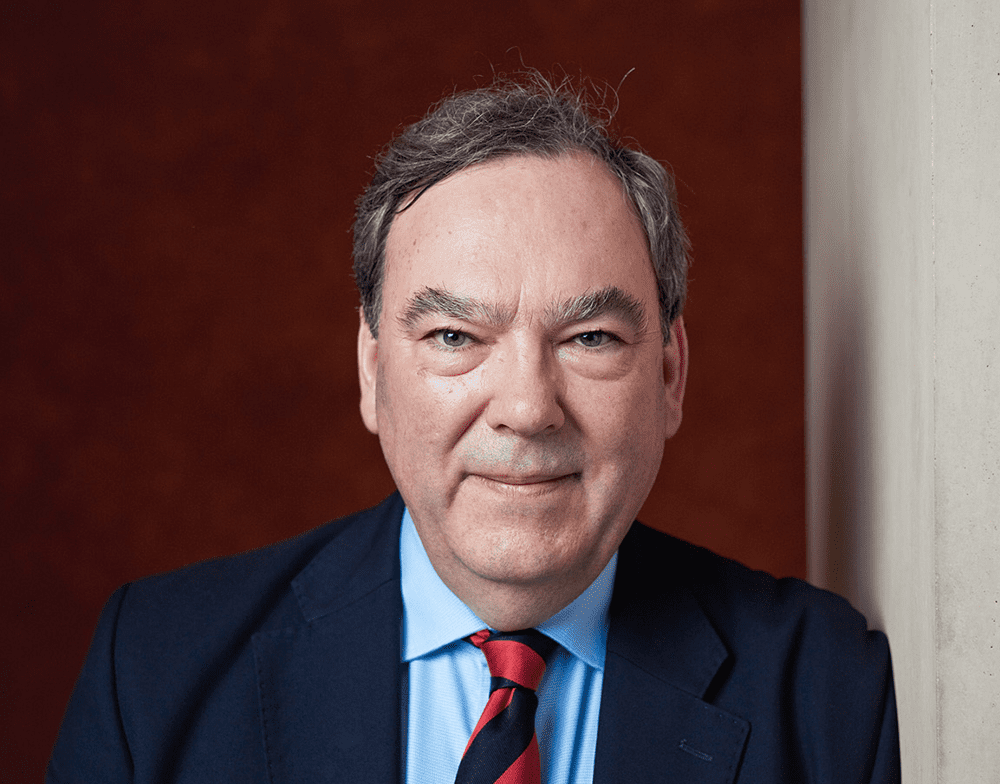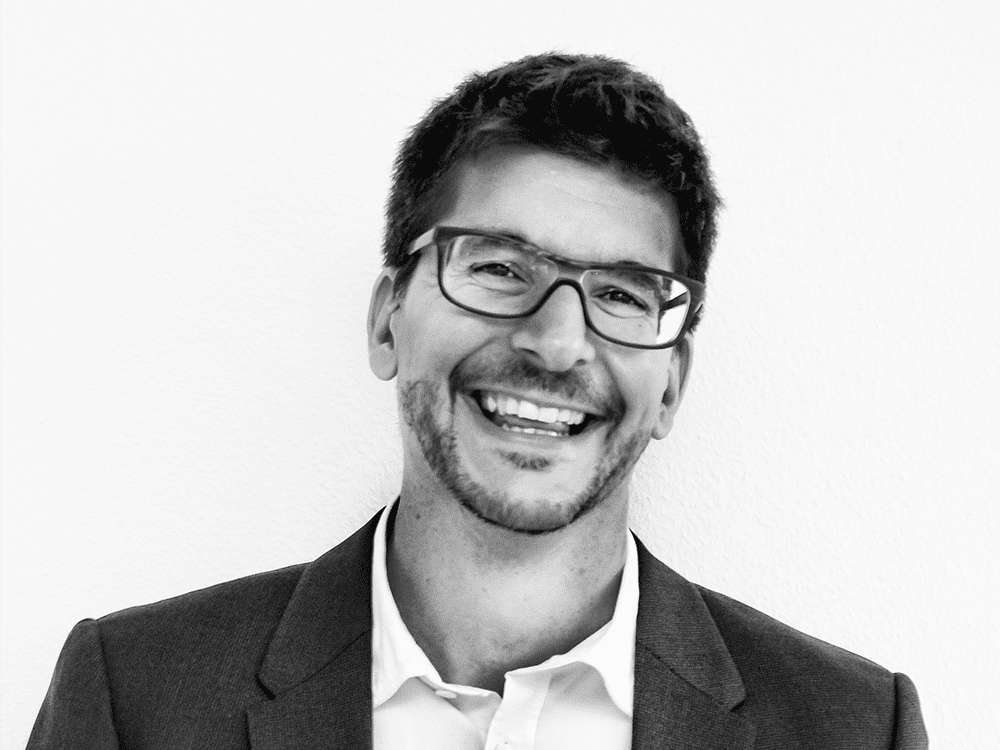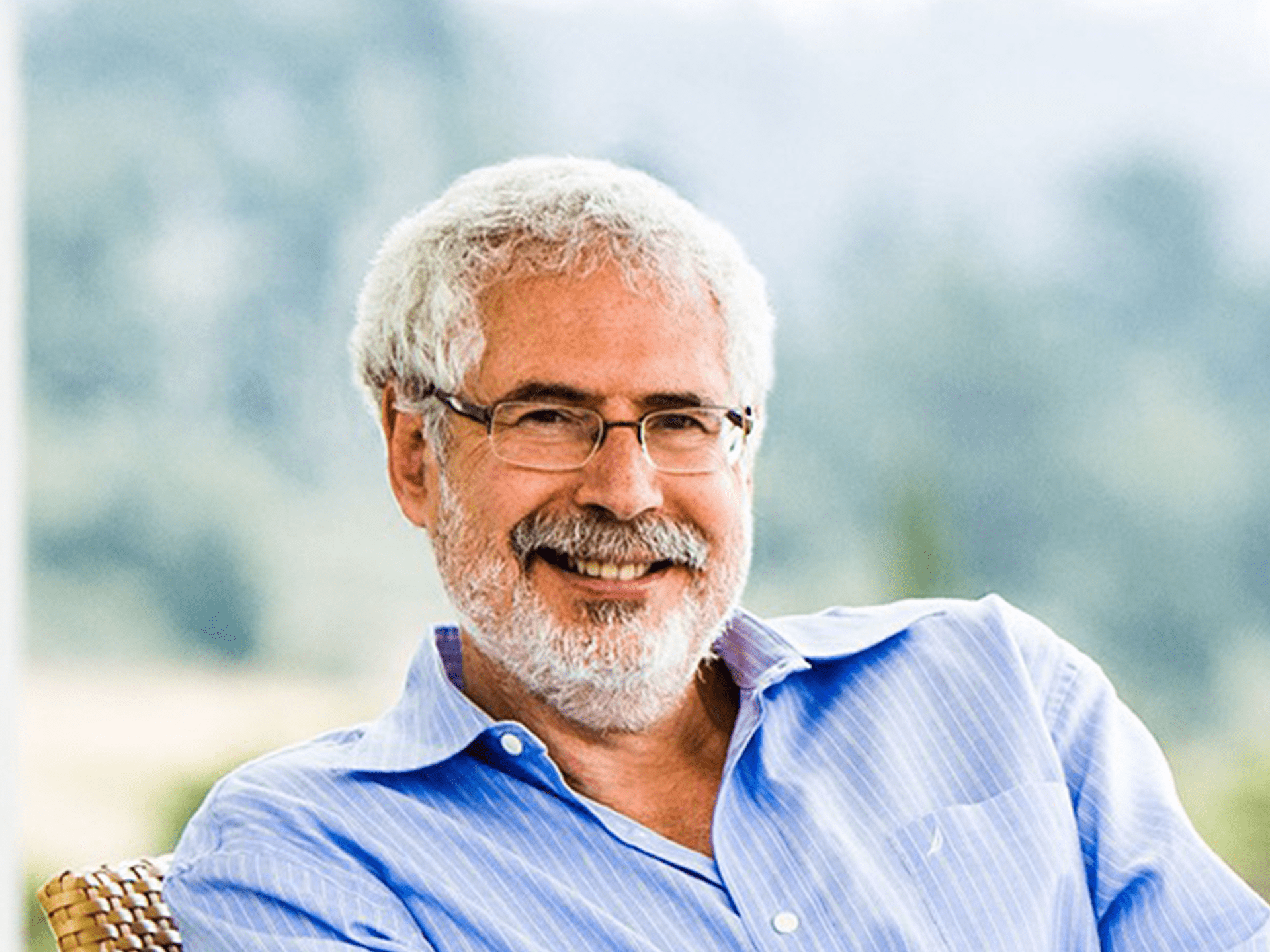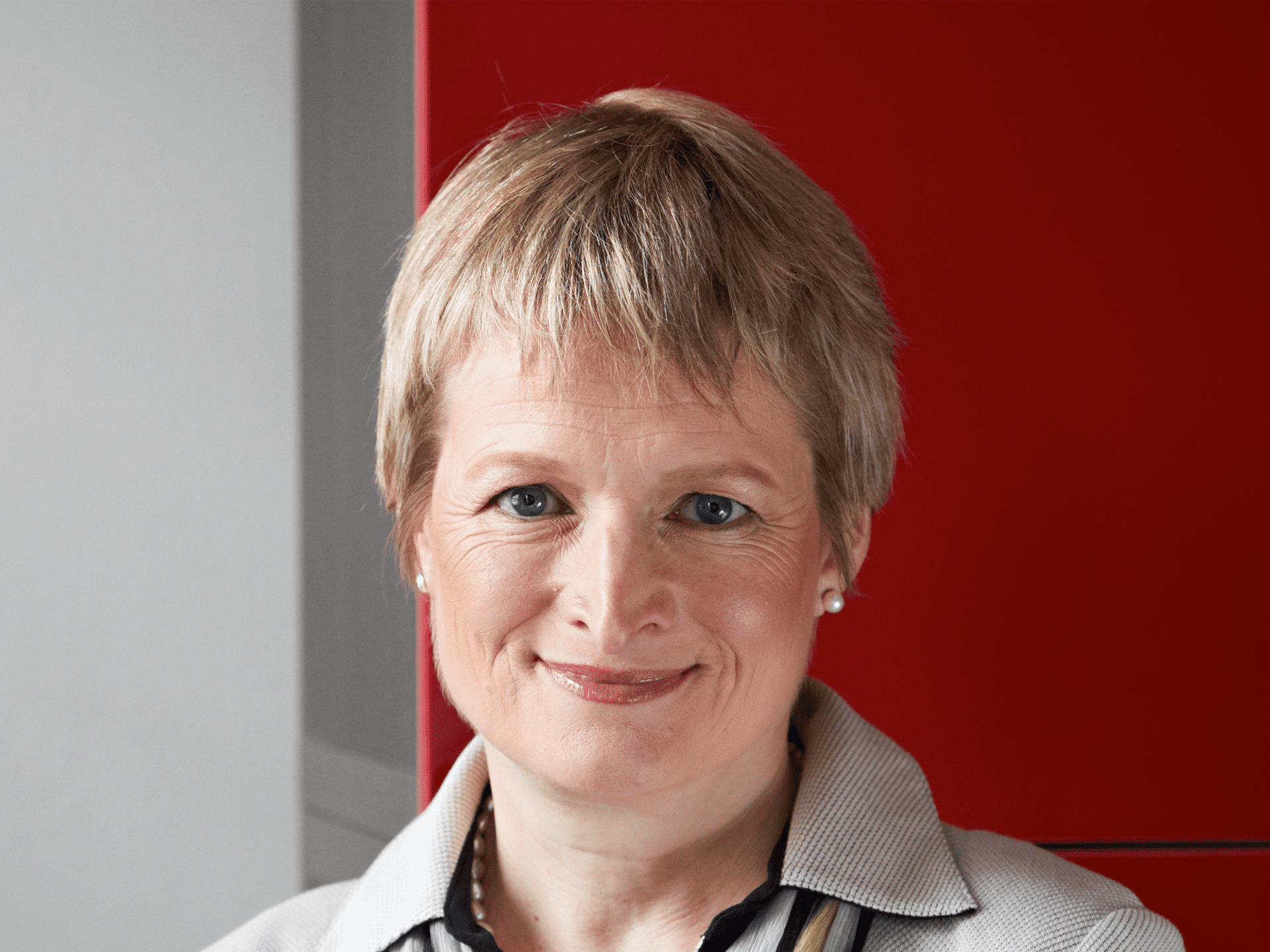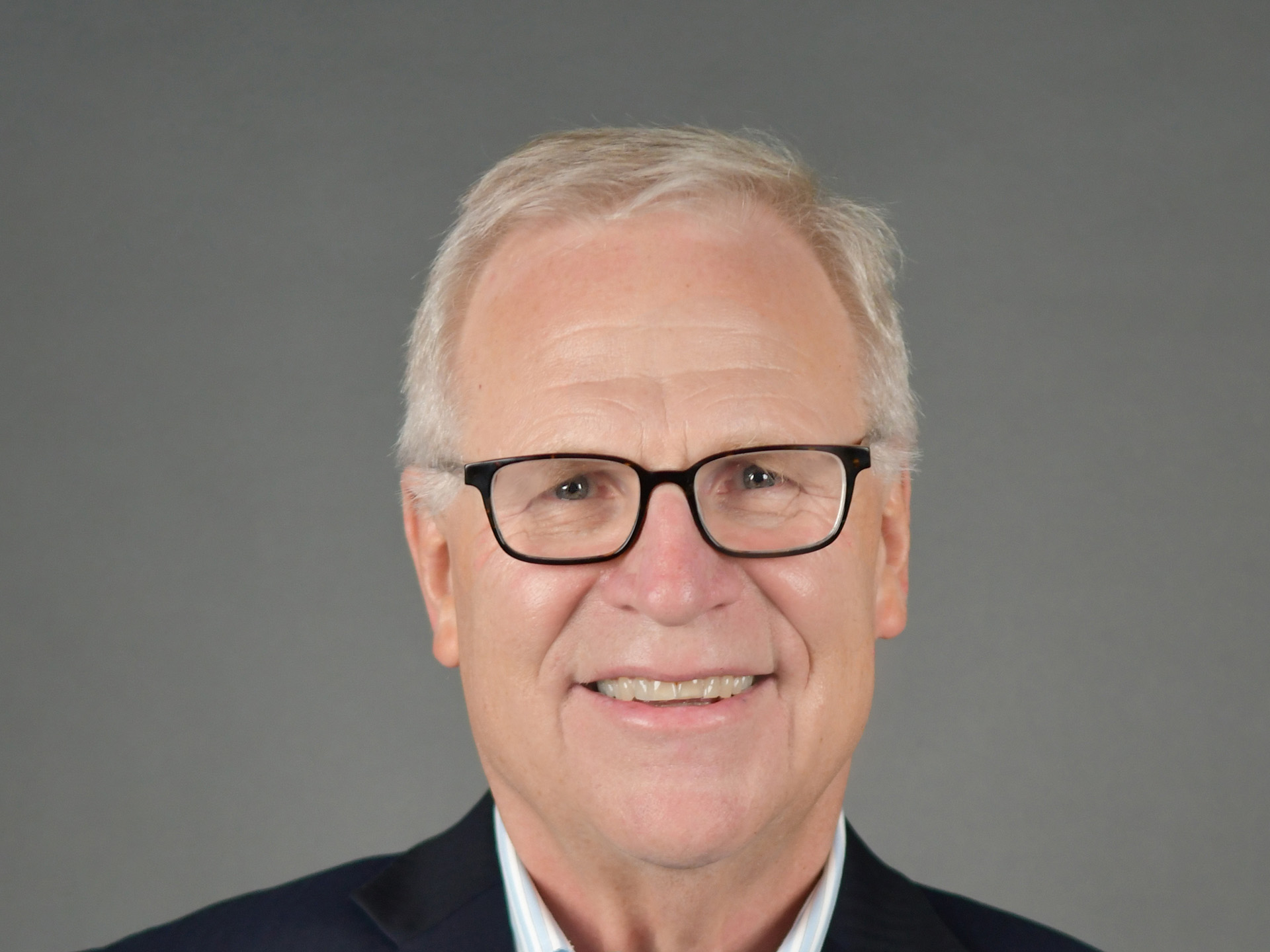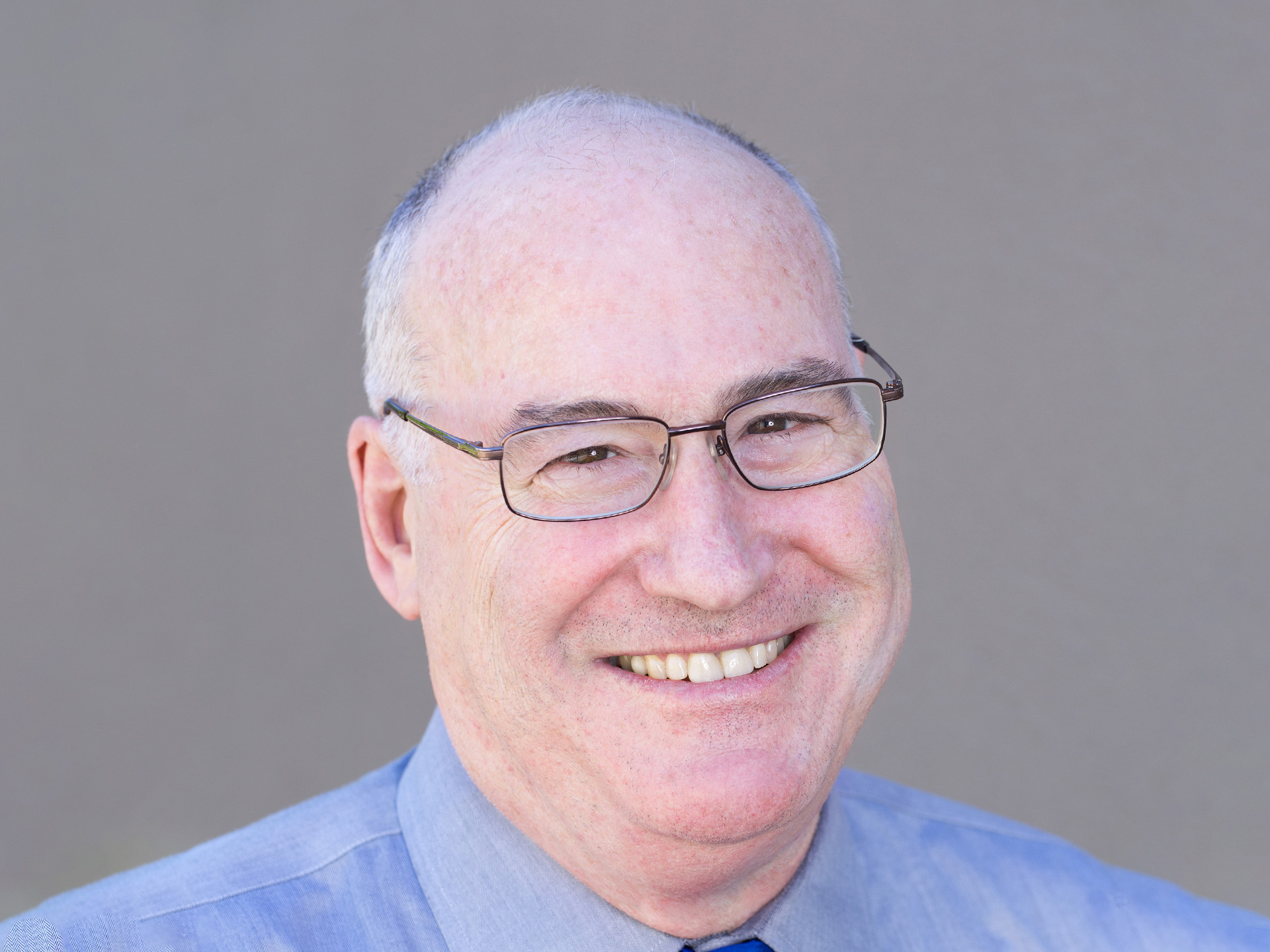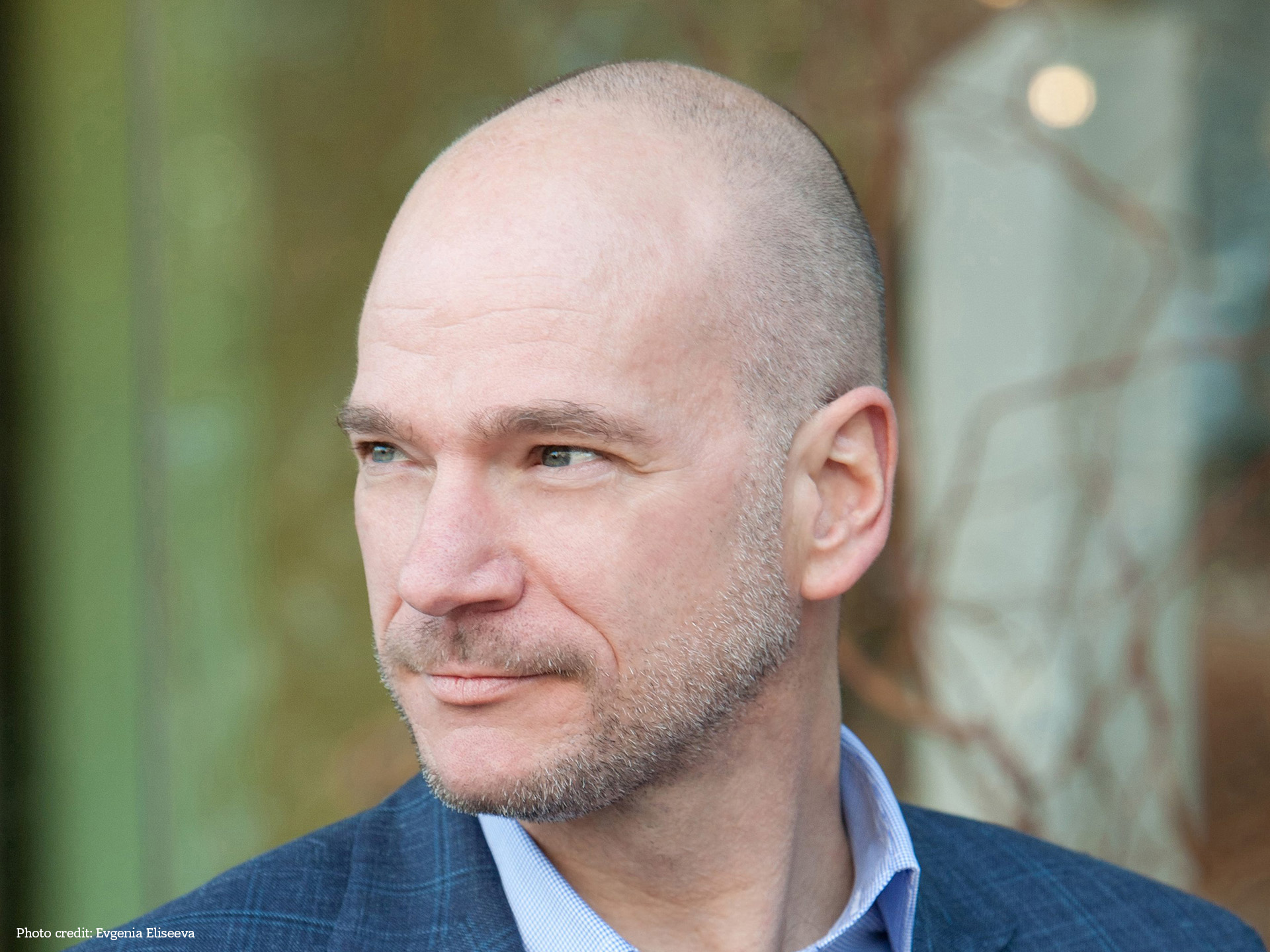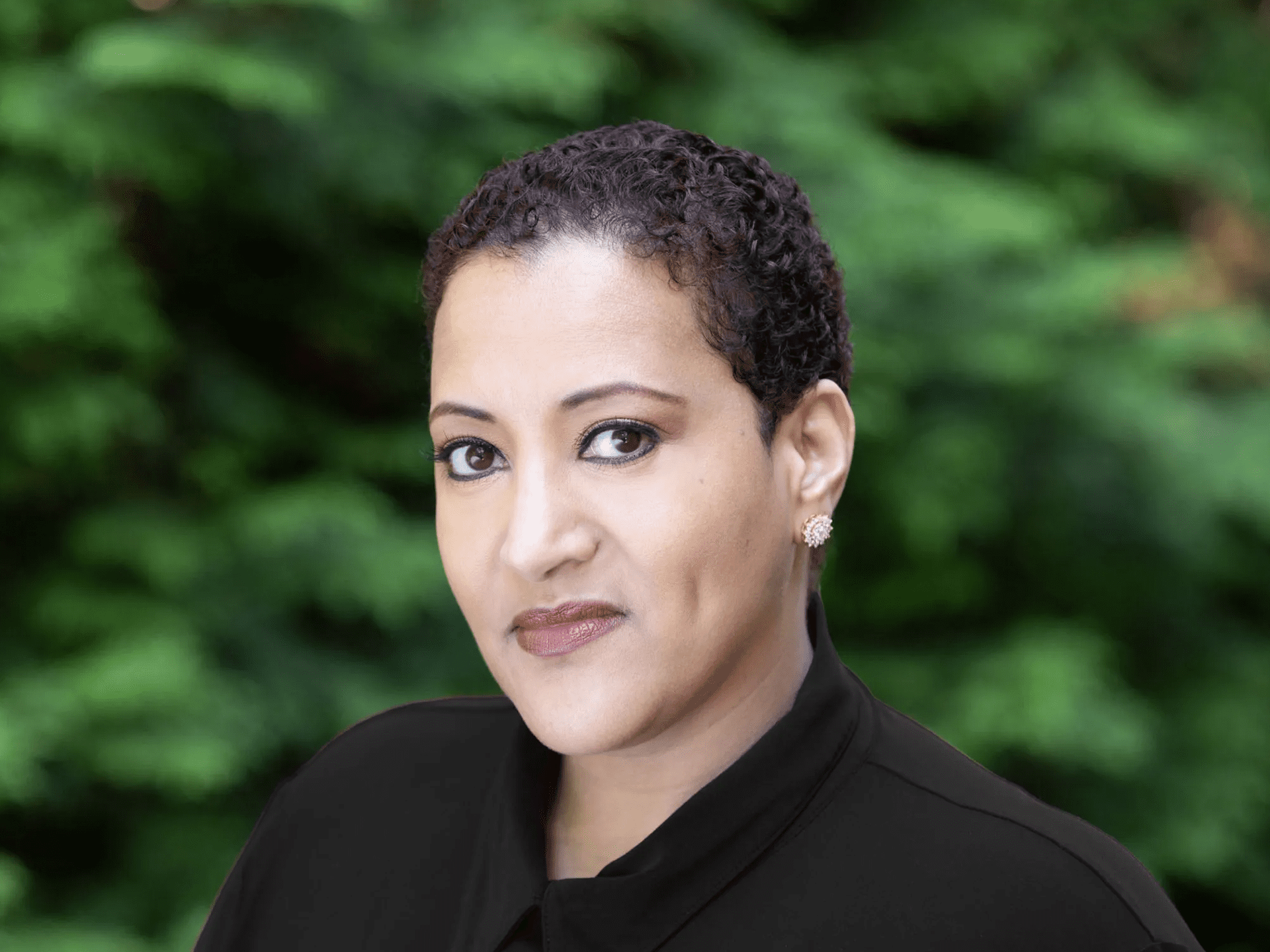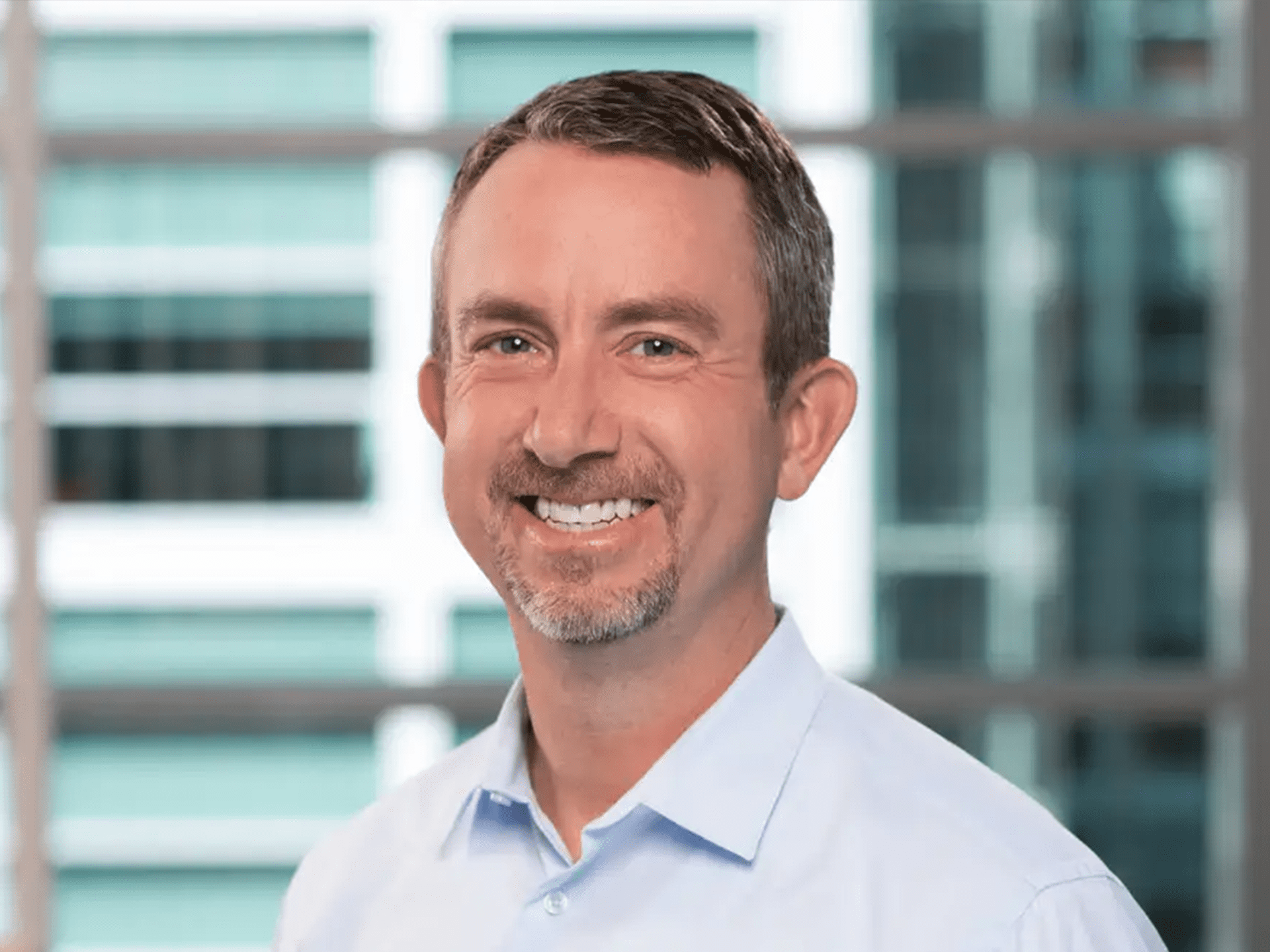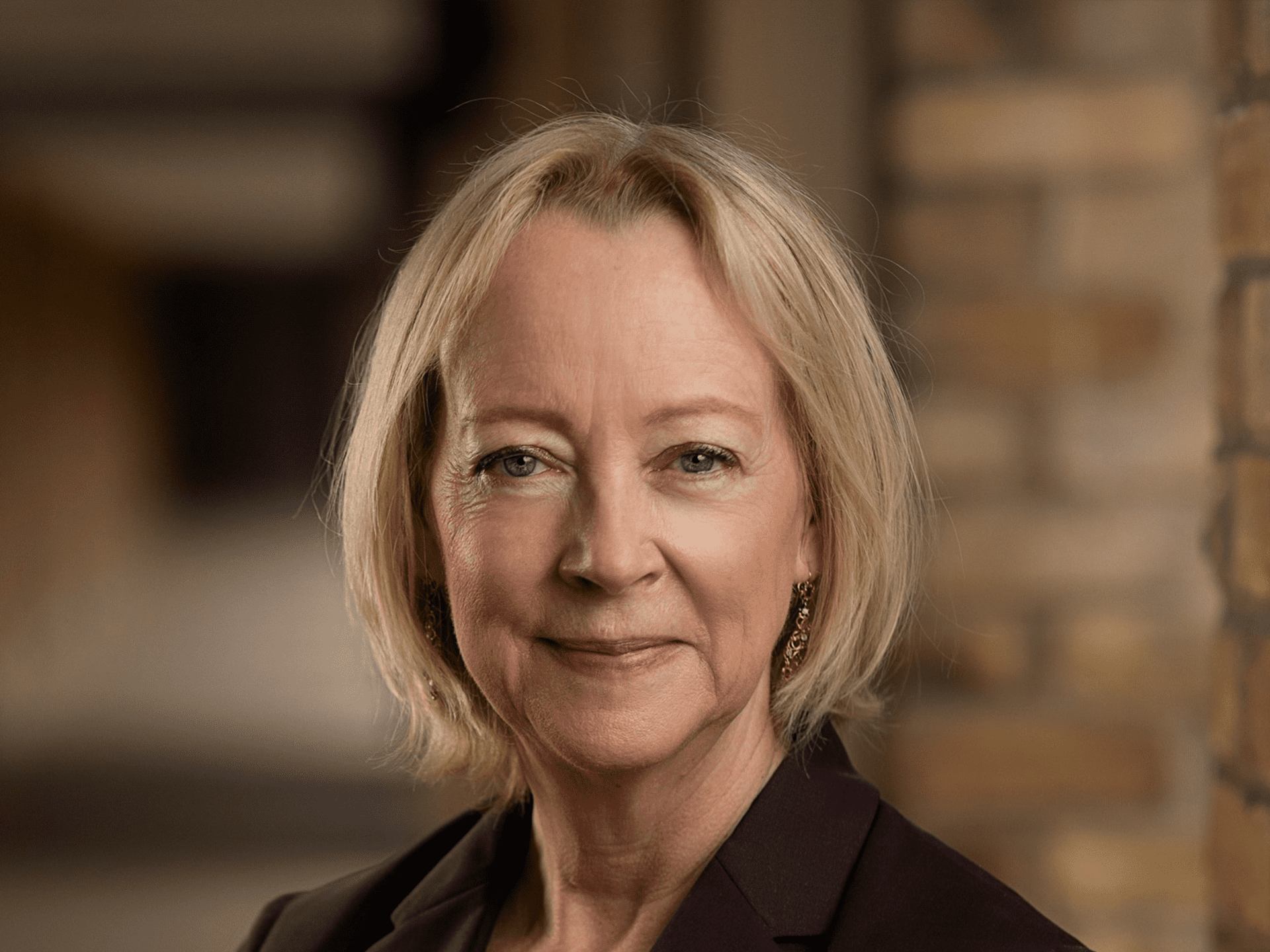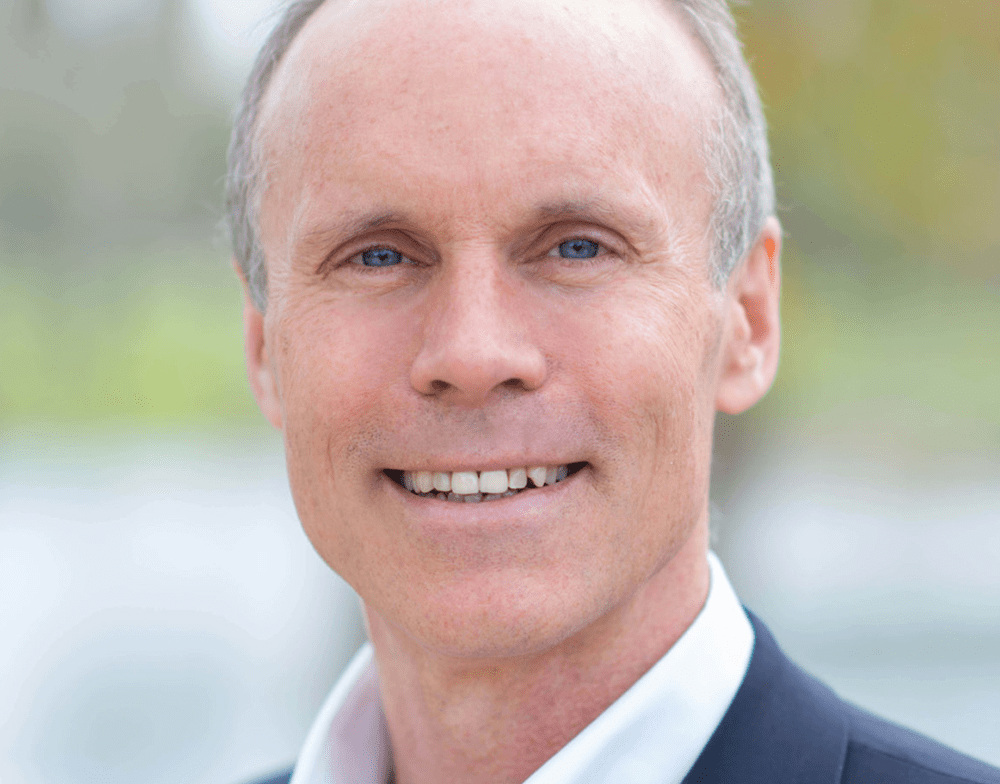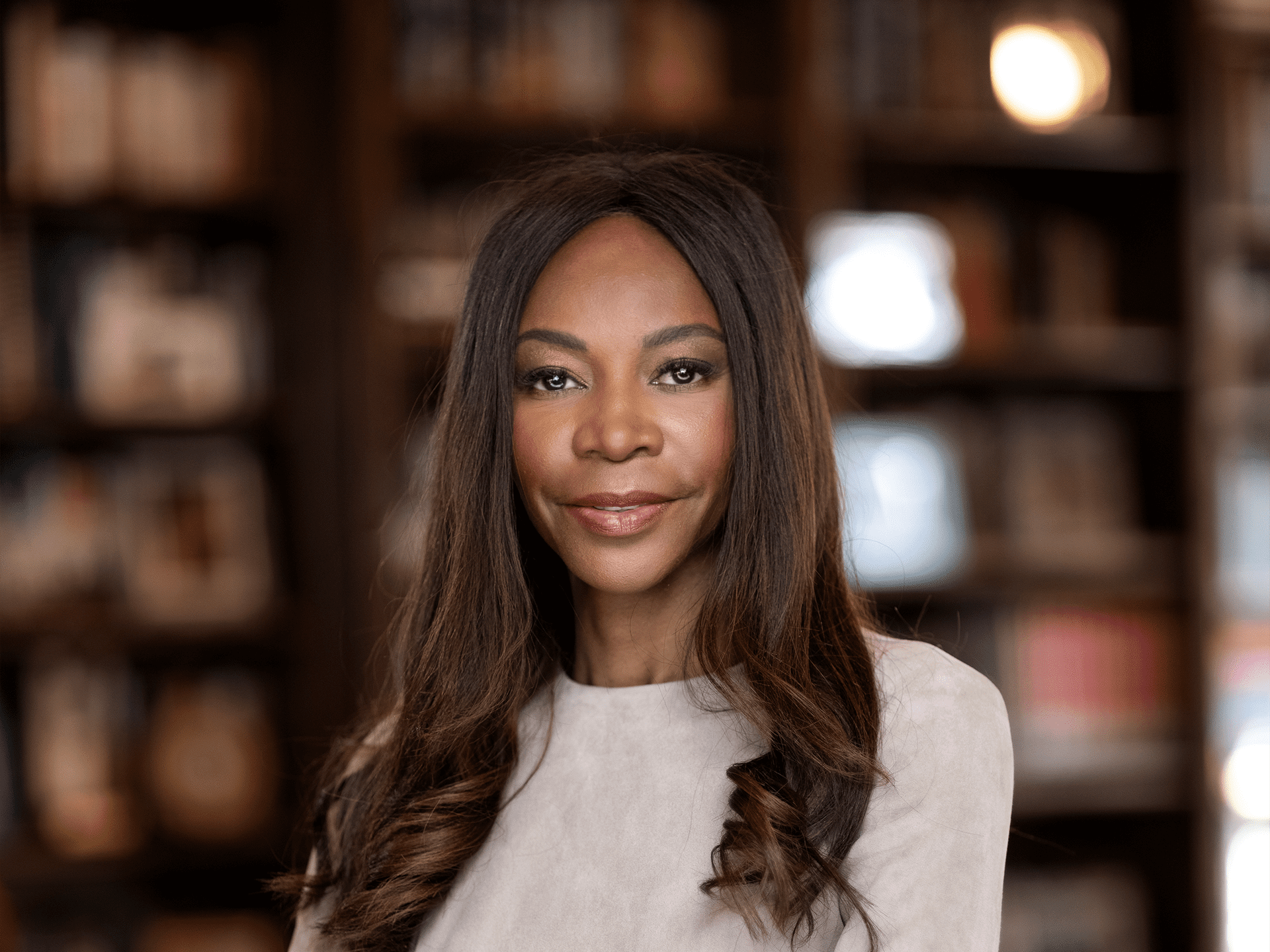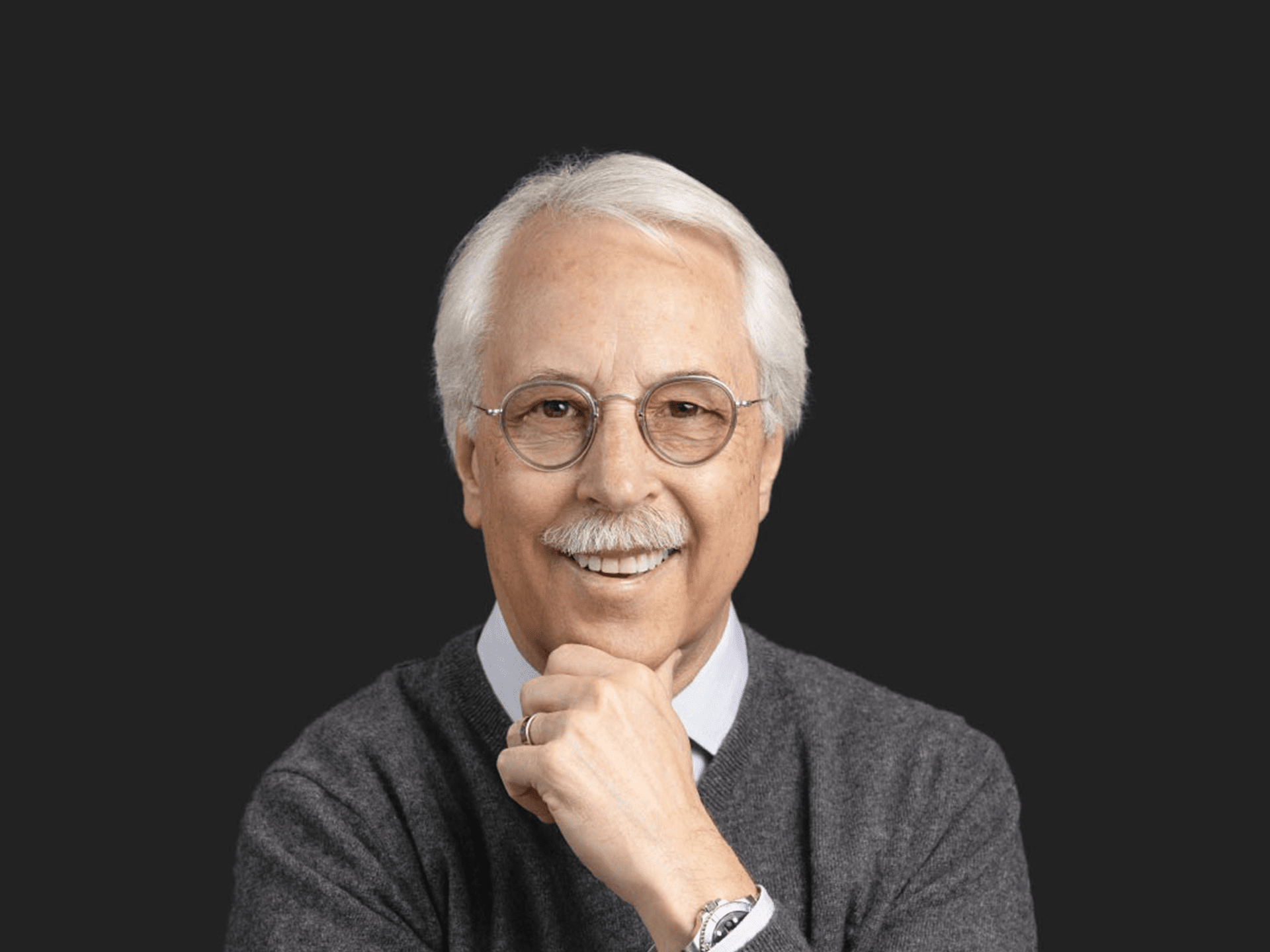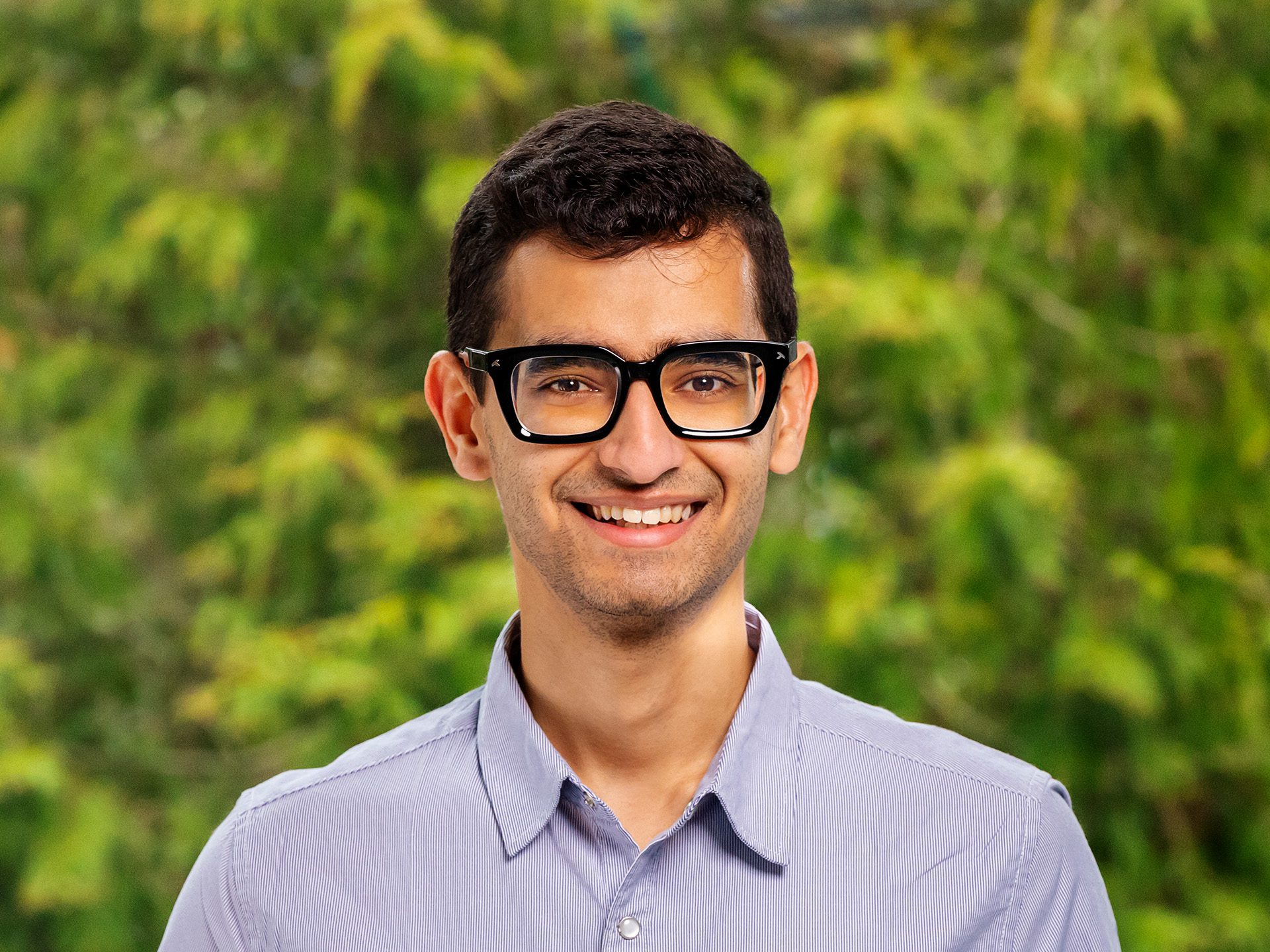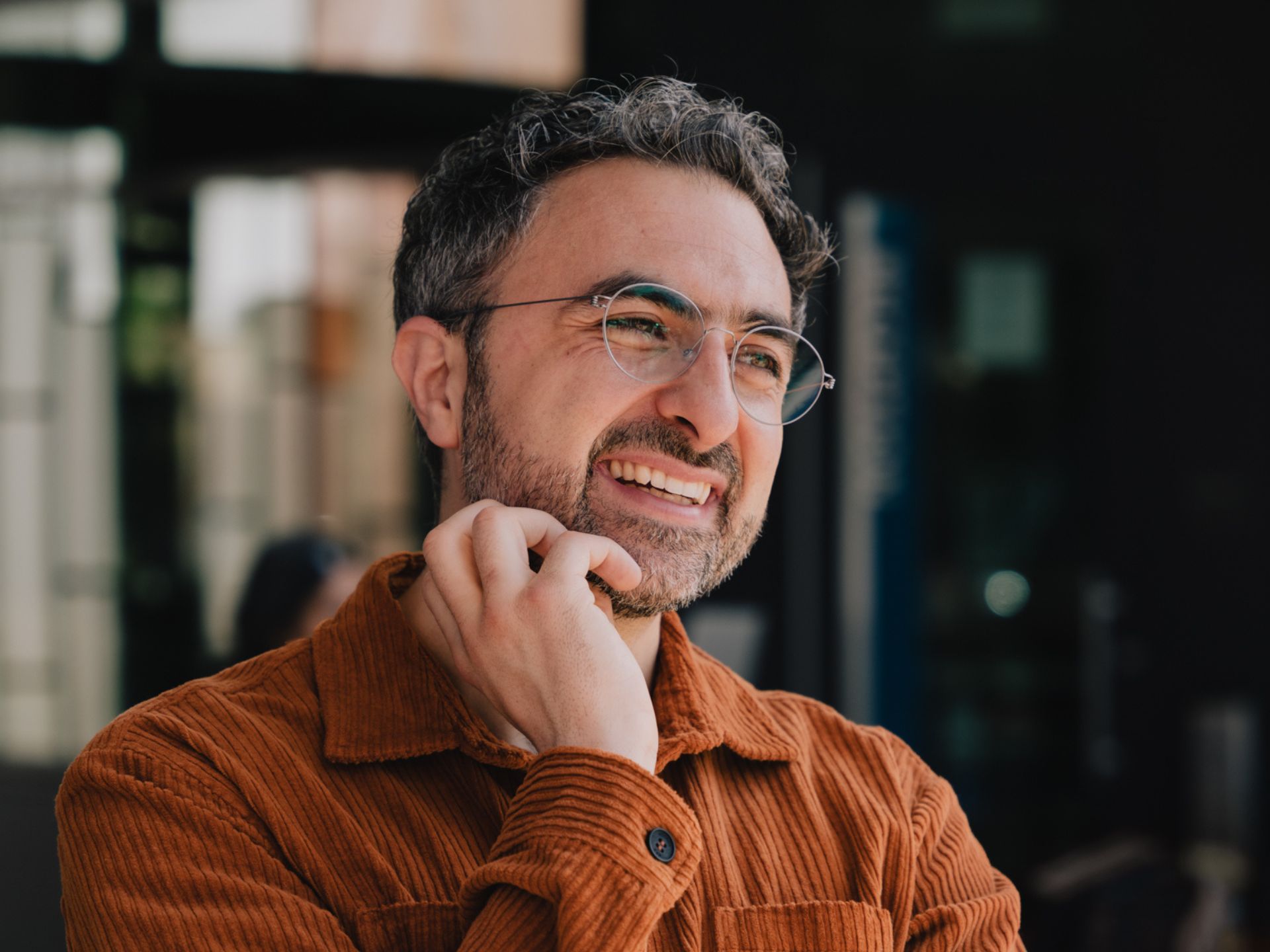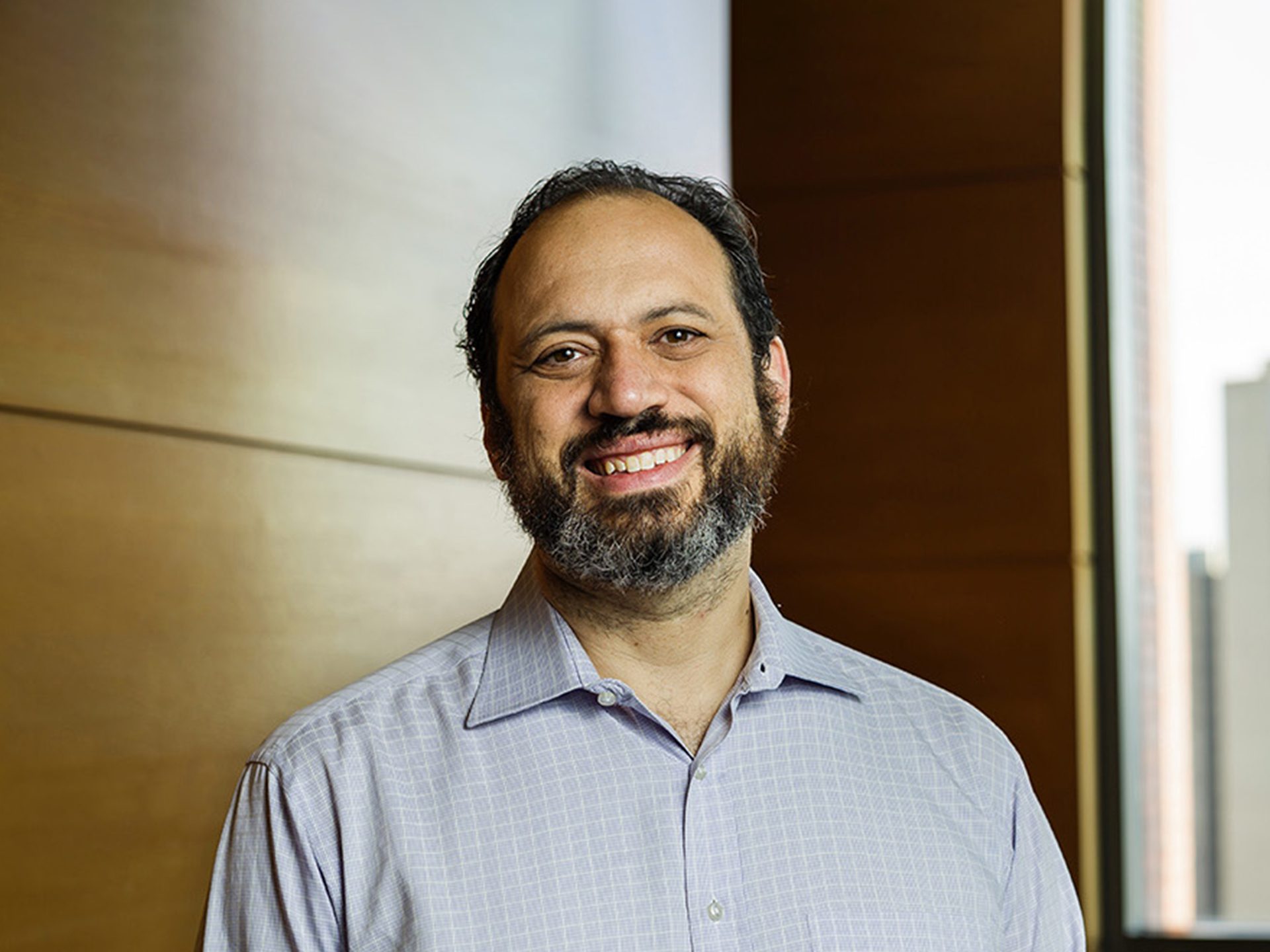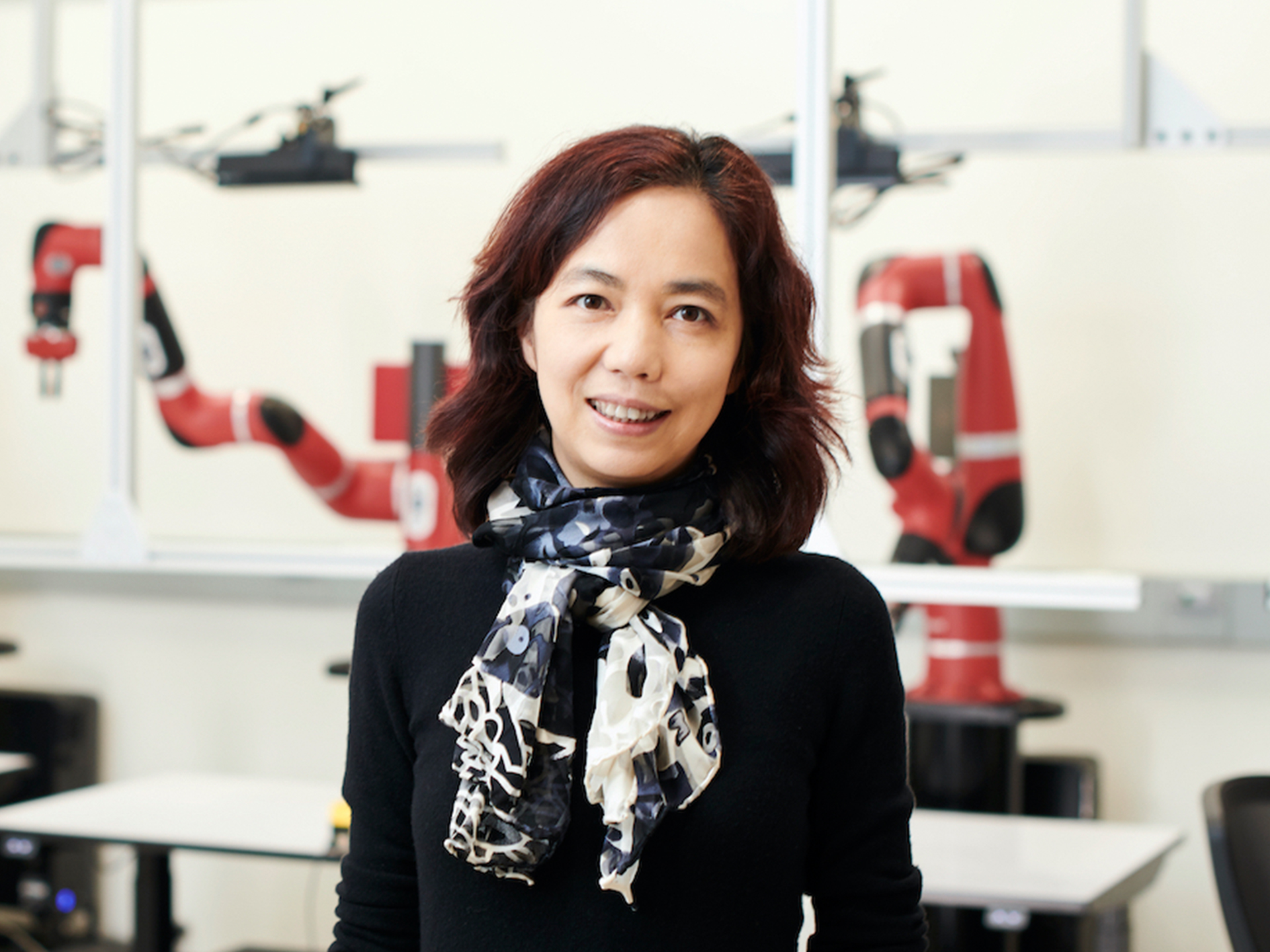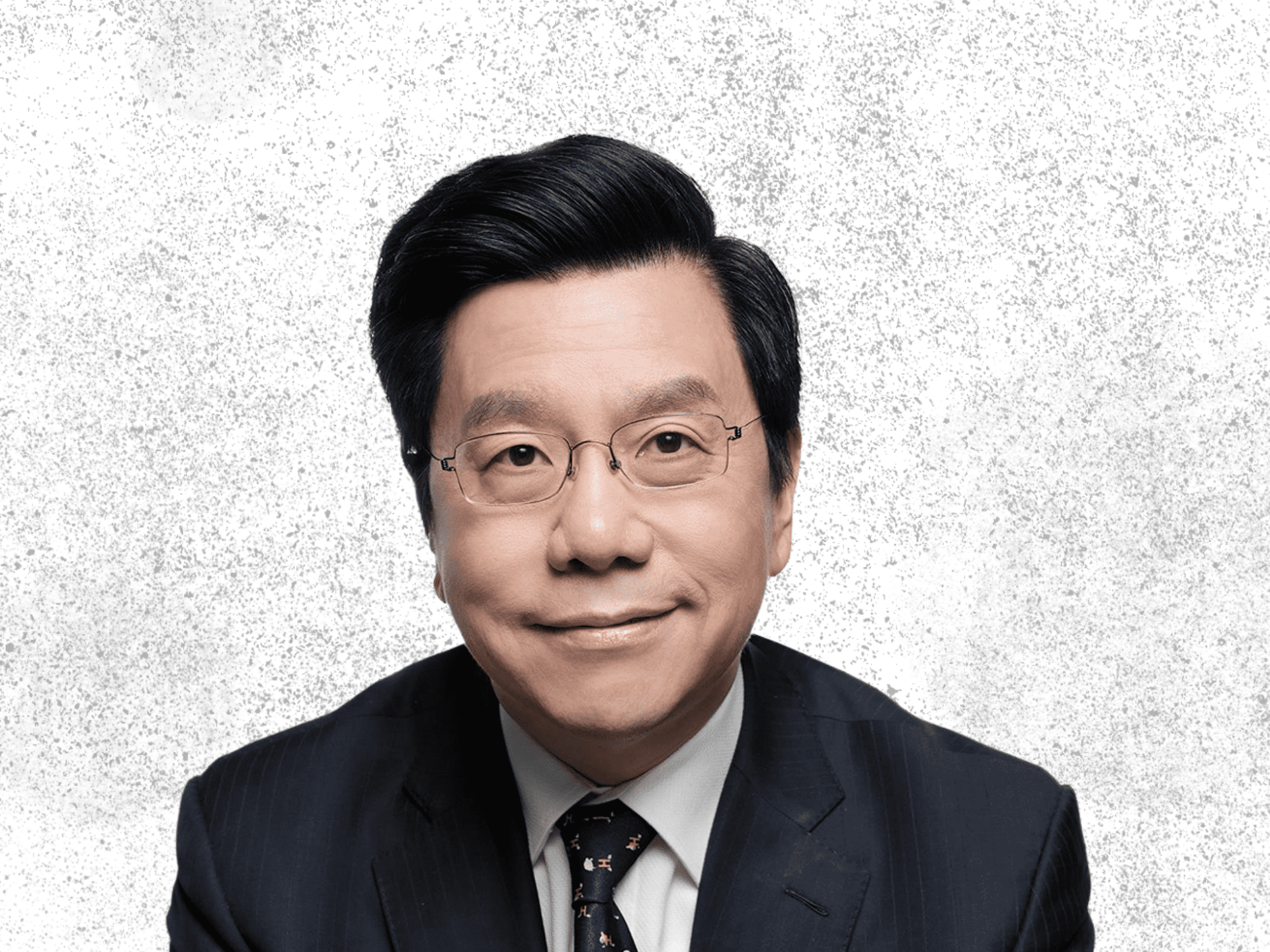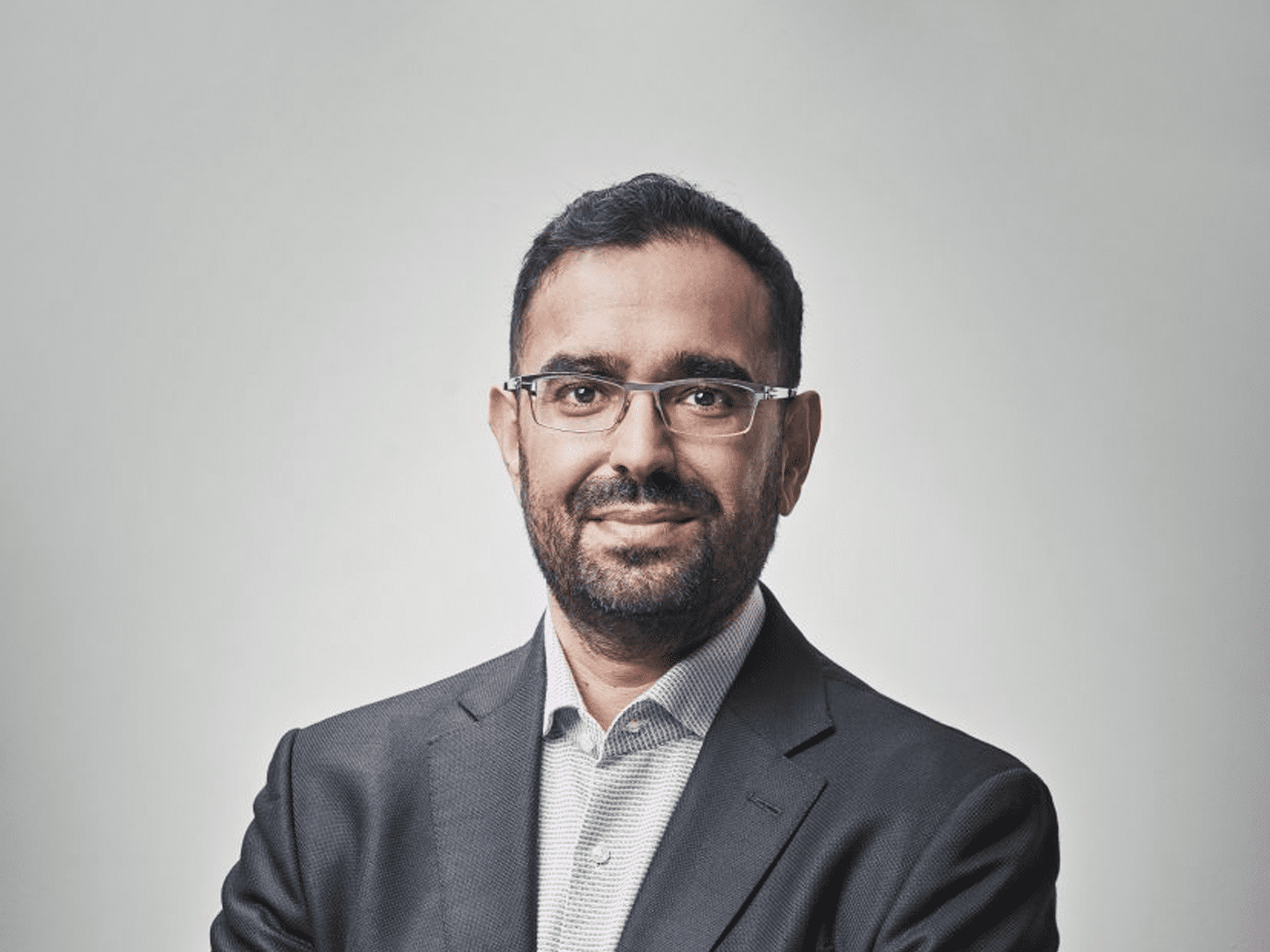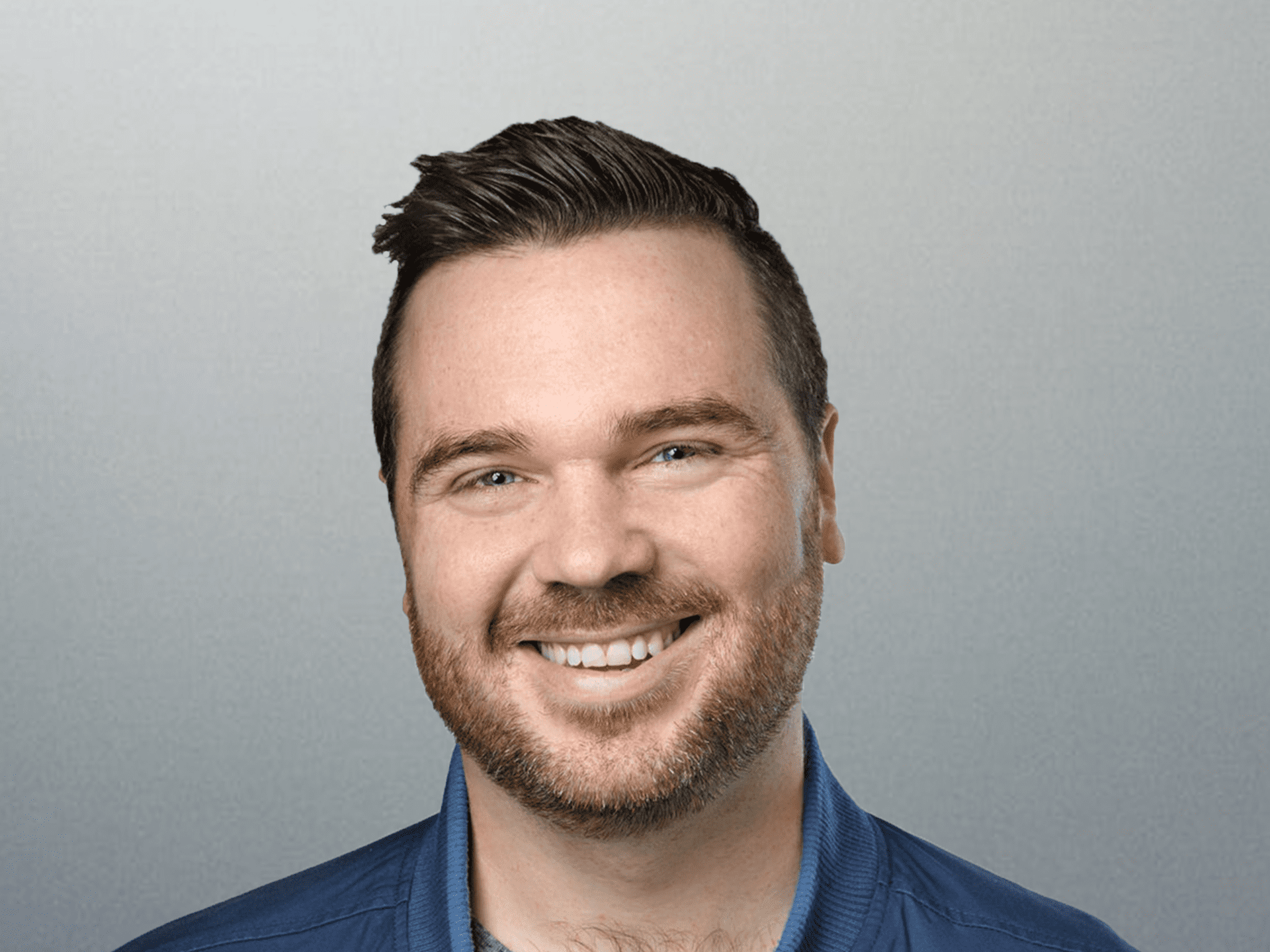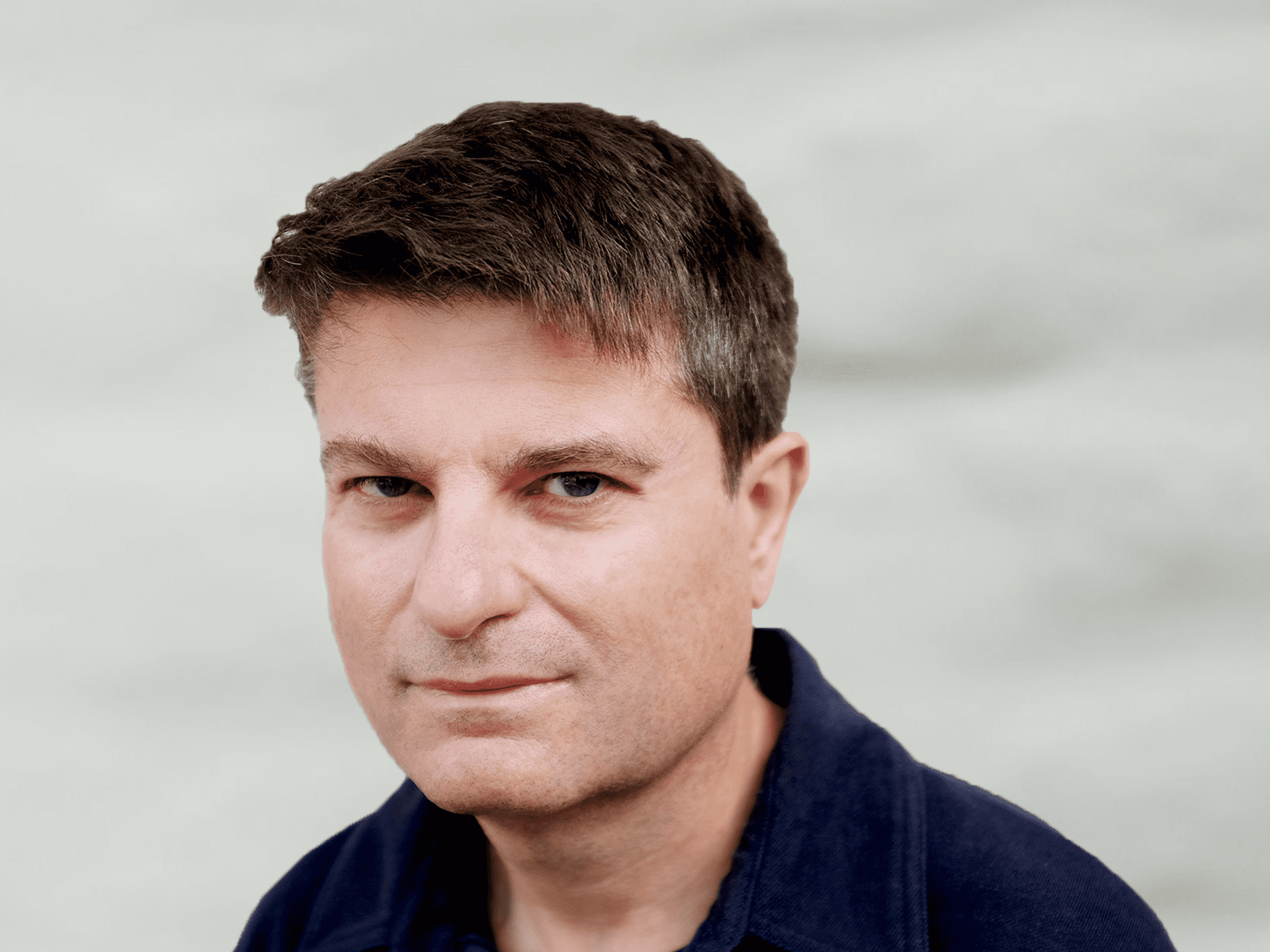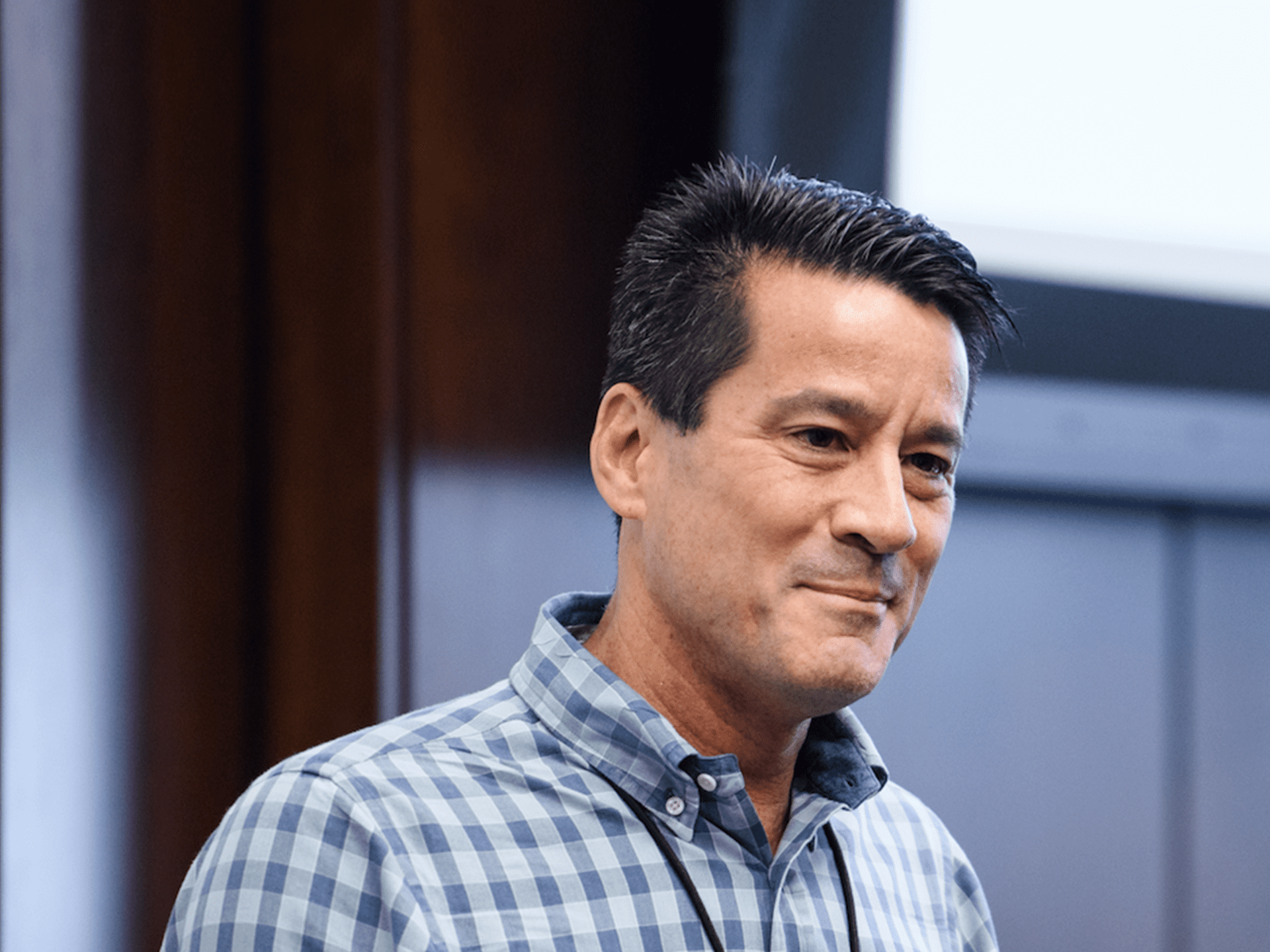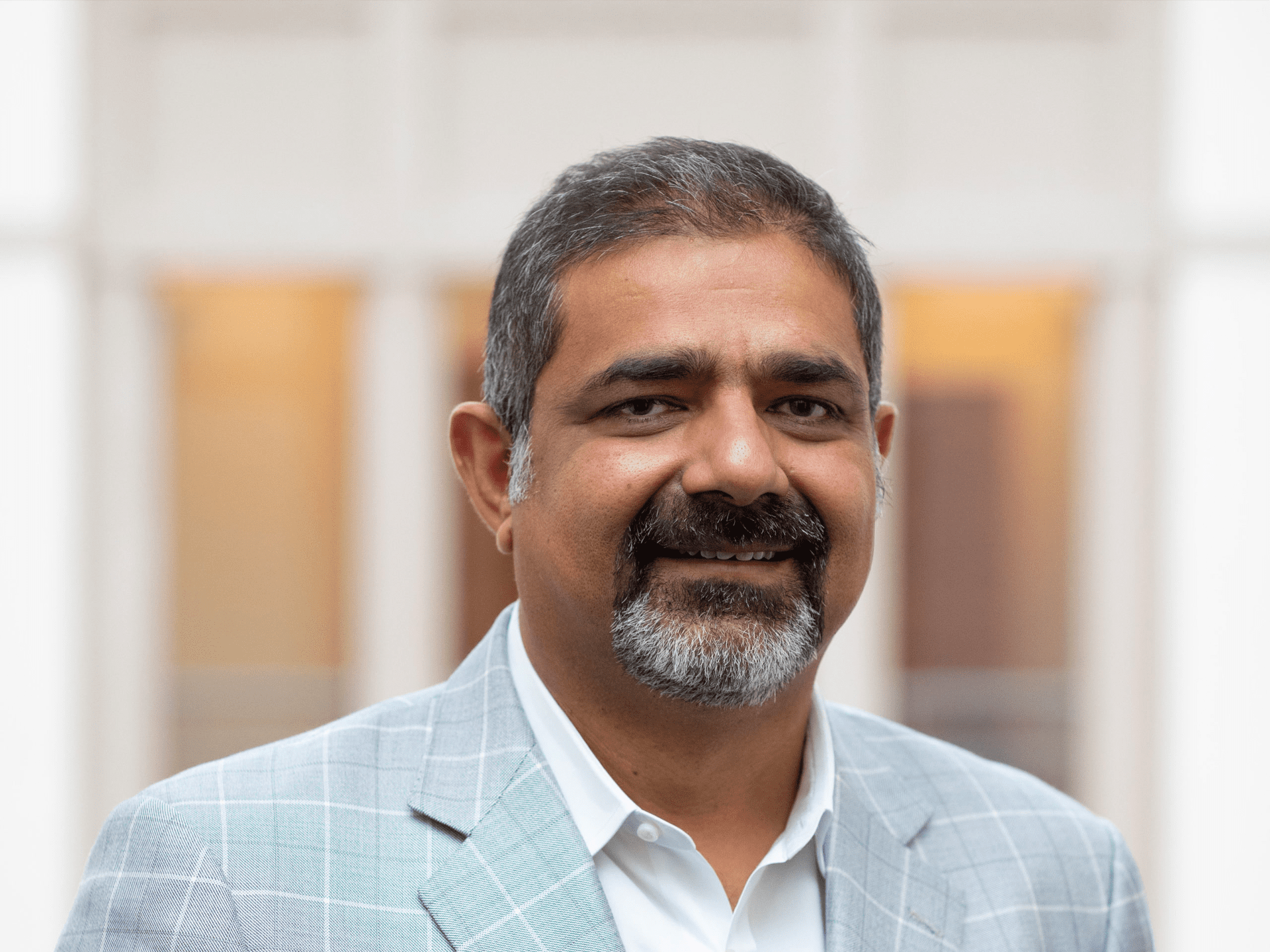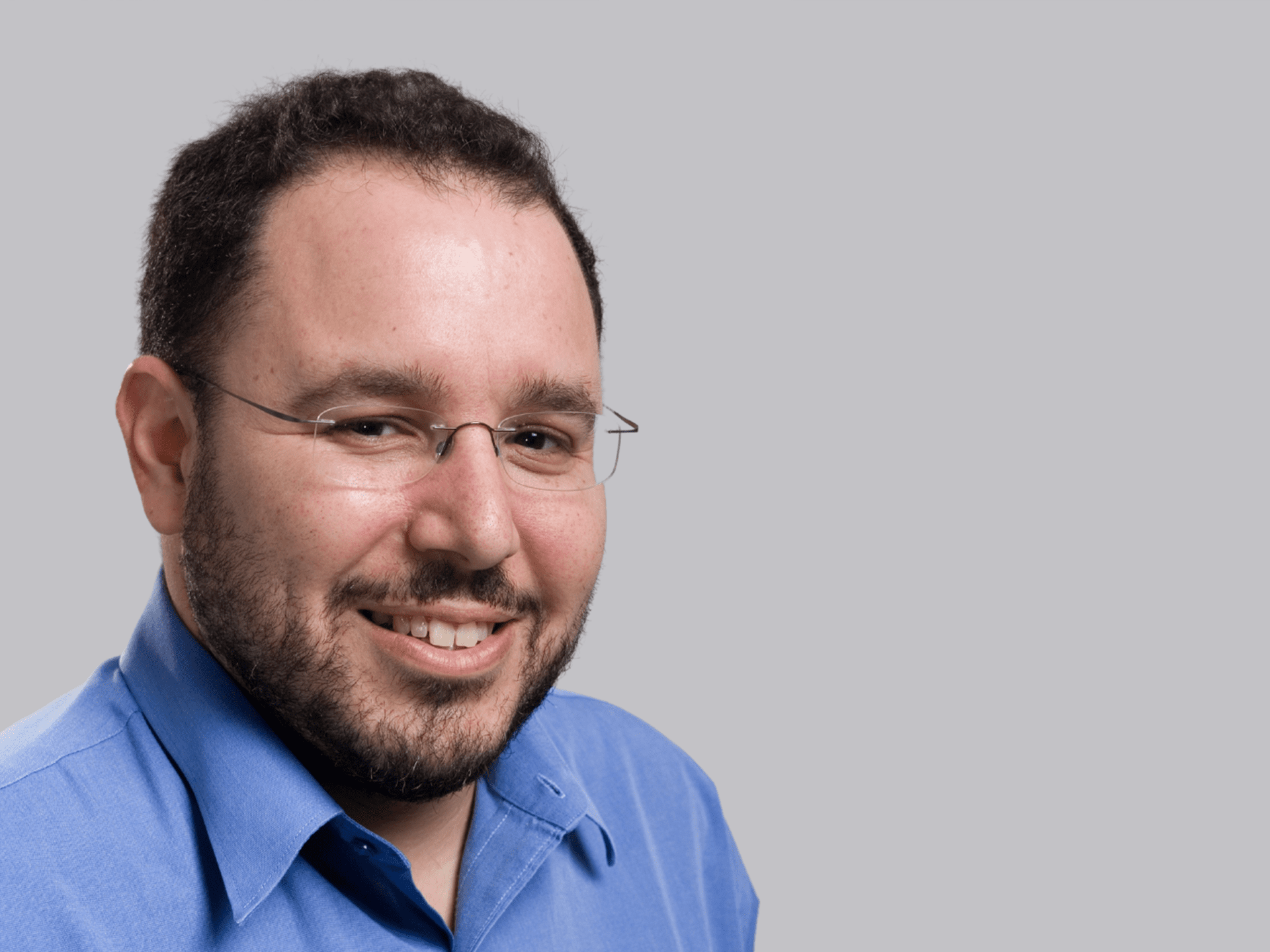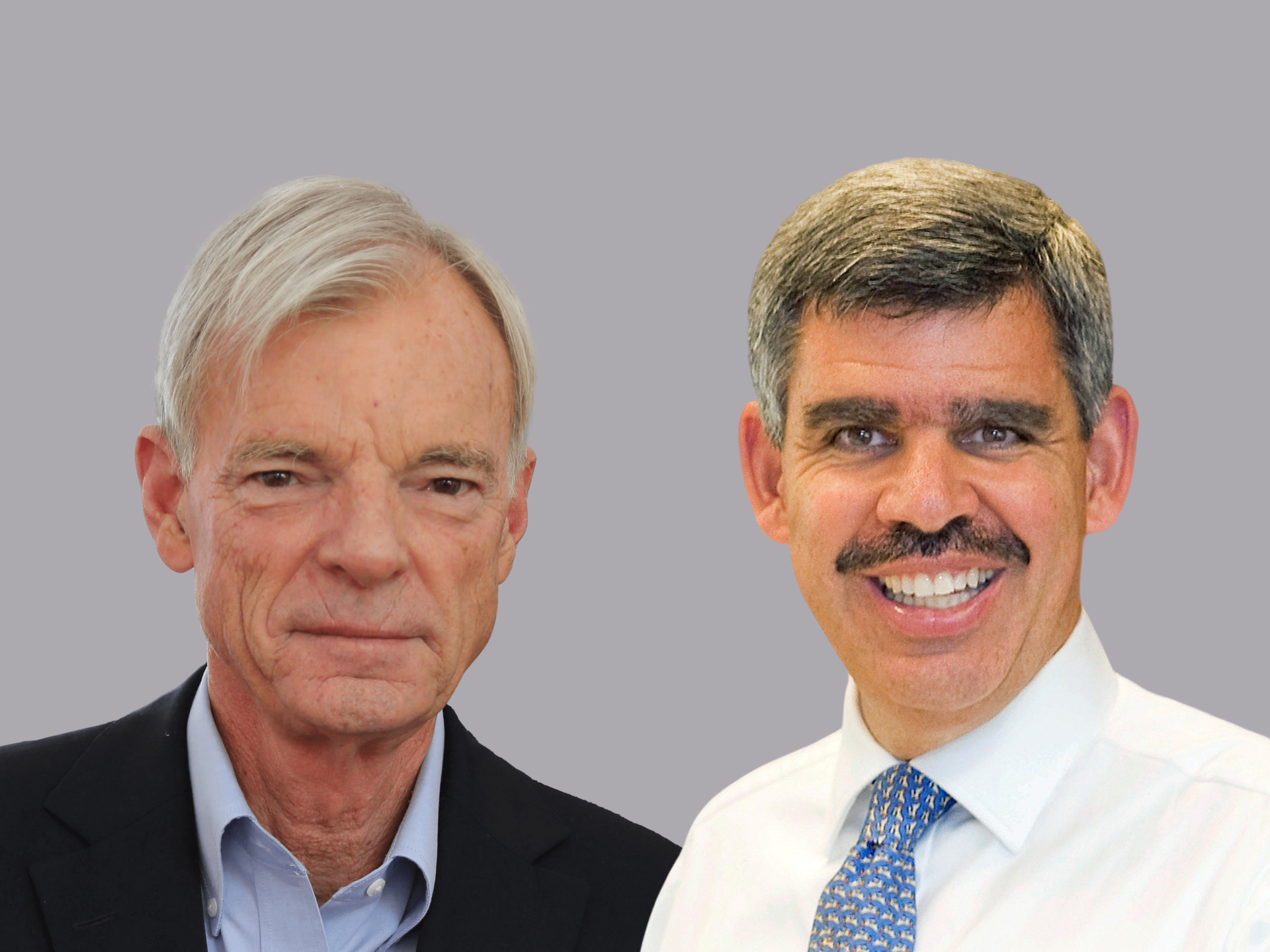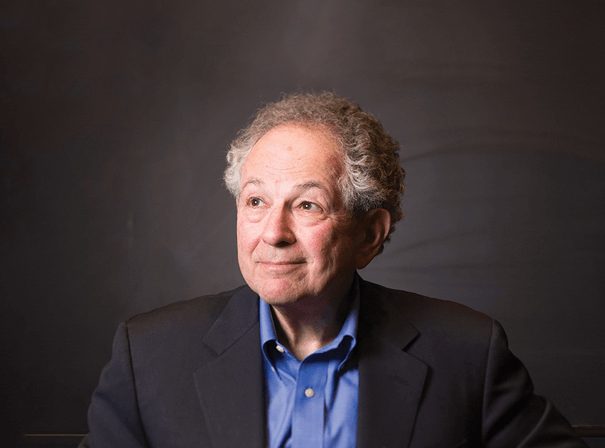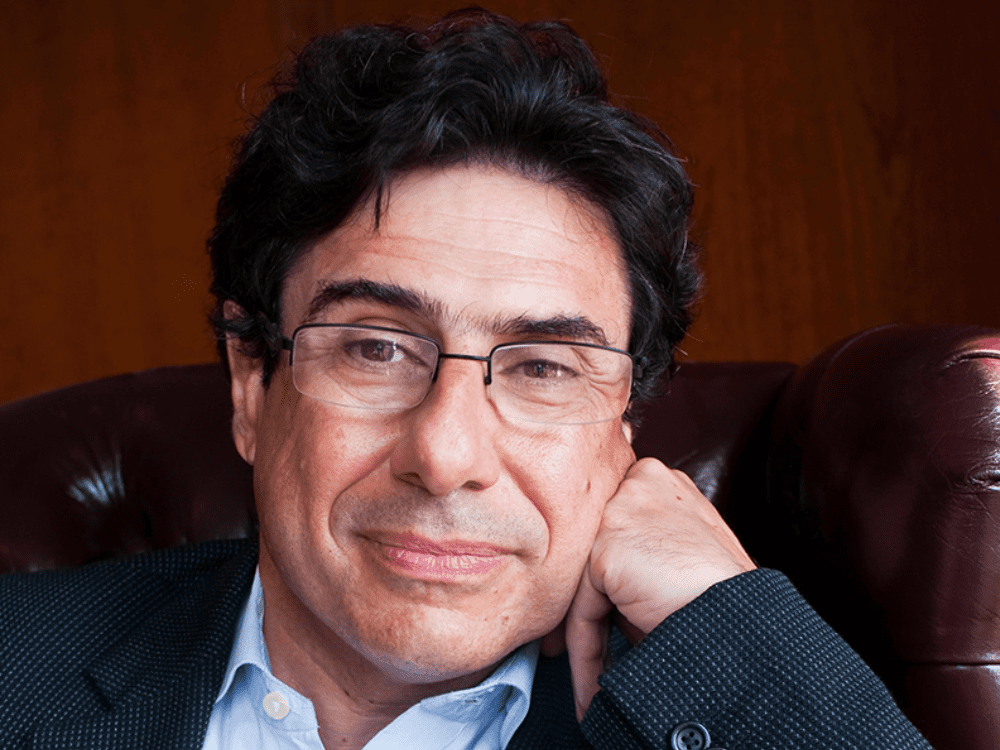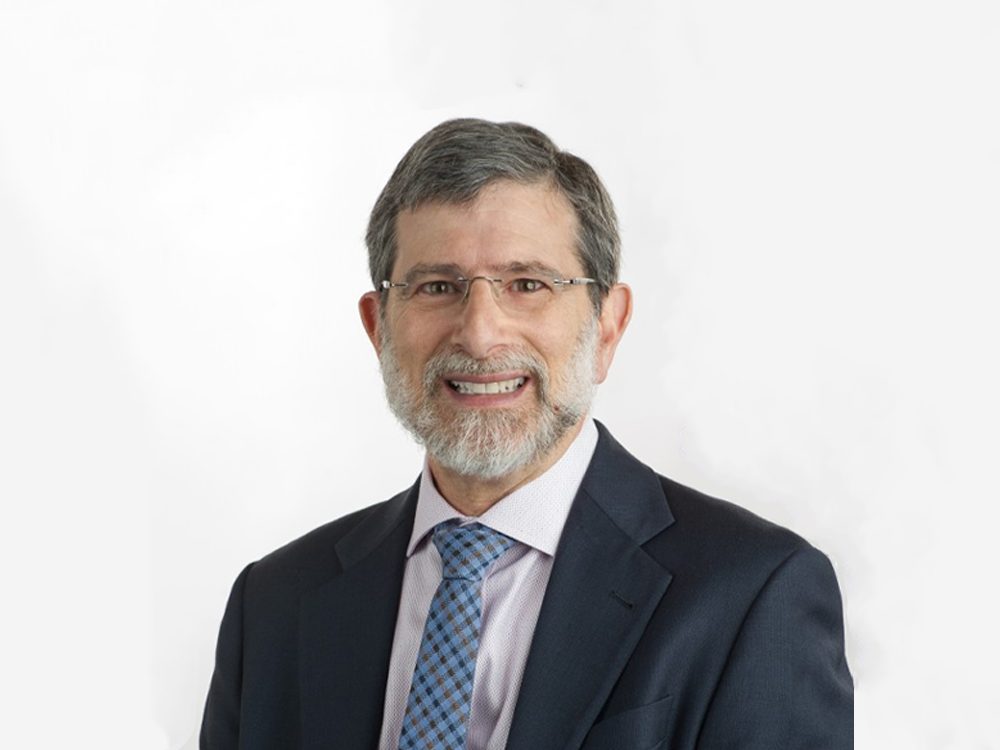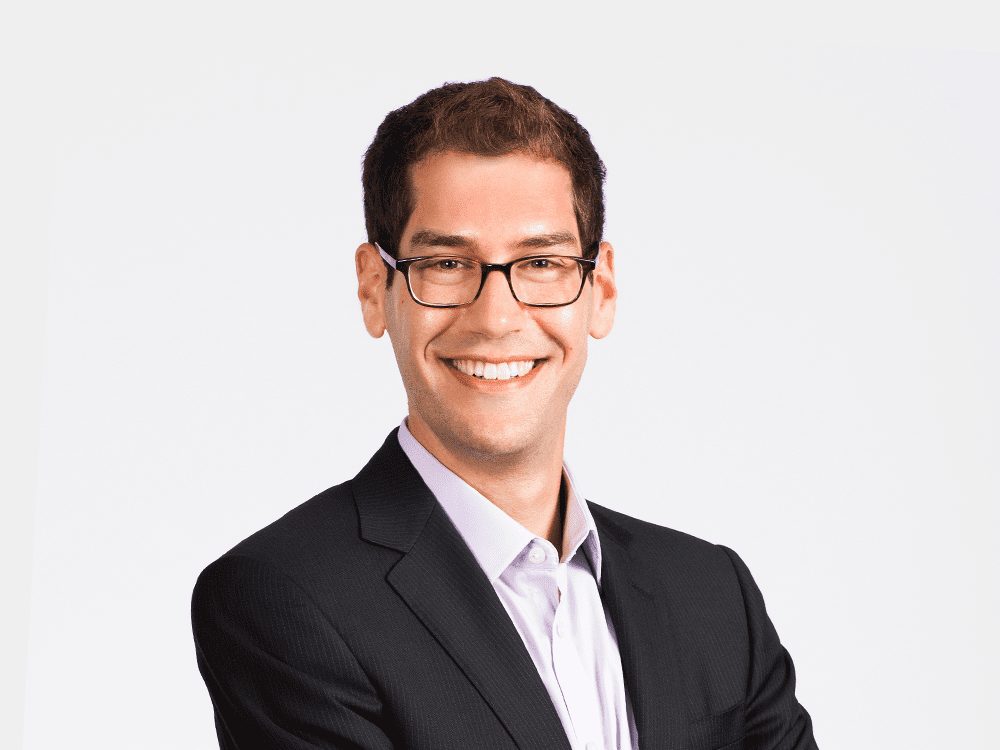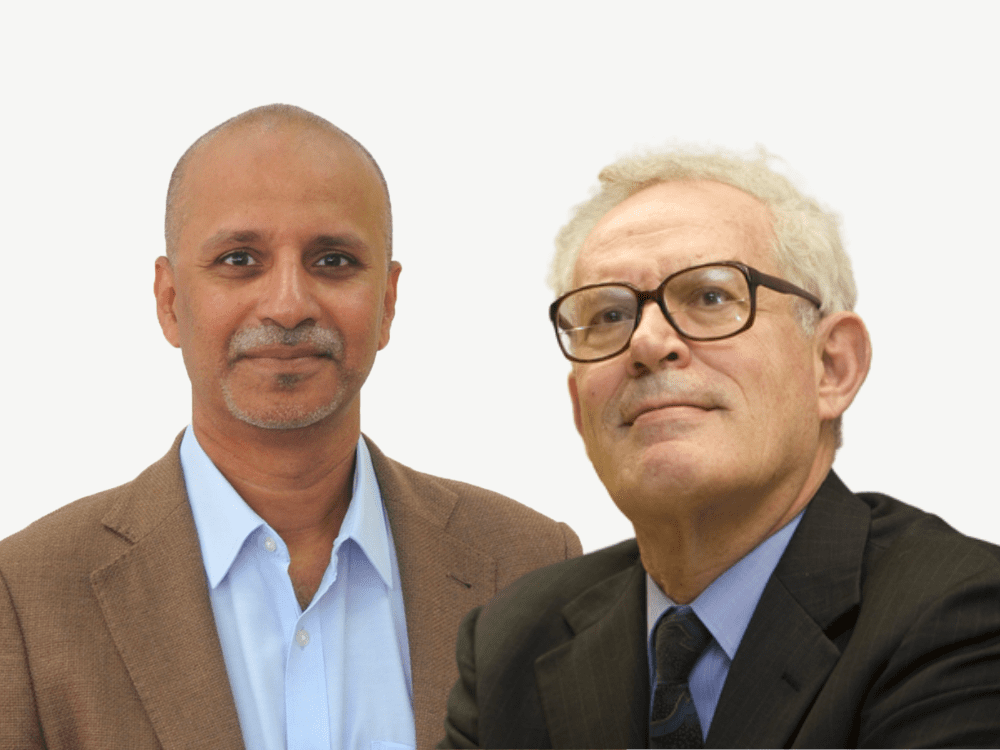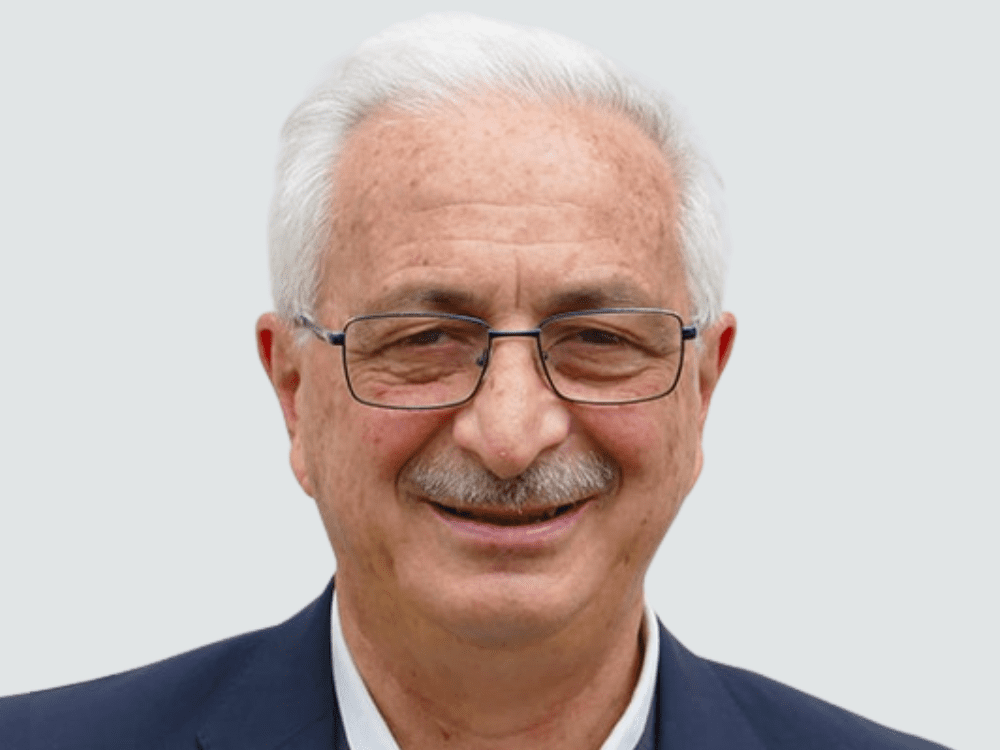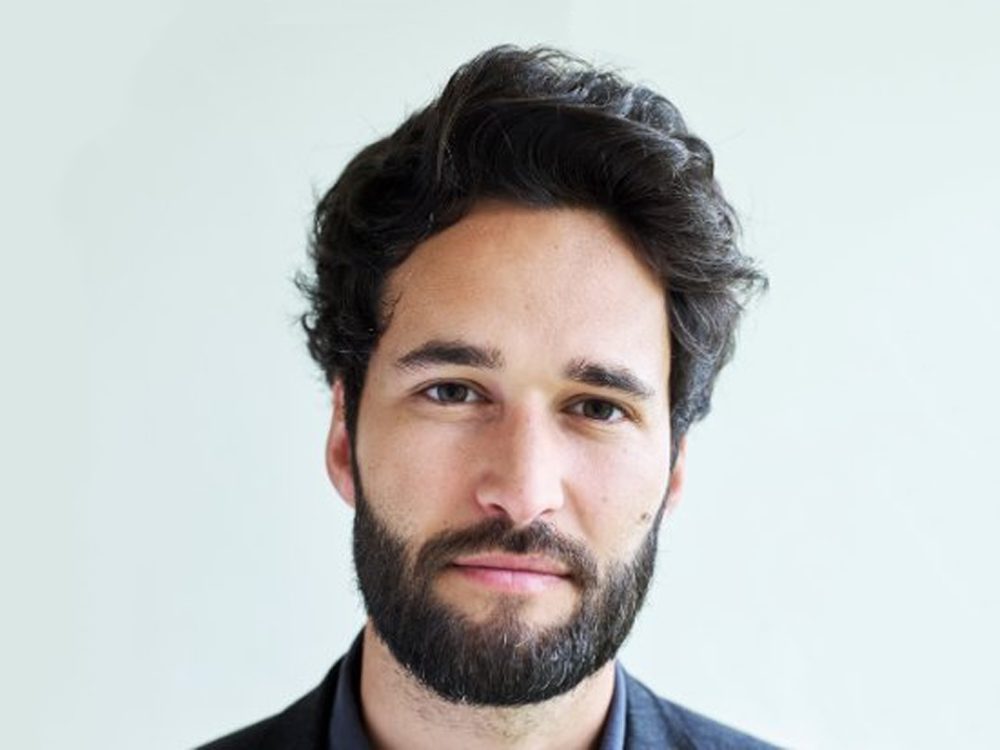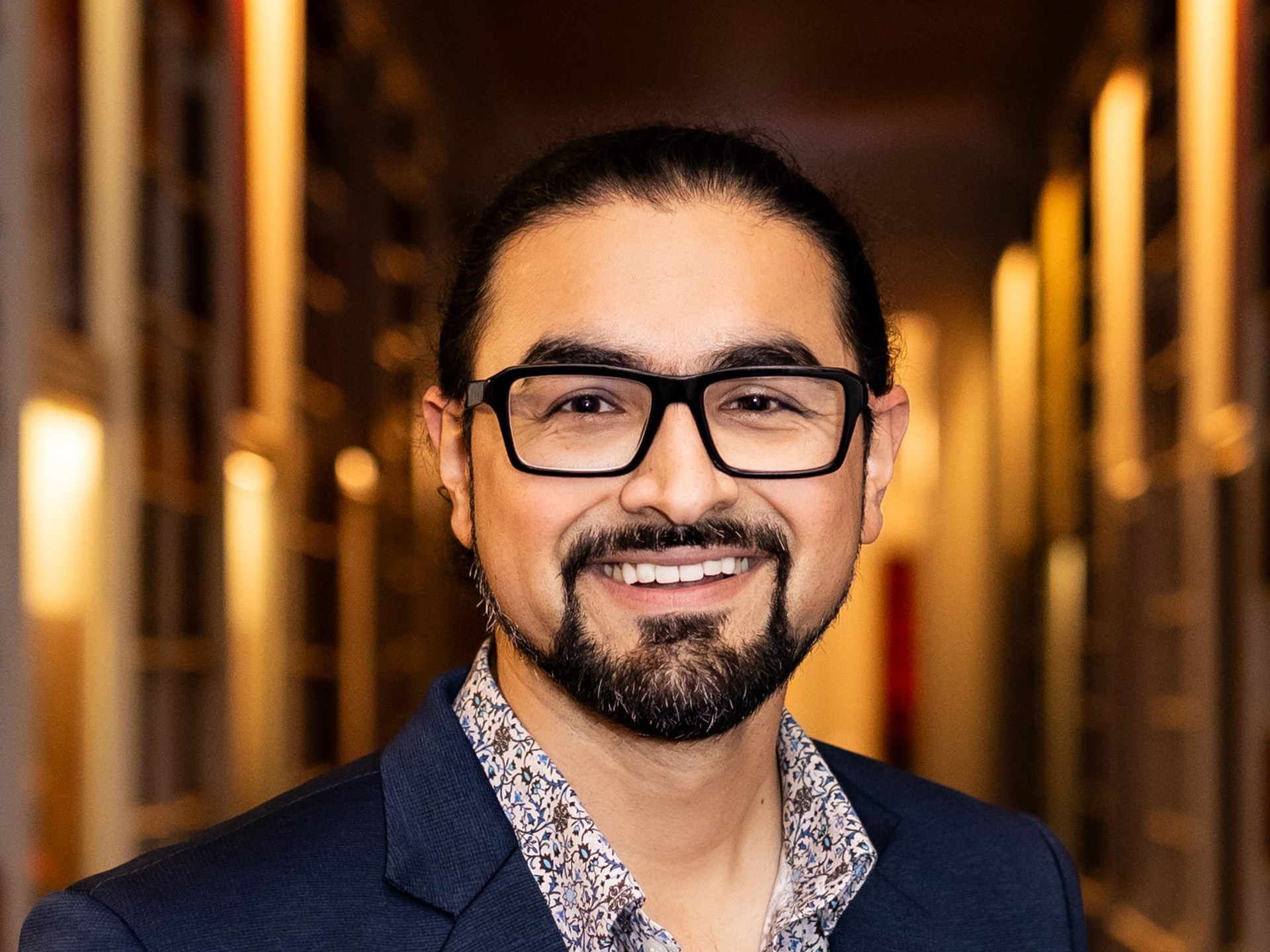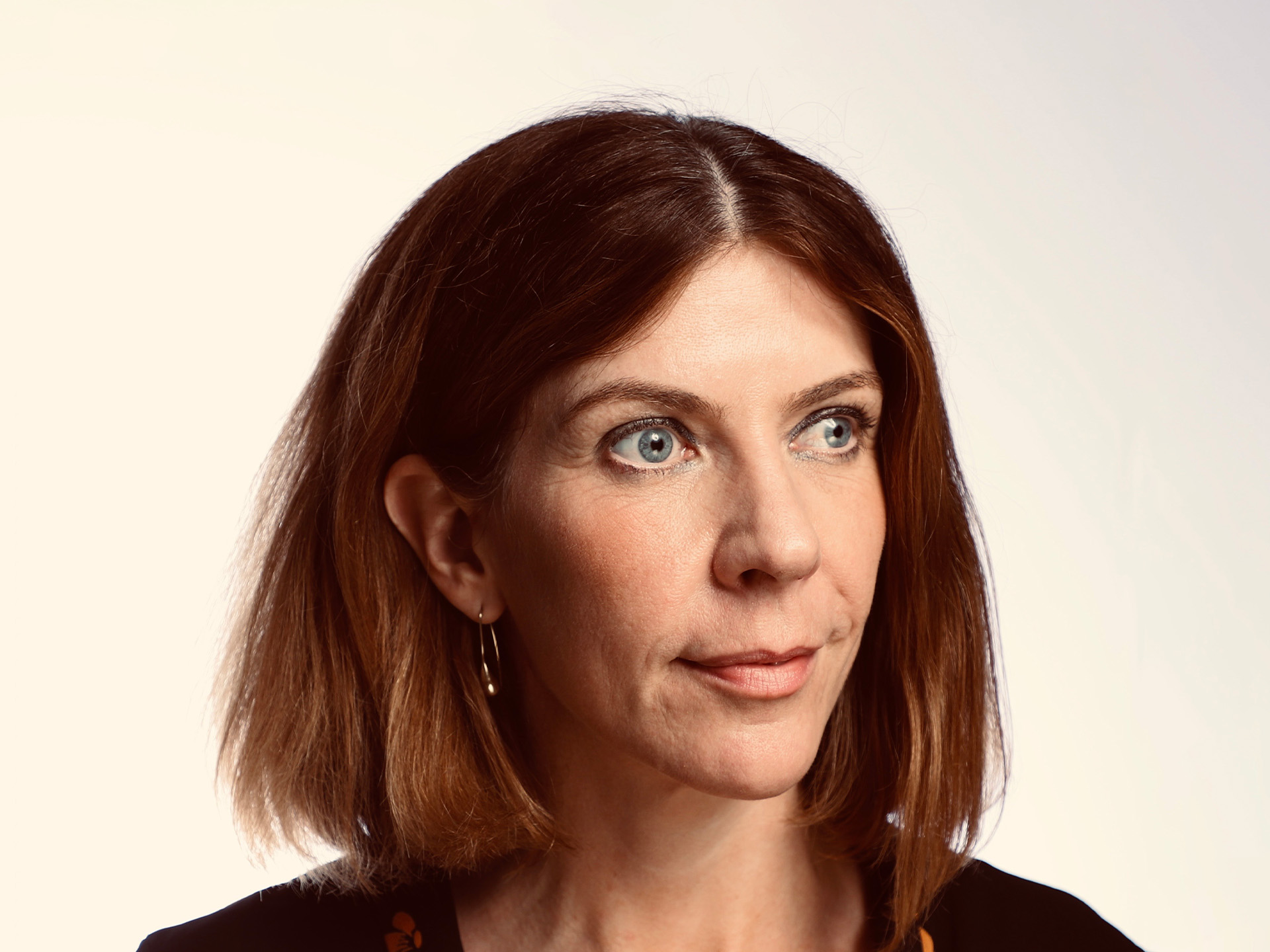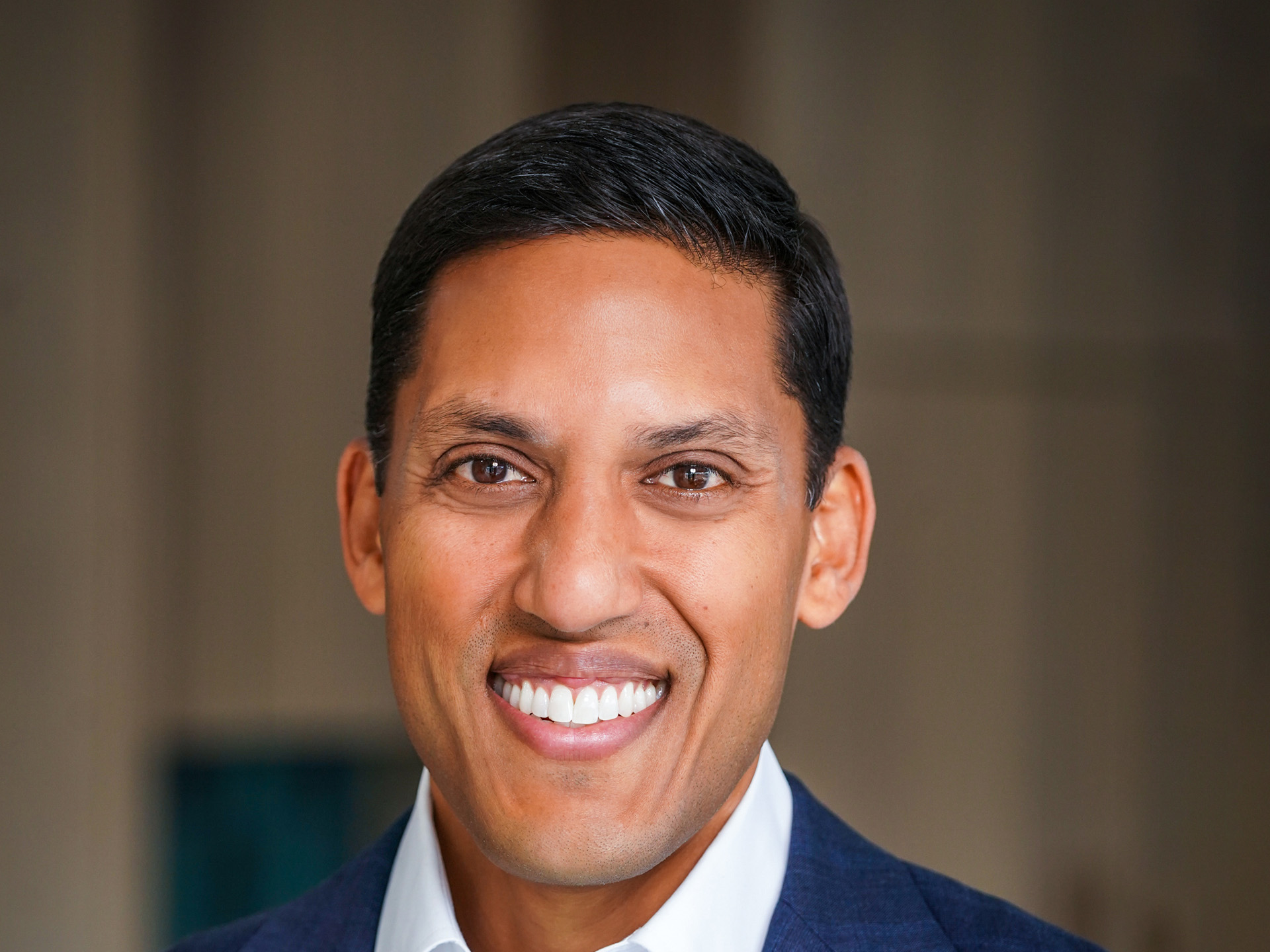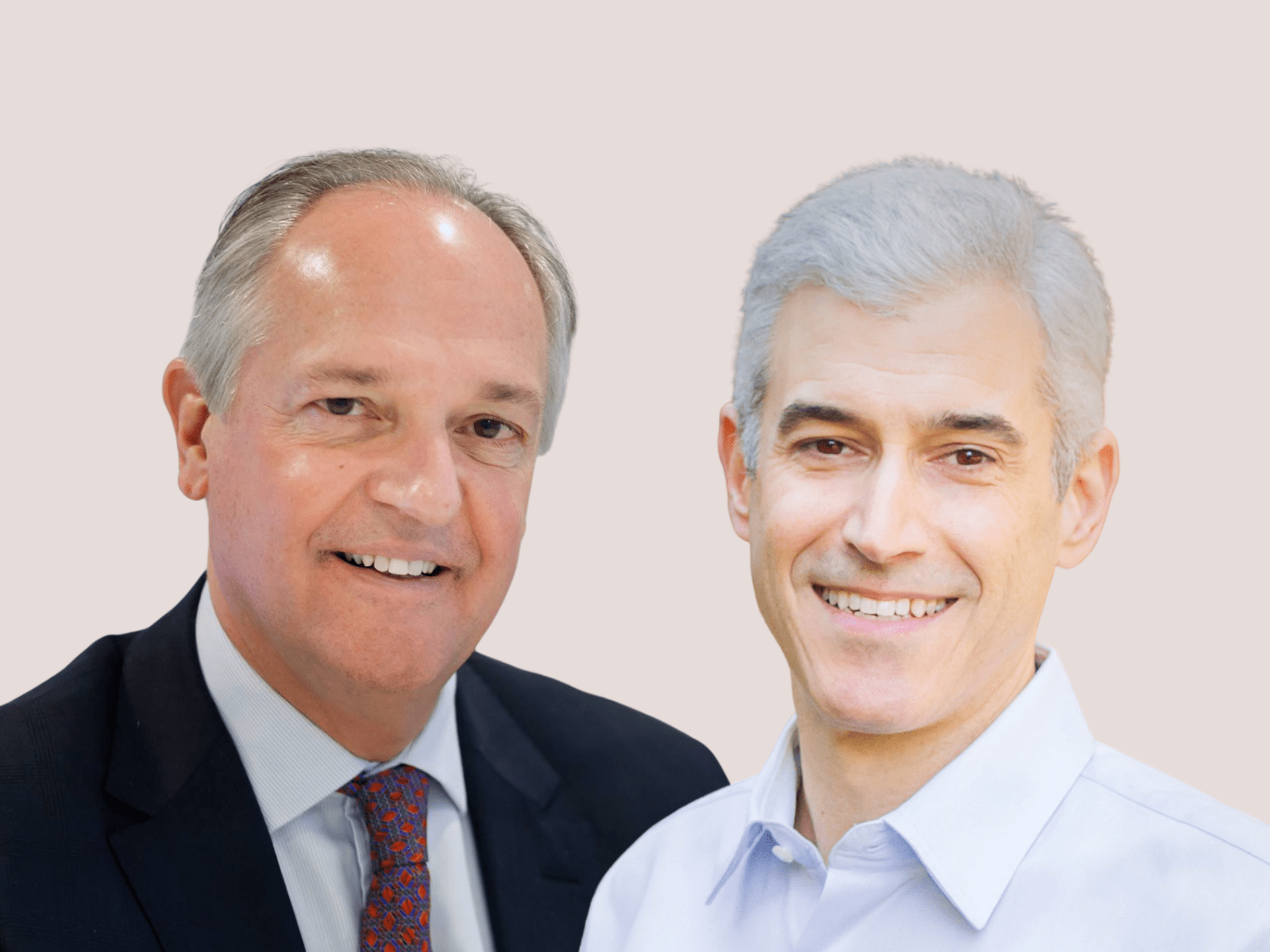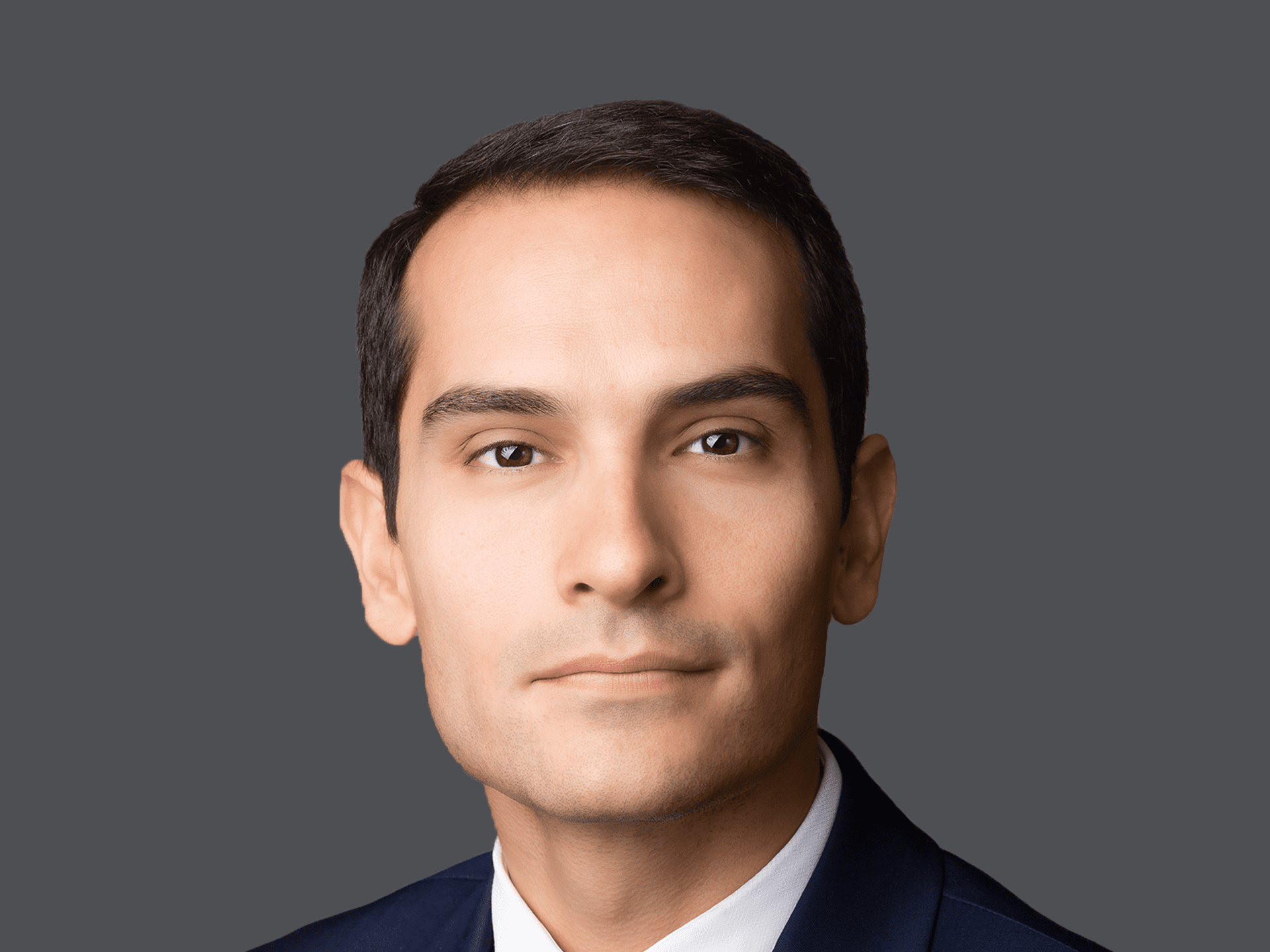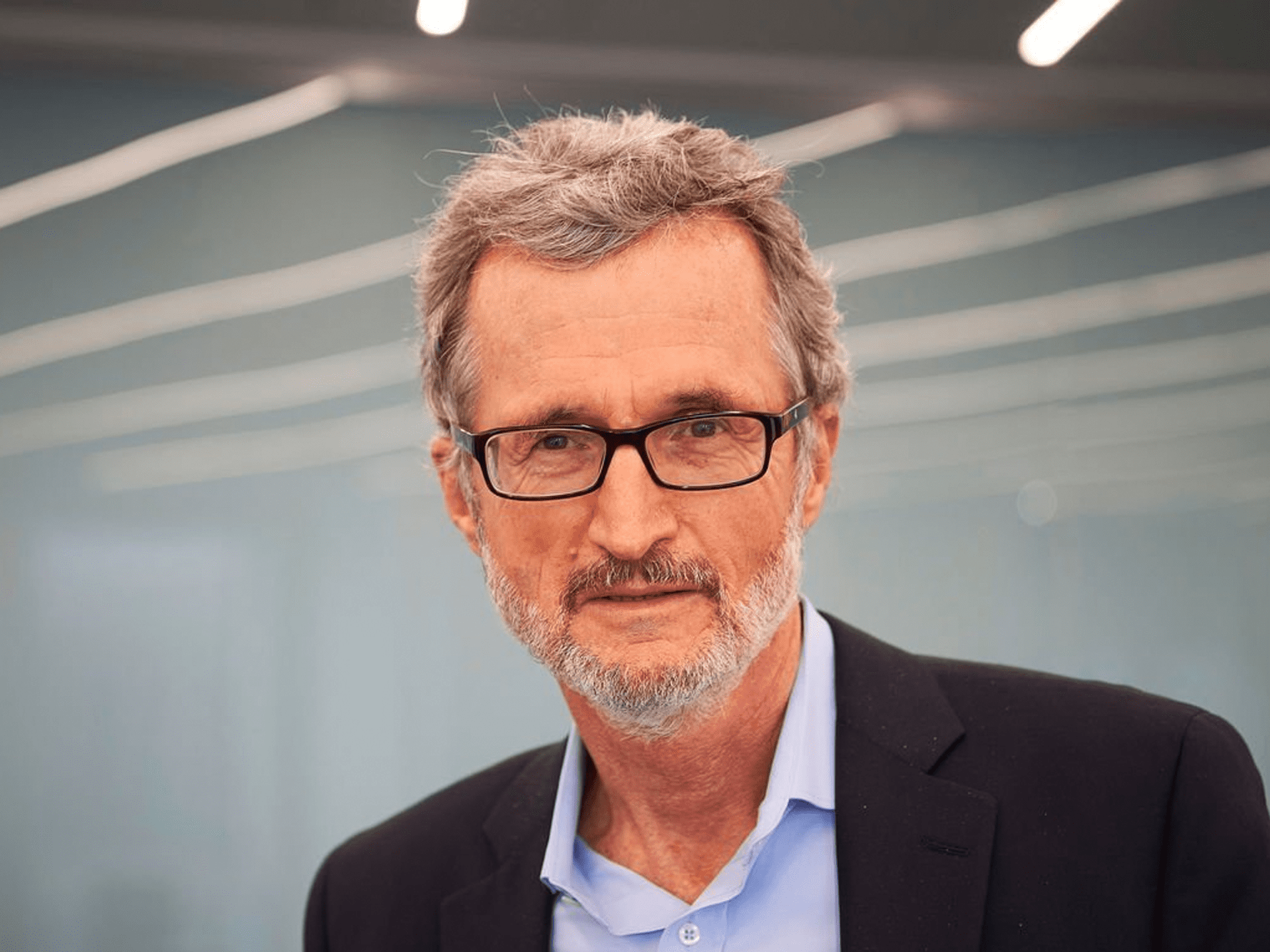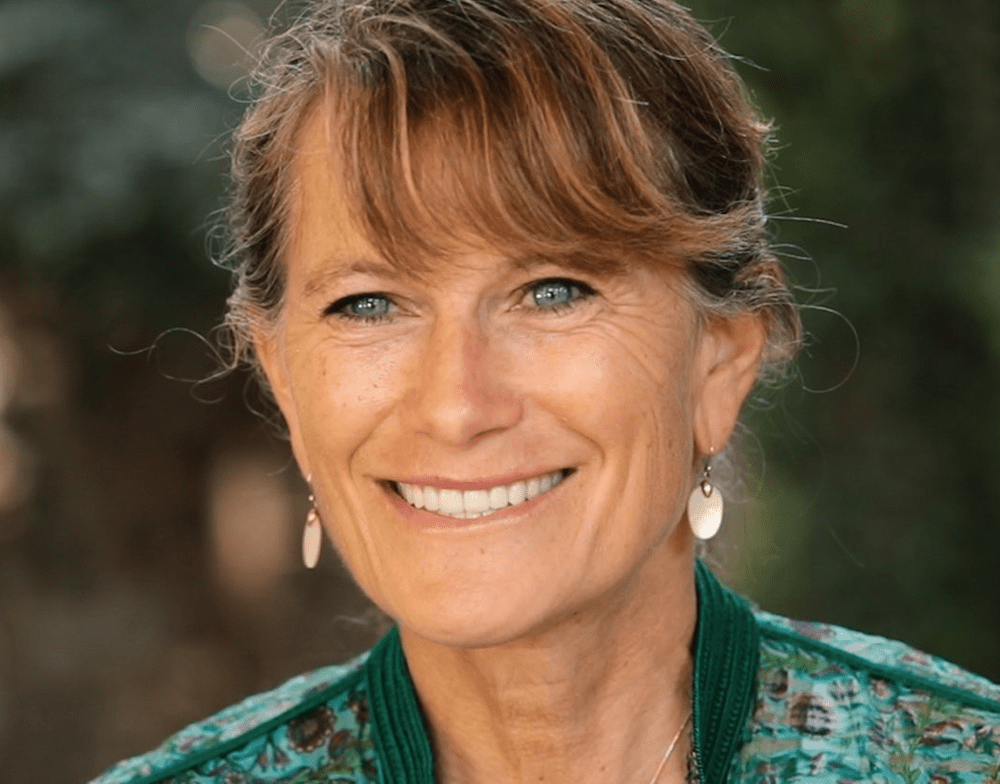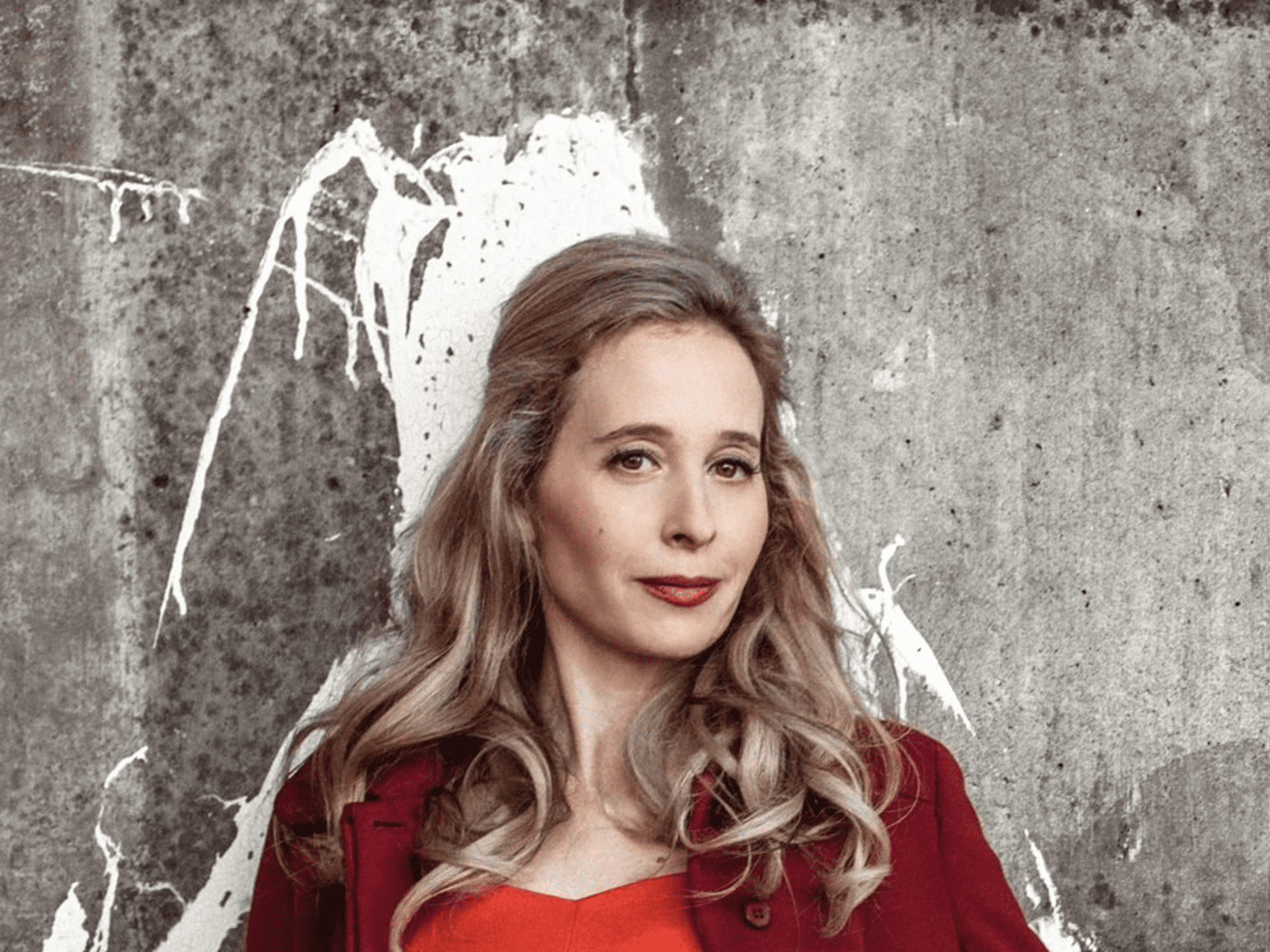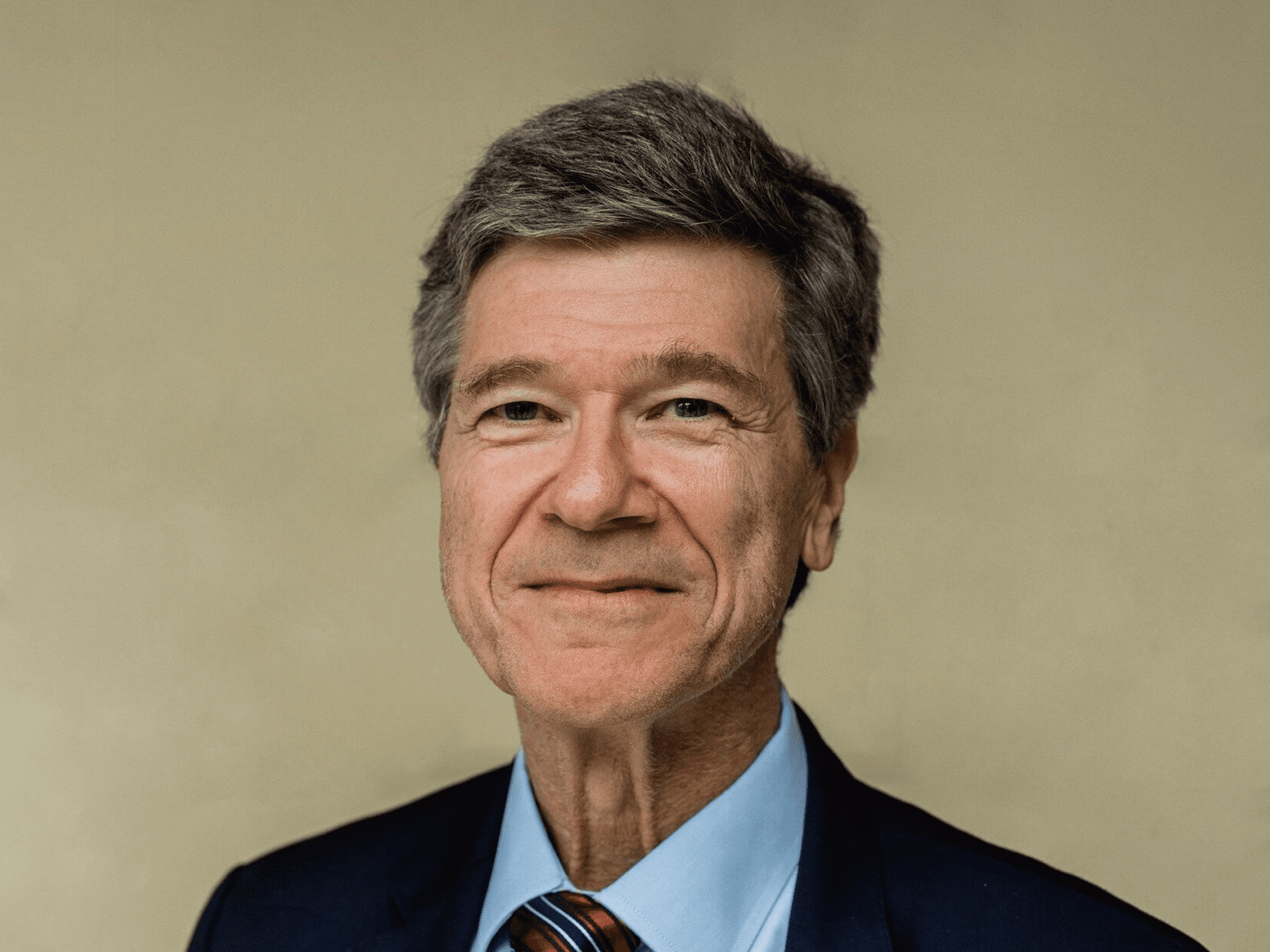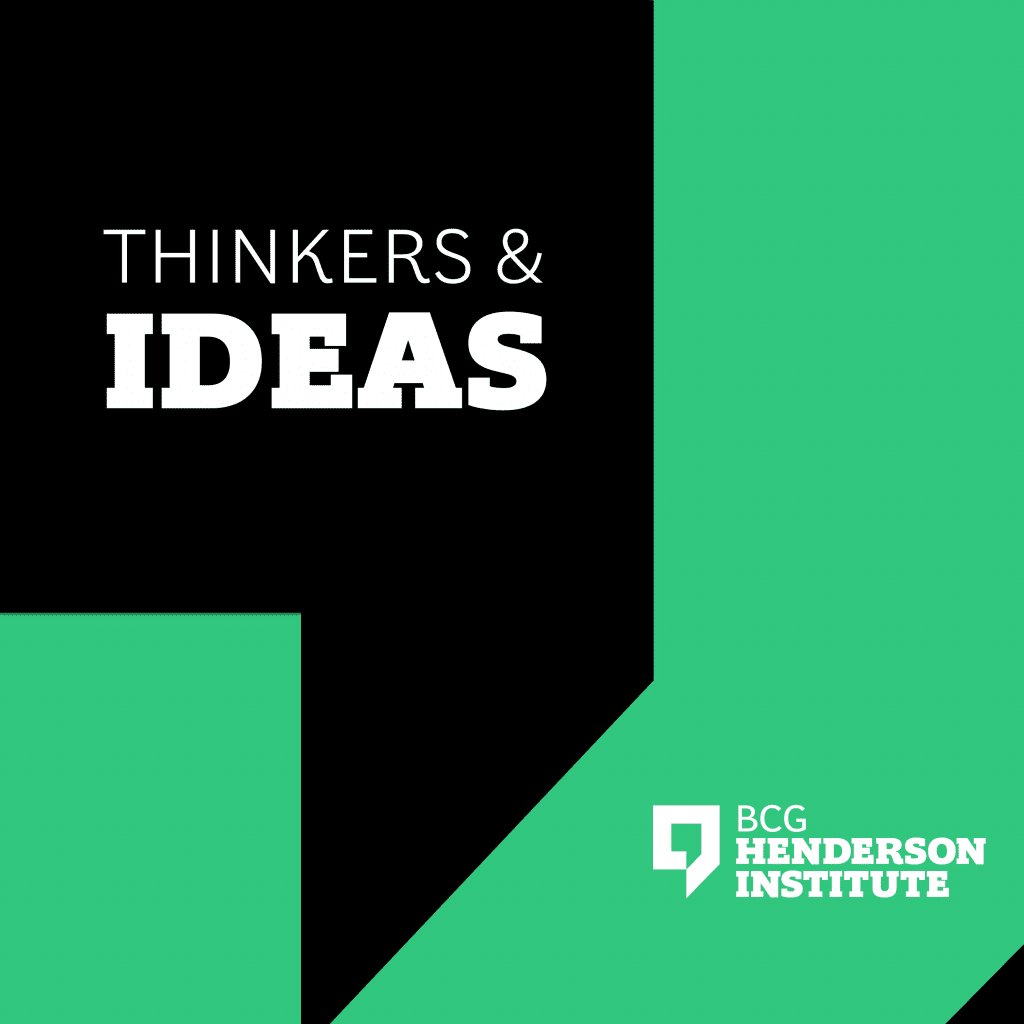
Thinkers & Ideas
Our flagship podcast series features thought-provoking conversations with leading thinkers, on topics that span business, technology, economics, and science.


Recent episodes
The New Geography of Innovation with Mehran Gul
"The AI boom is not like the internet boom. These are not companies that are being born in garages—scale matters, customers matter, your ability to invest heavily in infrastructure matters, speed and efficiency matter."
Flourish with Daniel Coyle
"Most good things in life and in business come through unexpected events. So creating space to actively look for the unexpected can really be transformative."
Shared Prosperity in a Fractured World with Dani Rodrik
"Manufacturing used to be a shortcut for development. It no longer is. In fact, to succeed in manufacturing today, you have to develop first—because you have to develop the skills, the capital, the infrastructure."
The Seven Rules of Trust with Jimmy Wales
"Trust is not a statistical thing. It’s something in the individual mind. We are constantly evaluating situations and people to decide whether we can trust them. […] So you need to put yourself in the other person’s emotional shoes to understand where there might be some weaknesses that you could bolster to help to build trust."
How to Be Bold with Ranjay Gulati
"Risk is where you know the distribution of outcomes, you can put probabilities on them. But uncertainty is unknown. Some of us believe that risk management tools can be used to eliminate uncertainty—but that is naïve."
The Land Trap with Mike Bird
"Land is often a zero-sum asset. Unlike all the other things in the world that we place a huge amount of value on, land cannot be moved, is in relatively fixed supply, and doesn’t decay. As a result, the rising value of land accrues to a relatively small, fortunate group of people and leaves relatively little for everyone else."
SuperAdaptability with Max McKeown
"Resilience is the ability to withstand, to bounce back to where you were [before a shock]. A rock can be resilient. […] But adaptability is about seeking to end up in a new and better place."
Capitalism and its Critics with John Cassidy
"If you look back over the history of capitalism, the only period which compares to where we are today in sort of political economy is the 1930s. That was the last time we saw a sustained assault on the capitalist system from both the left and the right. The left, of course, has always been criticizing capitalism. But now, even the right [is] arguing that capitalism has betrayed America."
Warhead with Dr. Nicholas Wright
"What I want to do is show people how both our brain has been shaped by conflict and by war, but also how our new knowledge can help us avoid the cataclysm we all want to avoid."
After the Spike with Dean Spears and Michael Geruso
"For decades, the prevailing worry was that the world was on a path to overpopulation. But all along during that conversation, birth rates were falling […] and now depopulation is the most likely future."
How Progress Ends with Carl Benedikt Frey
"If all we’ve done since 1800 was automation, we would have productive agriculture and cheap textiles—but not much else. We would not have antibiotics, vaccines, computers, or rockets. […] So, we need to begin to find use cases for AI that are not just about automation, if productivity growth from AI is going to be sustained."
Anointed with Toby Stuart
"Some are questioning the integrity of the elites, across different domains in life. With that happening, why don’t we just throw out the whole status system? And the short answer is: because we can’t!"
Reshuffle with Sangeet Paul Choudary
"Thinking about AI only at the level of what it does to my job is missing the picture. […] AI can change the nature of competition, due to that organizational systems will have to change for what is needed to compete, and jobs accordingly will have to shift in response to that."
The Eurasian Century with Hal Brands
"What we’ve seen throughout history, and are seeing again today, is that the struggle for global power is also a struggle to rule the frontier of technological innovation and of mass production—because both these capabilities become very important in a geopolitical struggle or a wartime context. That endures, even as the particular technologies that we’re concerned about change."
The Measure of Progress with Diane Coyle
"We need to think more in terms of understanding time. On the firm side, productivity improvements [usually mean] speeding up processes. […] For consumers, […] our budget is 24 hours, which we use on leisure, paid and unpaid work, consumption, services. Time could [be] the basis of a new accounting framework for economic value."
Chokepoints with Edward Fishman
"A bomb works quite well to blow things up, but it doesn’t always get you what you want politically. And I think the same applies to sanctions: […] the US government does have the power to impose significant economic harm on any country in the world. What we’re much less good at is translating that economic pain into the political objectives that we seek."
There’s Nothing Like This with Kevin Evers
"The biggest thing is customer obsession. The product is important for sure, but you really need to go to great lengths to delight your fans or your customers."
Strategy
Making Sense of Chaos with Doyne Farmer
"Complex systems thinking is the dominant tool for modeling in epidemiology. Companies use it to model their inventory systems. But using it in economics is harder because the agents have more agency and are complicated."
The Intelligence of Intuition with Gerd Gigerenzer
"Einstein said that intuition is a gift, and reason is its servant. However, we have created a society that celebrates the servant, and has forgotten the gift."
Right Kind of Wrong with Amy Edmondson
"Intelligent failures are intelligent because they're the only way to get some valuable new knowledge that you need to make progress."
Rita McGrath and Roger L. Martin on the Nature of Competitive Advantage
Listen to Roger L. Martin, Professor Emeritus at the University of Toronto, Rita McGrath, Professor of Strategy at Columbia Business School, and Martin Reeves as they debate the nature of competitive advantage.
HANGRY with Mike Evans
"The difference between a hobby and a business is making $0 or making $1. And the difference between a business and a great business is getting a second dollar from a customer who paid you a first dollar already."
The Patient Priority with Stefan Larsson and Jennifer Clawson
"We need to measure the results for patients and learn from the individuals and groups of patients what really works. (...) Value-based healthcare is one that is truly patient-centric and closer to the inner purpose of people working in the sector.”
The Future of Competitive Strategy with Mohan Subramaniam
"In this world of data and digital ecosystems, your competitors aren't just those who offer similar products. Your competitors can also be those who have access to similar data."
The Upside of Uncertainty with Nathan Furr and Susannah Harmon Furr
"If we can frame uncertainty in terms of possibility, rather than potential loss, we will approach it with greater calm, resilience, and courage."
The Power of Trust with Sandra Sucher
A powerful exploration of the changing nature of trust. The book leverages interdisciplinary research, alongside key business case studies, to help elaborate the four components of trust: competence, motives, means, and impact.
IDEAFLOW with Jeremy Utley and Perry Klebahn
"Ideaflow is a way to measure how well you're generating a volume of options to any given problem. Every solution starts as an idea."
A New Way to Think with Roger L. Martin
Listen to Roger L. Martin, Professor Emeritus and former Dean at Rotman School of Management, as he discusses his new book, A New Way to Think, exploring the importance of human ingenuity, change, and, competitive advantage in reinventing the future.
The Human Element with Loran Nordgren and David Schonthal
Loran Nordgren and David Schonthal, professors at Northwestern University’s Kellogg School of Management, discuss their new book. Sharing insight into how to get people to say yes to a new idea or innovation, arguing that people are most persuaded by ideas that they generate themselves.
Rethinking Competitive Advantage with Ram Charan
The world-renowned business advisor and author provides an overview of how leaders — of both traditional and digital companies — can increase their chances of success in the digital age.
Moonshot with Dr. Albert Bourla
Pfizer CEO Albert Bourla shares the story of the creation of the mRNA COVID-19 vaccine on our Thinkers and Ideas podcast.
Be Logical – Be Creative – Be Critical with Luc De Brabandere
Building on his knowledge and experience as a corporate philosopher, Brabandere suggests that firms should focus on creatively reinventing themselves with new tools, rather than using current digital tools to optimize existing processes or systems.
The Voltage Effect with John A. List
Listen to the University of Chicago Professor discussing his new book that focuses on the necessity of scaling ideas and the things that help and get in the way of doing this.
Corporate Explorer with Andy Binns and Charles O’Reilly
“There's an irony as organizations become successful, they learn and that learning gets embedded in systems and processes and metrics. The very things that are making them successful, also make it more difficult for them to become explorers.”
Deep Purpose with Ranjay Gulati
Organizational scholar and professor at Harvard Business School, Ranjay Gulati shares insight into his latest book, introducing the concept of “deep purpose” in achieving company-wide commercial value and social good.
Winning the Right Game with Ron Adner
Ron Adner, a Tuck Professor and ecosystem thought leader, discusses his new book, which deals with the intersection of ecosystems strategy and competitive disruption, with Martin Reeves.
Open Strategy with Christian Stadler
The authors argue that history is flooded with examples of companies, governments, and individuals who faced problems that could have been solved with openness. The book analyzes these examples to warrant the overall premise of opening up strategy.
Noise with Olivier Sibony
This book focuses on the scatter inherent in decision-making. Learn more about how noise differs from bias, how it arises, and how it can be reduced through what the authors call decision-making hygiene.
Framers with Kenneth Cukier and Francis de Véricourt
How can we better use the uniquely human capability of framing to generate new options and structure decision-making effectively? An important book for anyone involved in problem-solving with valuable lessons on how to improve one's ability to frame and reframe.
The Global Rule of Three with Jagdish Sheth, Can Uslay, and Raj Sisodia
In the absence of excessive regulation or anti-competitive practices, industries are observed to evolve toward an optimal market structure described by the Rule of Three. The authors, building on Bruce Henderson's original research, explore how the rule works in today's global environment.
Business Model Innovation Strategy with Raffi Amit and Chris Zott
This book is a guide on business model design for leaders. The authors argue that business model innovation does not replace traditional strategy, but instead complements it by providing new opportunities to disrupt the market or reinvigorate an established firm by creating an advantaged system of activities.
2030 with Mauro F. Guillén
In this book, Guillén, the new Dean of Cambridge Judge Business School, outlines eight interlocking trends that will reshape society as we know it by 2030.
The Phoenix Encounter Method with Sameer Hasija
Sameer Hasija, professor at INSEAD discusses insights from a new book he coauthored with Ian Woodward, Paddy Padmanabhan, and Ram Charan. The authors argue that in order to avoid being disrupted, leaders need to go through “phoenix encounters” in which they contemplate and simulate their own disruption.
Radical Uncertainty with John Kay
In their new book, John Kay and Mervyn King argue that statistical models have only limited value in guiding business decision making. In an uncertain world, decision making should be guided by developing and critically challenging reference narratives, to figure out “what’s going on here?”
Janus Strategy with Loizos Heracleous
Loizos Heracleous, professor at the Warwick Business School and Associate Fellow of Green Templeton College and Saïd Business School, probes how some organizations manage to break tradeoffs between competing goals like cost and differentiation. He also explains the mindset and moves leaders need to help their organizations achieve this.
What’s Your Problem? with Thomas Wedell-Wedellsborg
Harvard Business Review Press author Thomas Wedell-Wedellsborg says that 85% of companies he surveyed for his new book don’t consider themselves to be good at framing problems correctly. The good news: according to his research, you can learn how to get better at solving the right problems.
Uncharted with Margaret Heffernan
Margaret Heffernan, a Texas-born, Cambridge-educated author and former media CEO argues that because the future is inherently unpredictable we need to stop force-fitting models for prediction onto business strategy and elsewhere, as doing so only provides us with a false sense of certainty and security.
When More is Not Better with Roger L. Martin
Listen to Roger L. Martin, professor and former dean of the Rotman School of Management, as he analyzes the growing inequality in American society as a threat to the democratic-capitalism underpinning its historical success, and proposes countermeasures for leaders and citizens.
The Ecosystem Edge with Peter J. Williamson
Ecosystem Edge focuses on how to start and manage ecosystems. Listen to Peter J. Williamson, professor of international management at the University of Cambridge, Judge Business School and Fellow of Jesus College as he discusses insights from the book, including ecosystem strategy and innovation.
The Invincible Company with Alex Osterwalder
Alex Osterwalder, the founder of Strategyzer and coauthor of The Invincible Company, decodes how some of the world’s leading companies have built superior business models and reinvented themselves, and shares some lessons on how to achieve this.
The Art of Innovation: a Conversation with Steve Blank
Read our interview with Steve Blank drawing on his forthcoming book about innovation, differences between large corporations and startups, strategic ambidexterity, and the disruption and reimagination of companies in the context of the COVID crisis.
Seeing Around Corners with Rita McGrath
Rita McGrath, professor at Columbia Business School, discusses her new book, Seeing Around Corners, a guide to anticipating and capitalizing on disruptive inflection points shaping markets.
Organization
The Secret of Culture Change with Jay Barney
"We have no examples in our data of successful culture change that did not start at the top. […] If the business leader […] is not building the story then it is not culture change."
The Friction Project with Bob Sutton
"[Friction creates] the feeling that you’re trying to accomplish [something], but there’s something about the system that makes it difficult or impossible for you to get it done. […] When people feel excessively burdened, they’re less creative. They tend to leave the organization. They just give up."
The Geek Way with Andrew McAfee
"A bunch of geeks, largely clustered in Northern California, iterated and experimented their way into a better operating system for a company. They have upgraded the company."
Remote Work Revolution with Tsedal Neeley
The rapid changes brought on by Covid-19 were unprecedented, but remote work (and the concerns that accompany it) is not new. In her book, Neeley provides evidence-based answers to these pressing concerns as well as practical guidance for internalizing and applying best practices.
How the Future Works with Brian Elliott
"Flexibility is more than where people work. It's rethinking how and when we work that allows us to unlock the potential in people, improve organizational performance, and build more inclusive organizations."
The Burnout Epidemic with Jennifer Moss
Burnout is real, and it has increased significantly since the pandemic struck. Moss's new book attempts to explain burnout and provide strategies to navigate these challenging times.
Redesigning Work with Lynda Gratton
Join Lynda Gratton is a Professor of Management Practice at London Business School as she explains how to deliberately redesign work taking into account not only the specifics of each job, but also a range of other technological, social and ethical factors.
The Family Business Handbook with Rob Lachenauer
Lachenauer, the CEO of BanyanGlobal argues that family businesses can represent both the best and worst forms of capitalism. He outlines what separates the best from the worst, and describes the steps needed to build enduring family businesses.
How Boards Work with Dambisa Moyo
Moyo argues that today’s boards have three main tasks: shaping the company strategy, selecting leaders (in particular, the CEO), and safeguarding the company’s culture, ethics, and values. She provides valuable advice on how these central tasks can be executed effectively.
Humanocracy with Gary Hamel
Gary Hamel and Michele Zanini’s new book highlights bureaucracy’s social, economic, and strategic shortcomings and proposes "humanocracy" as an alternative management model.
Technology
AI Snake Oil with Sayash Kapoor
"AI is an umbrella term, so it’s very important to look into the specific applications you’re thinking of using at your company to see if there are real technical advances that power them. […] The people who are working at your organization are best positioned to evaluating whether AI might be used to carry out their tasks."
The Coming Wave with Mustafa Suleyman
"If we are to be able to harness the upsides [of these technologies], we have to take a cold hard look at their potential downsides. Too often, people fall into one or other camp—naive techno optimists […] or modern-day Luddites. That does not cut it anymore."
Co-Intelligence with Ethan Mollick
"We gave a large number of workers access to GPT-4, without training. The people who had access to it got work done 26% faster and got 12.5% more work done. […]. To put that in context, when steam power was put into a factory in the early 1800s, it improved performance by 18 to 22%."
The Worlds I See with Dr. Fei-Fei Li
"Business today is built upon knowledge layers—information on customers, supply chains, markets…. All these layers will now be updated with…new technology, [enabling] optimized decision making, personalization, and customization."
AI 2041 with Kai-Fu Lee
Kai-Fu Lee, CEO of Sinovation Ventures, discusses his new book, AI 2041, sharing his thinking and predictions on AI’s potential applications and explores human deillemmas which arise as a result.
The Exponential Age with Azeem Azhar
The creator of the Exponential View newsletter and community published a new book on how technology impacts economies and companies, and how this force can be best harnessed.
Futureproof with Kevin Roose
New York Times tech columnist and best-selling author Kevin Roose focuses on how people can be happy and successful in a world where our lives are increasingly structured by technology.
Rule of the Robots with Martin Ford
In a sequel to his NYT bestseller, Rise of the Robots, Martin Ford claims that the best way to understand the impact of artificial intelligence on the economy and society is to see it as a utility analogous to electricity — in fact, “the electricity of intelligence.”
The Ethical Algorithm with Michael Kearns
Why do we need ethical and fair algorithms? A thought-provoking conversation with Michael Kearns of the University of Pennsylvania on the pervasiveness of algorithms, differential privacy, and the importance of socially aware algorithm design.
Competing in the Age of AI with Karim Lakhani
Listen to Karim Lakhani of Harvard Business School discuss his new book about how AI is changing the way we think about competition, organization and business models.
Power and Prediction with Joshua Gans
"Prediction is only useful if it's going to change something that you do. You wouldn't check your weather forecast app every day if it didn't help inform your clothing or routine. Prediction has to inform a decision."
Economics
Permacrisis with Mohamed El-Erian and Michael Spence
"In a world like this, you better ask yourself every single day whether your company has three characteristics: One is resilience, the second is optionality or open-mindedness, and the third is agility."
Three Days at Camp David with Jeffrey E. Garten
“The United States simply could not hold up the world the way it had before. So, this inflection was both an economic and a political one." "I don't know how you call the inflection point, but I would say that we are nearing one.”
The Power of Creative Destruction with Philippe Aghion
"My dream capitalism is a capitalism that will be as innovative as America's and as protective and inclusive as the Danish system. And I think it's possible."
Outside the Box with Marc Levinson
"We're now moving into a fourth phase of globalization where it's really going to be services rather than stuff that's at the heart of global value chains.”
Trade Wars Are Class Wars with Matthew C. Klein
"If you want to understand what’s going on with trade conflicts and the global economy, you have to understand class conflicts within these countries.”
The Great Demographic Reversal with Charles Goodhart and Manoj Pradhan
"Instead of inflation being easy to control as it relatively has been after Paul Volcker took the measures to bring inflation down, inflation will become much harder for a combination of government and the central bank to bring back under control."
Economic Complexity and Growth Forecasts — a Conversation with Luciano Pietronero
Luciano Pietronero is an Italian statistical physics and full professor at the department of physics at University of Rome Sapienza. He was the founder and director of the Institute of Complex Systems of CNR from 2004 to 2014. Luciano’s research activities have been on fundamental and applied problems in the areas of condensed matter theory, […]
A World Without Work with Daniel Susskind
"The economic challenge of the 21st century is one of distribution—how does society share its income—when our traditional way of doing so, paying people for their work, might be less effective than it was in the past.”
Society & Planet
Why We Die with Venki Ramakrishnan
"There is no theoretical reason why we can't live beyond our current natural limit of 120, although this would require major breakthroughs in aging research."
Climate Capitalism with Akshat Rathi
"If I were a CEO […] I would focus on the technologies, products, and innovations that would bring a competitive advantage for my company in a market that will go to zero emissions one way or another."
Higher Ground with Alison Taylor
"We all seem to have collectively lost sight of what it means to be a good business, in the ethical sense."
Big Bets with Rajiv Shah
“Too often when we tackle the biggest subjects of our time, we get stuck in what I call the aspiration trap. (…) A big bet… is really an effort to embrace a big goal to find fresh innovative solutions that could help us actually solve those problems.”
Net Positive with Paul Polman and Andrew Winston
This book outlines a framework to help leaders build "net positive companies" that profit by contributing more to the world than they use or take.
Purpose and Profit with George Serafeim
"Organizations need to understand that they cannot allow the standards and the reporting efforts to drive their strategy. It's the other way around."
Sustainable Investing with Georg Kell
Georg Kell, along with Herman Bril and Andreas Rasche, are the co-editors of Sustainable Investing: A Path to a New Horizon, a unique combination of perspectives from academics and practitioners on how corporate sustainability and sustainable investing are converging and driving change in markets.
Manifesto for a Moral Revolution with Jacqueline Novogratz
In her latest book, Novogratz explains that continued technological advancement and market solutions alone won’t solve the defining problems of our time, like inequality and climate change. She calls for a moral revolution to reimagine and reform technology, politics, and business.
The Lonely Century with Noreena Hertz
Hertz’s latest book focuses on why loneliness has become a defining condition of the 21st century. The author argues that loneliness is not merely a mental health crisis — it is also a physical health crisis, an economic crisis, and a political crisis that has profound implications for individuals and businesses.
The Six New Rules of Business with Judy Samuelson
The executive director of the Aspen Institute Business and Society Program explores how societal shifts in recent decades have upended the traditional rules of business and offers new rules to make businesses successful in their new social contexts.
Reimagining Capitalism with Rebecca Henderson
In her new book, Rebecca Henderson, professor at Harvard Business School, argues why and how we need to reimagine capitalism if we want to solve today’s big issues.
The Ages of Globalization with Jeffrey D. Sachs
Sachs' new book describes the dynamics of globalization across history and how it has influenced and has been influenced by economy, culture, geography, and technology.



